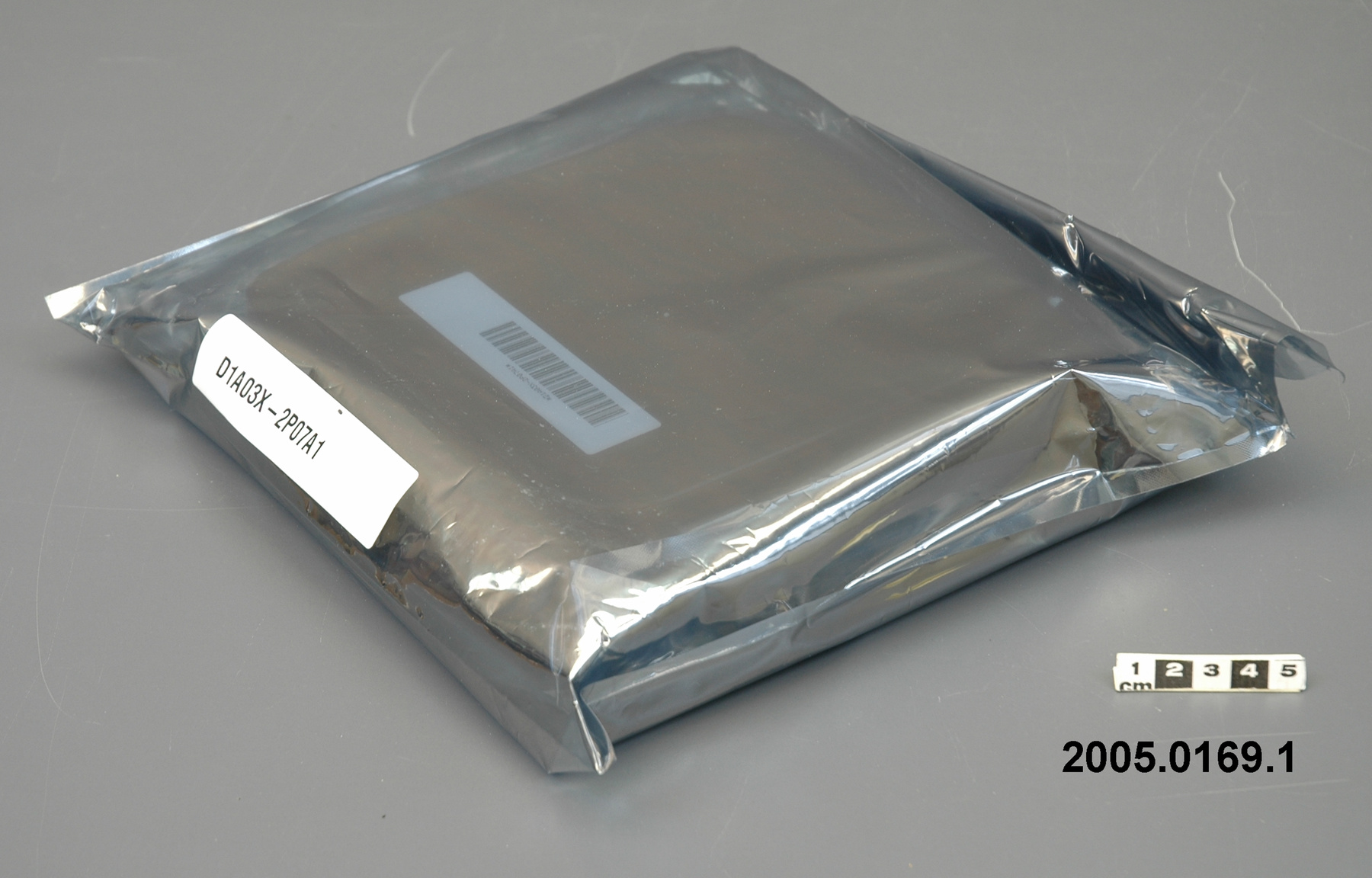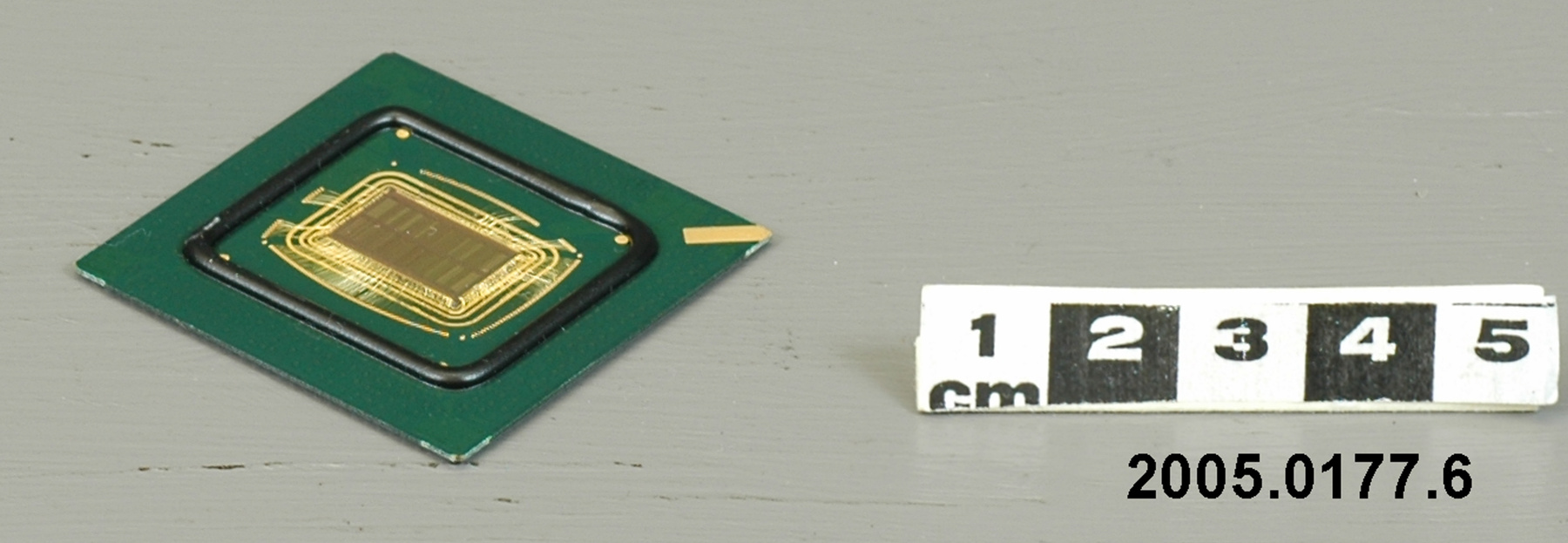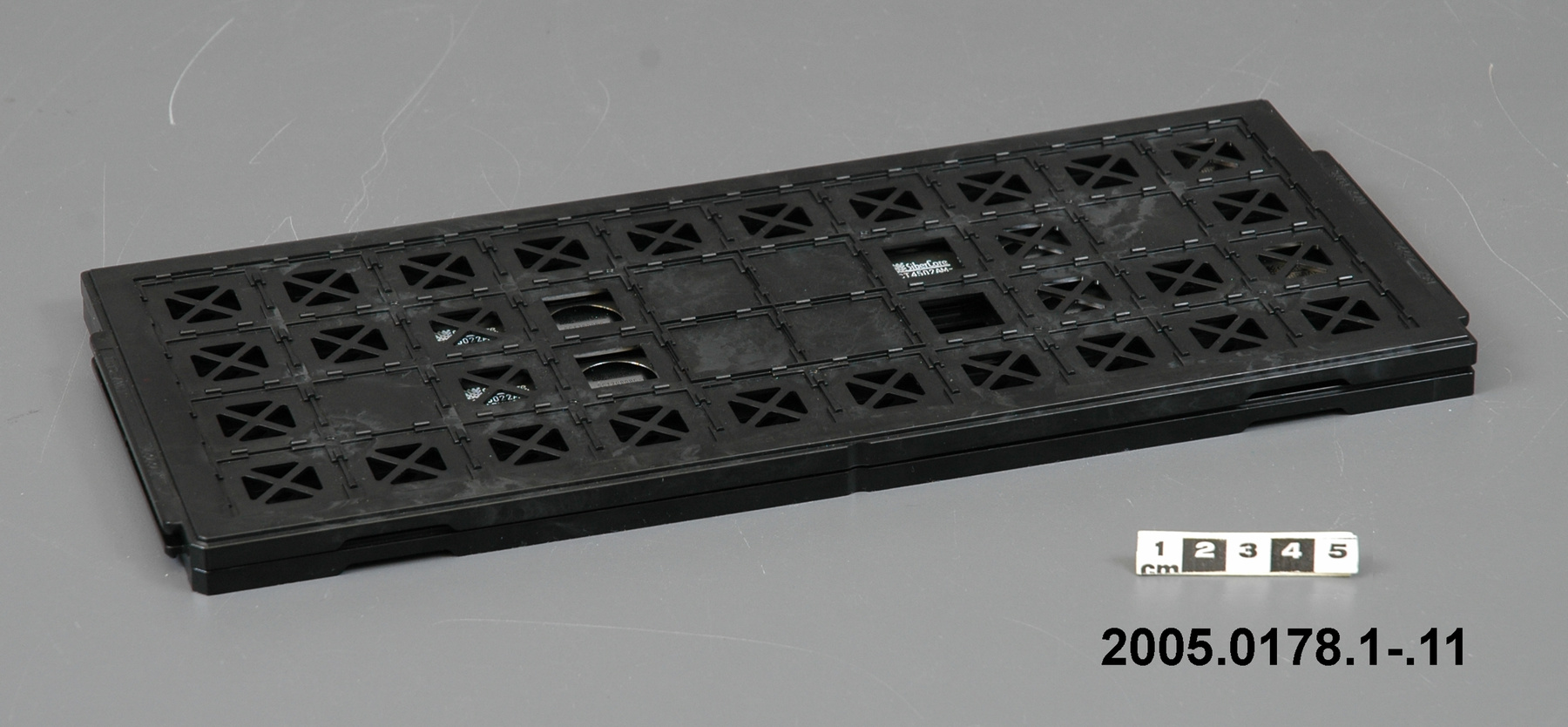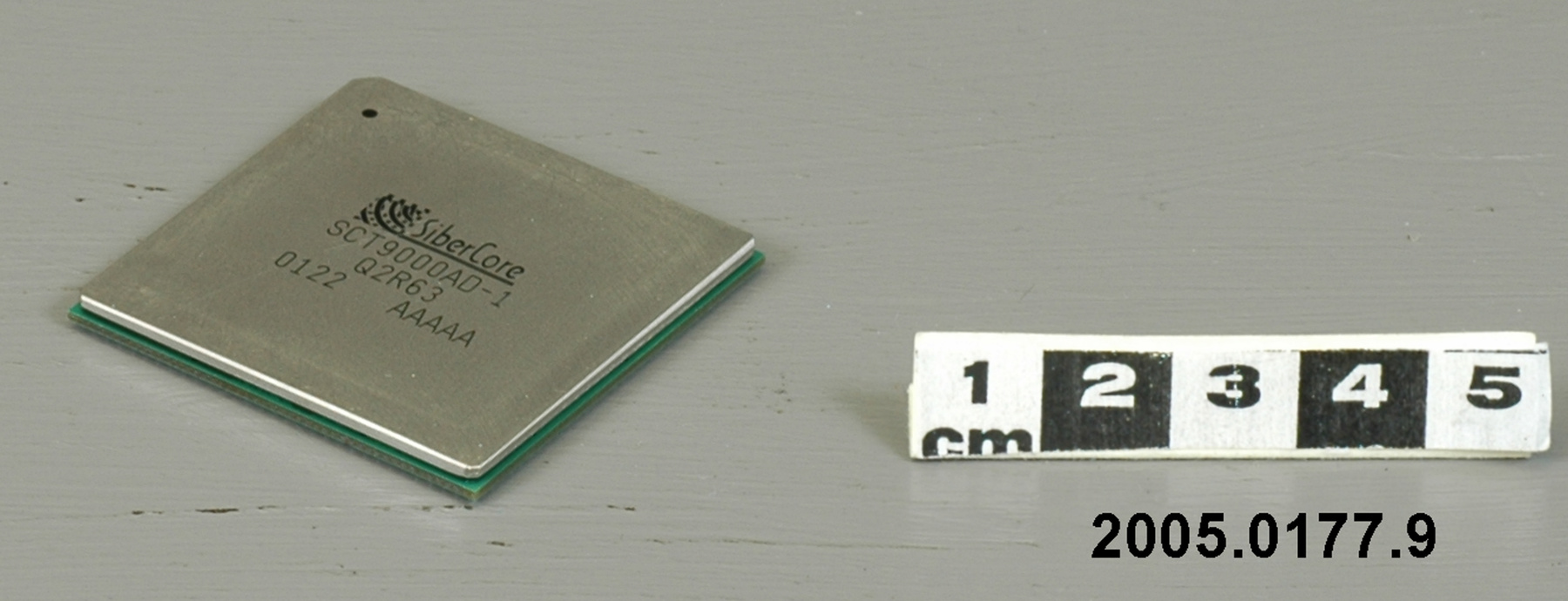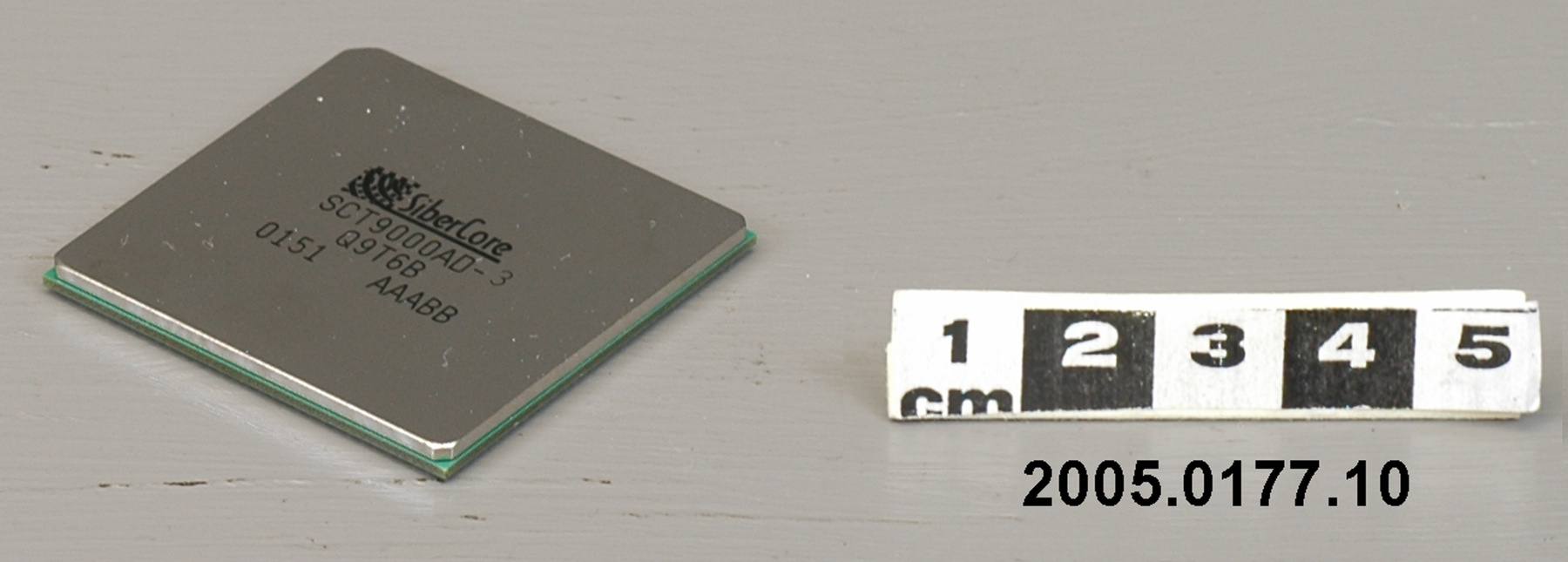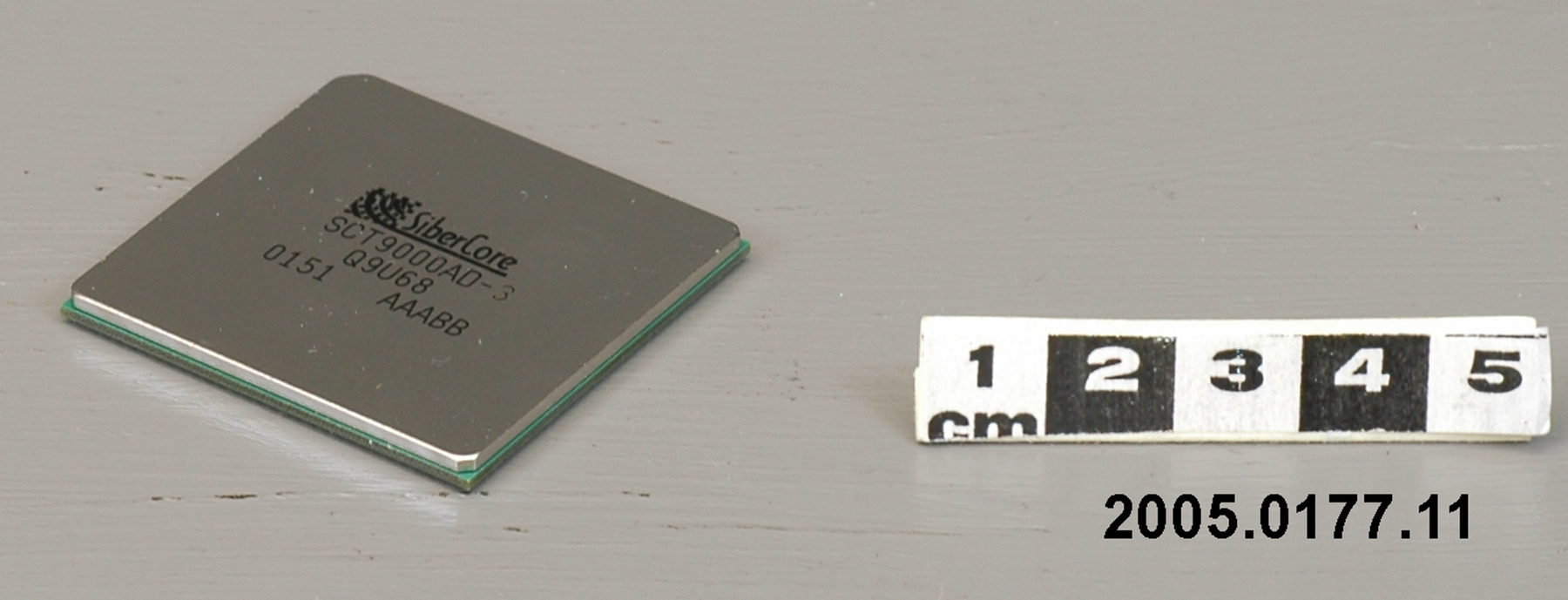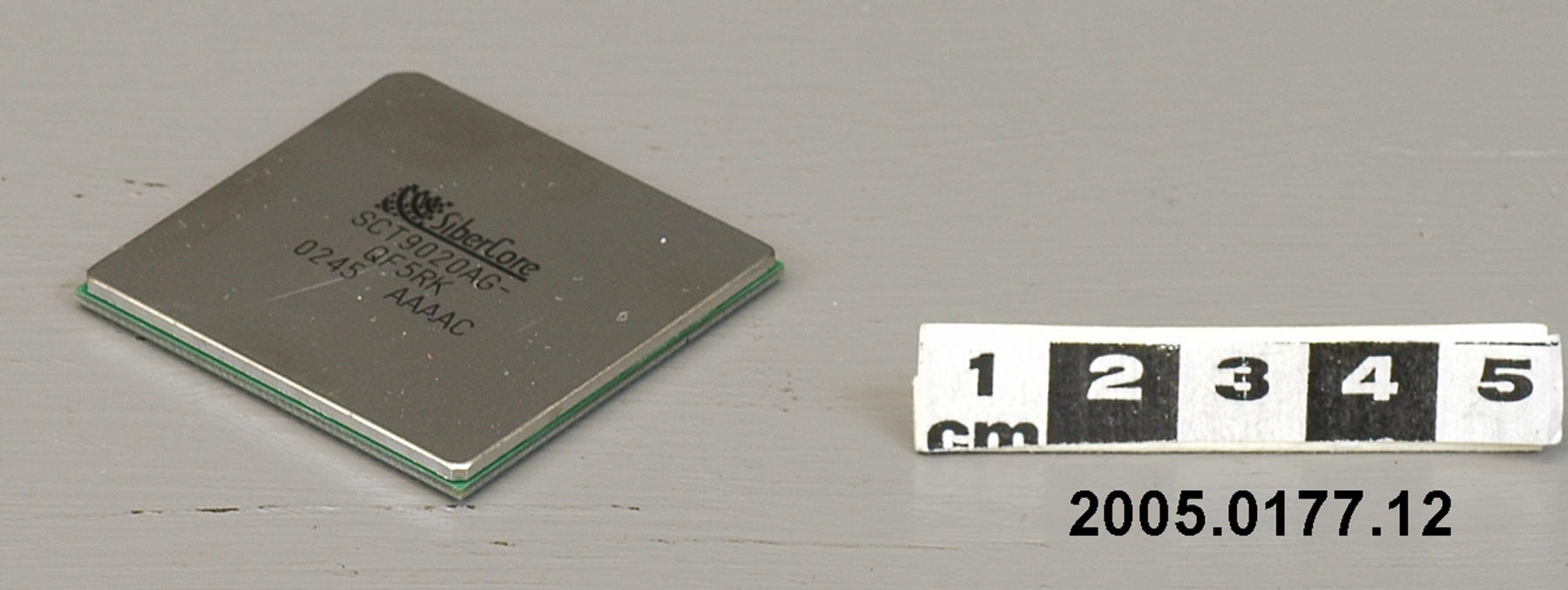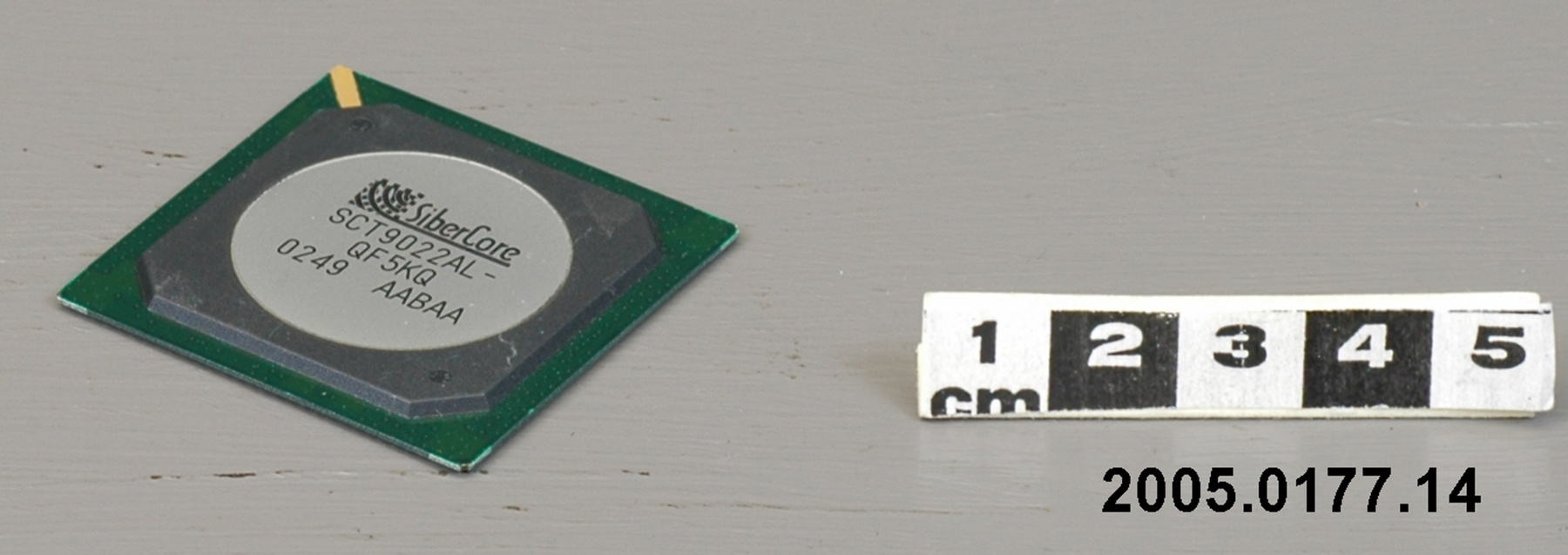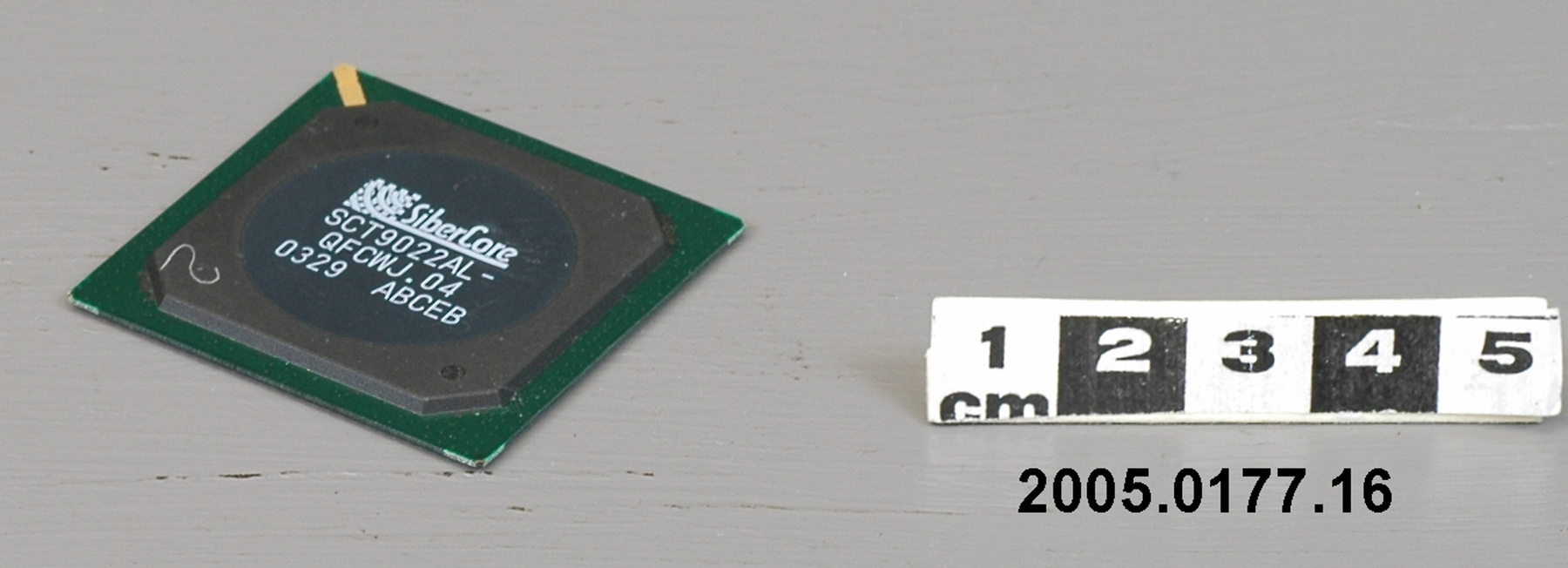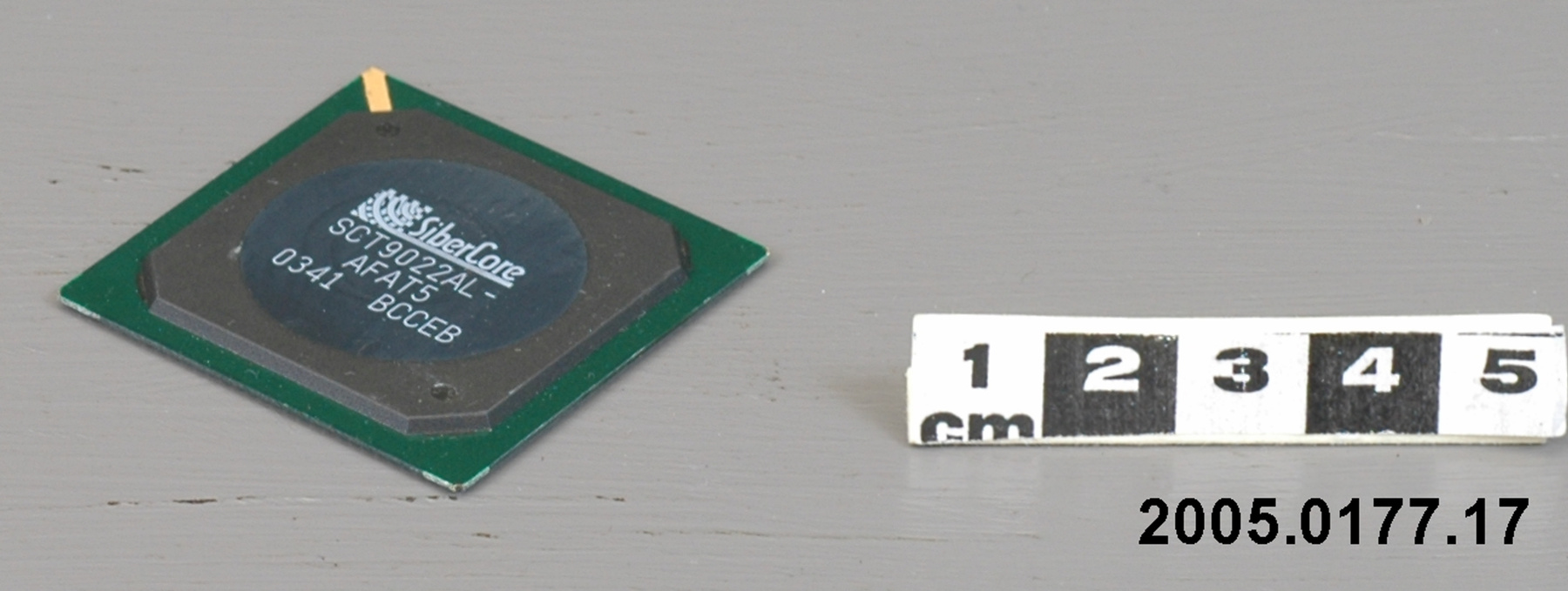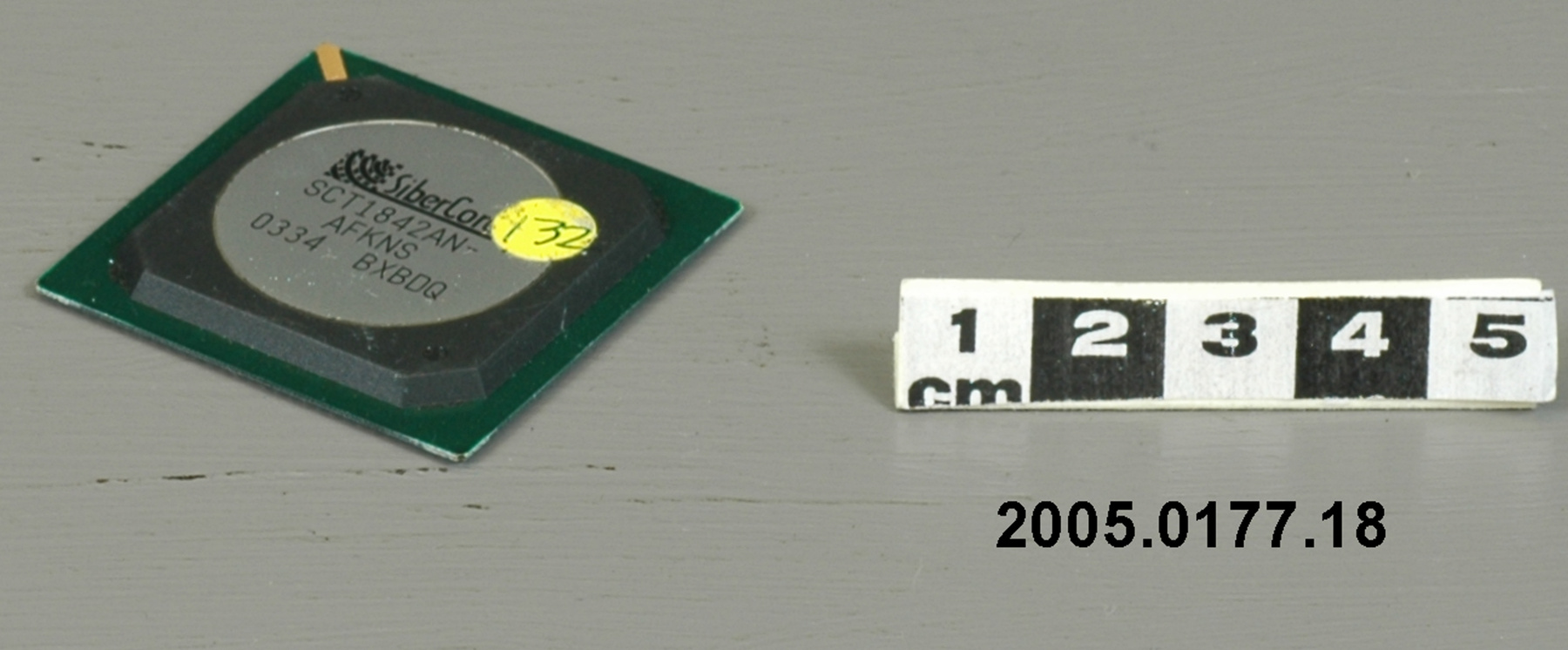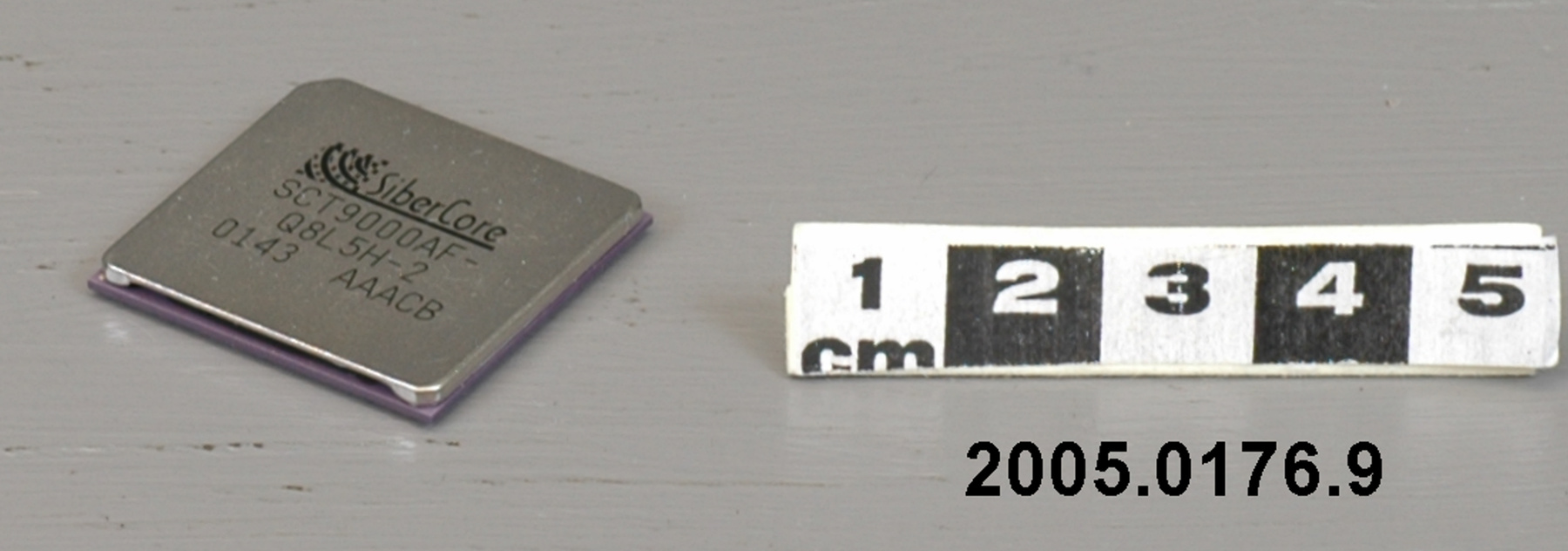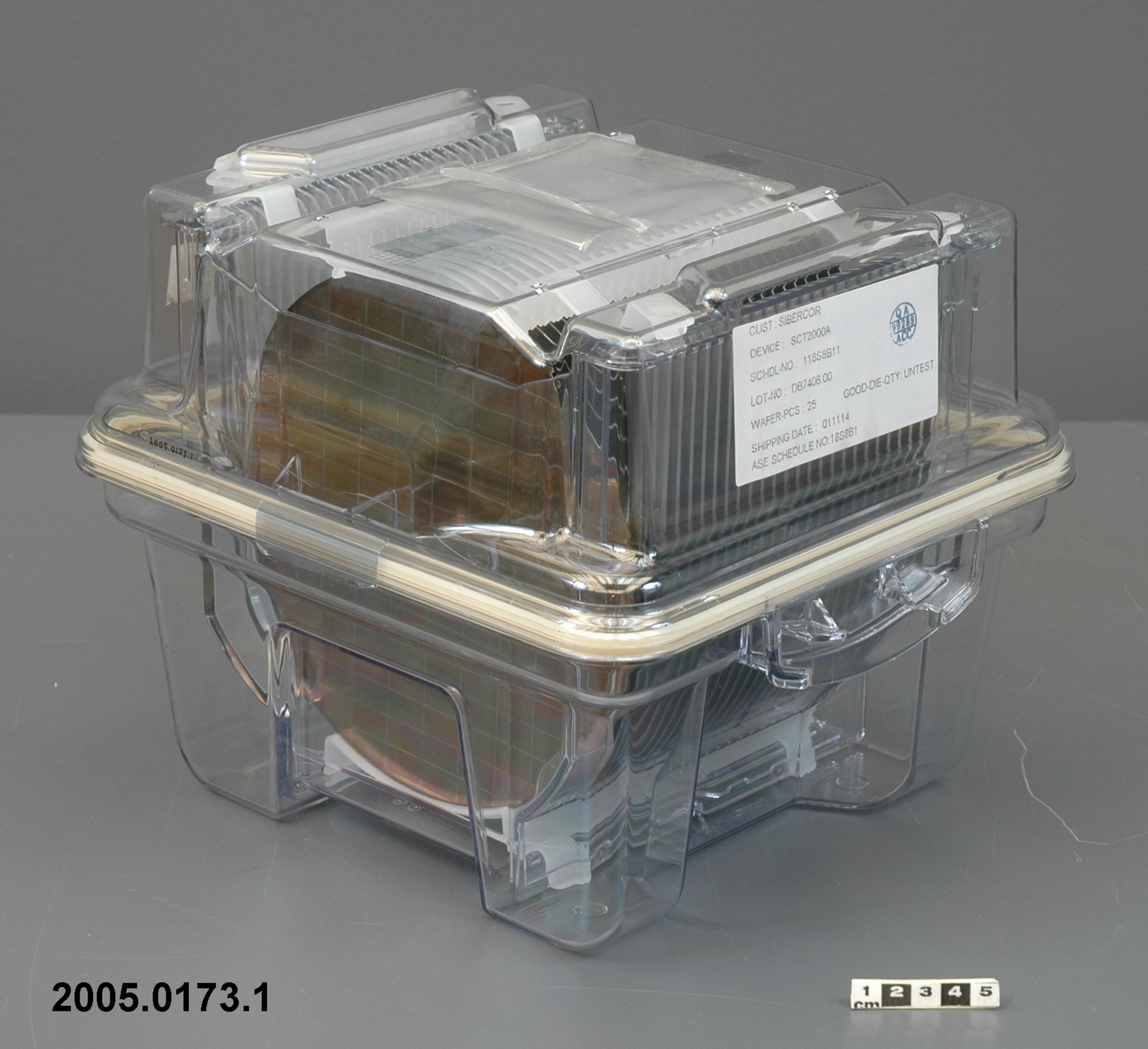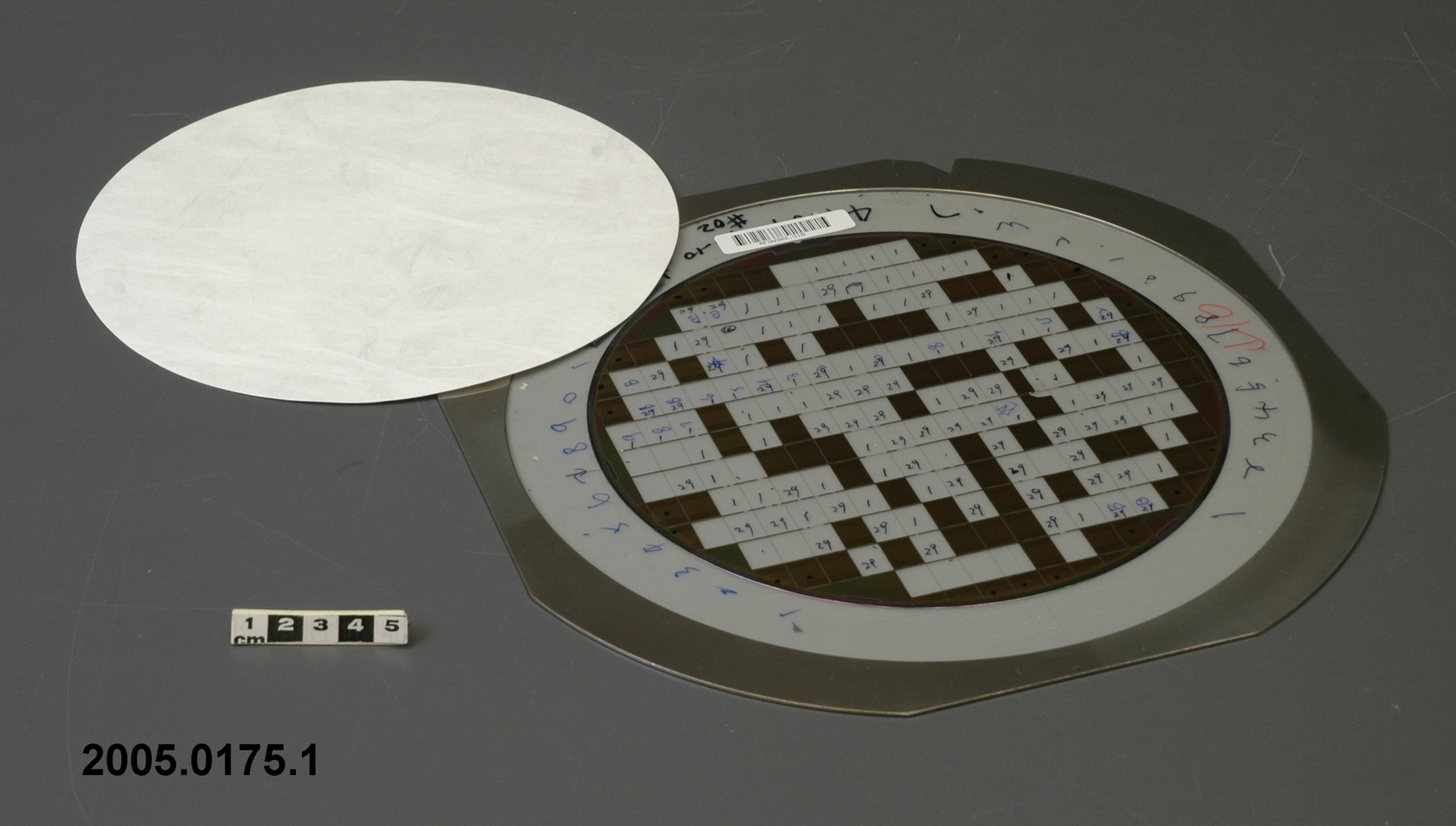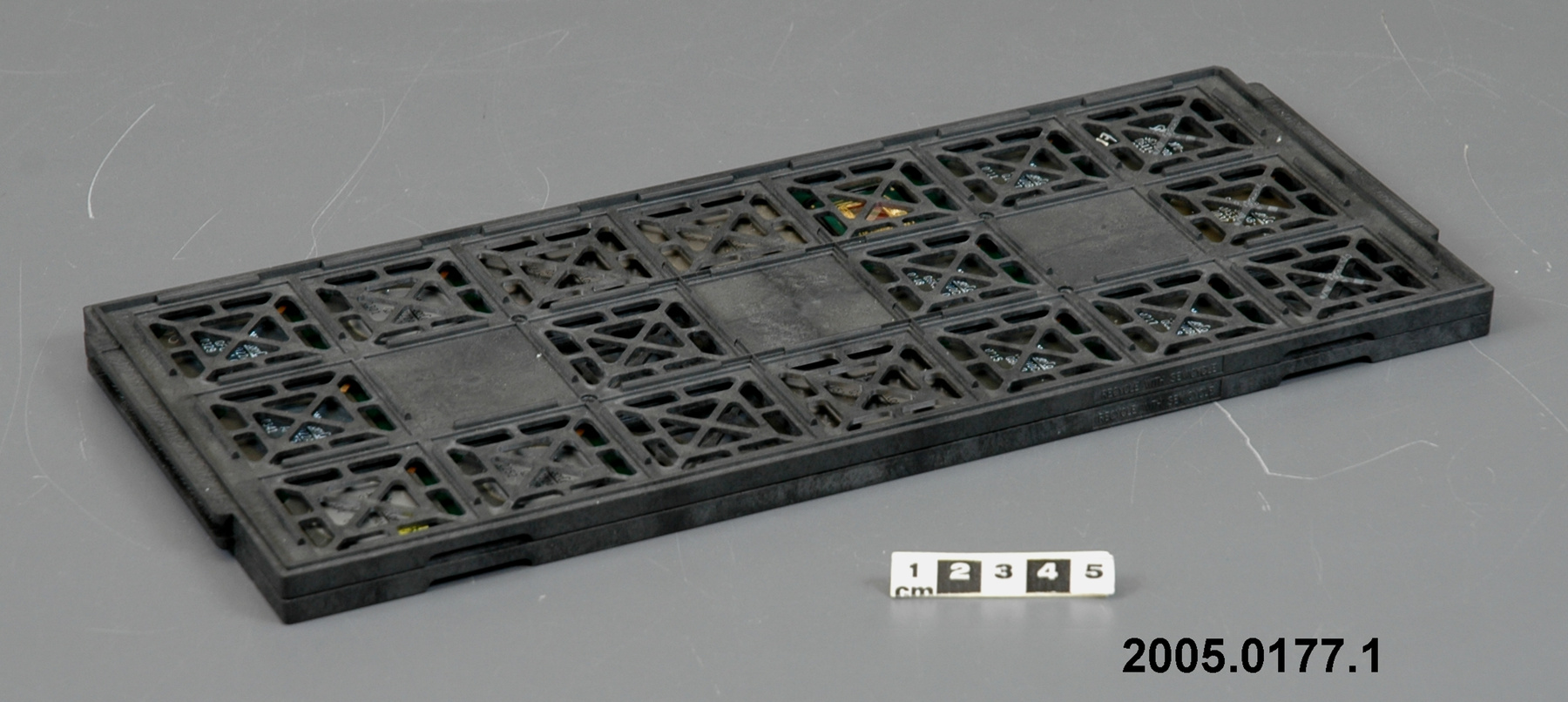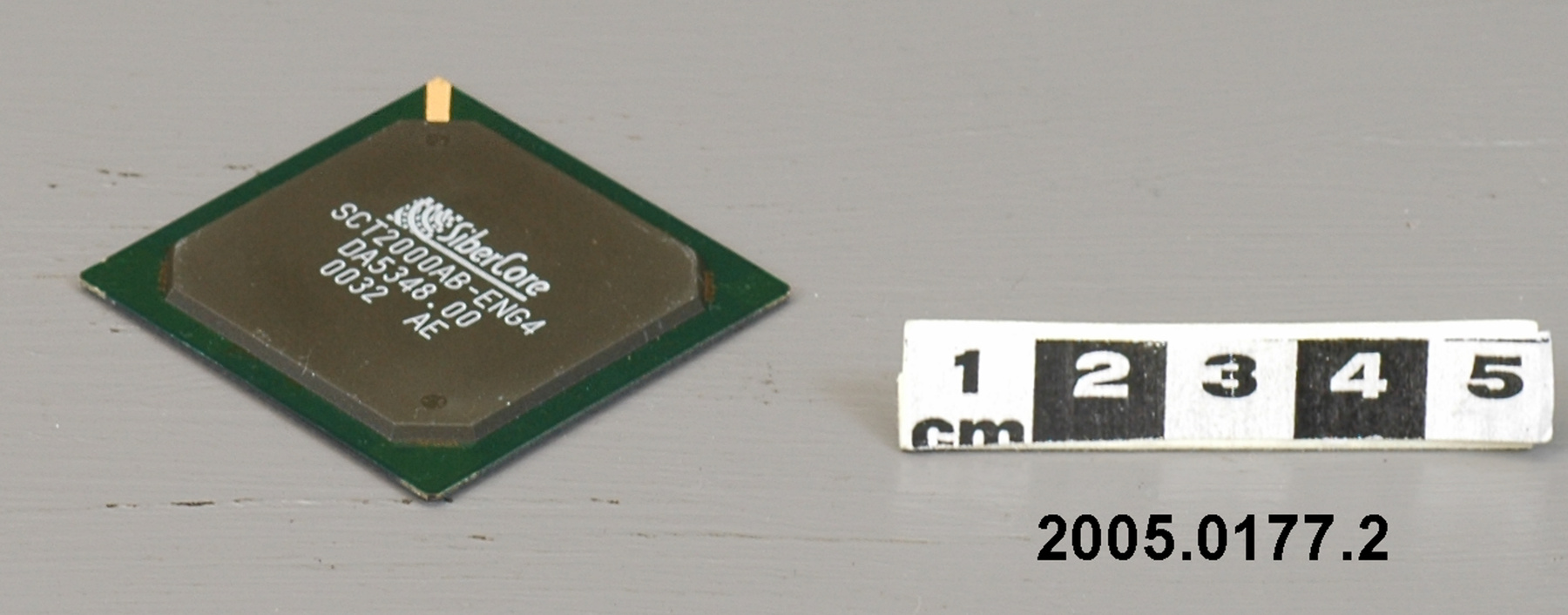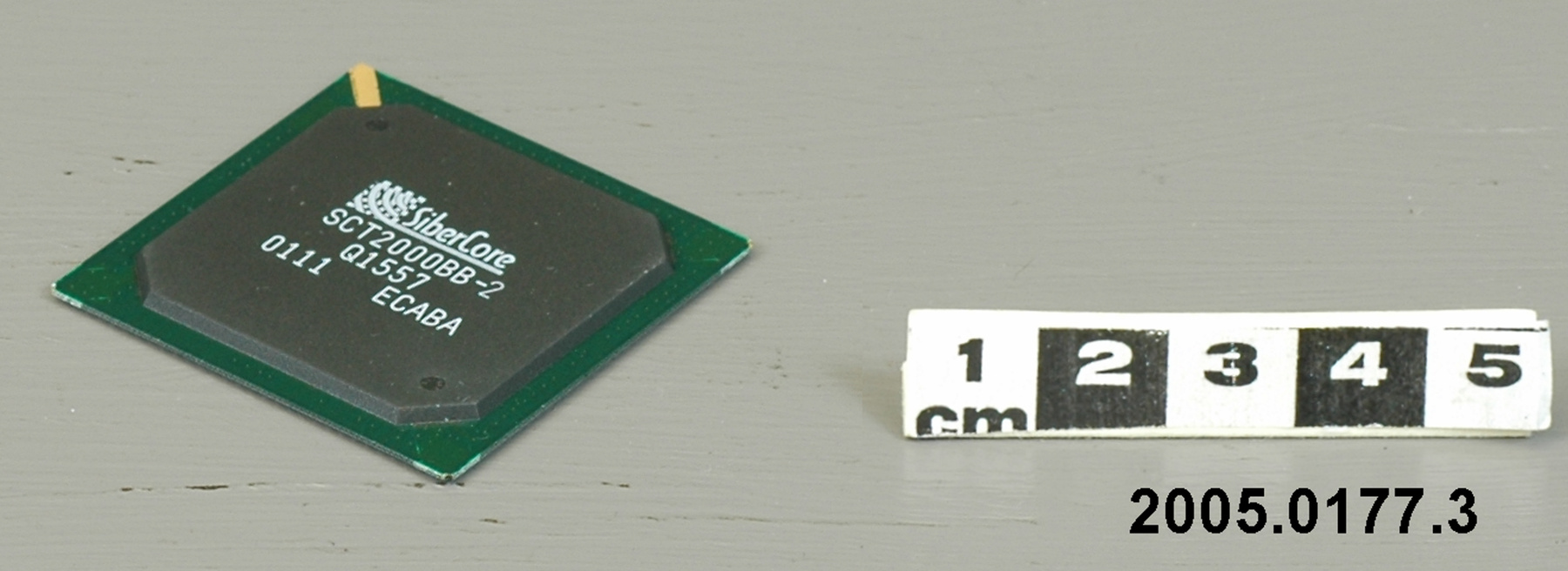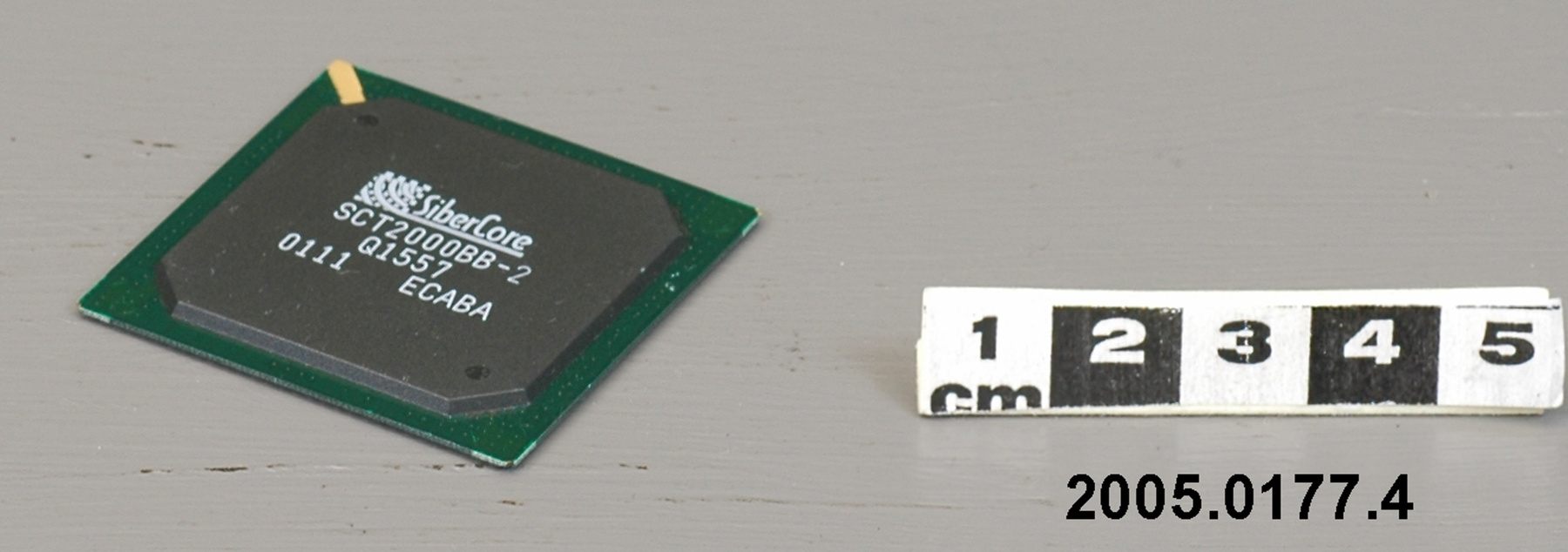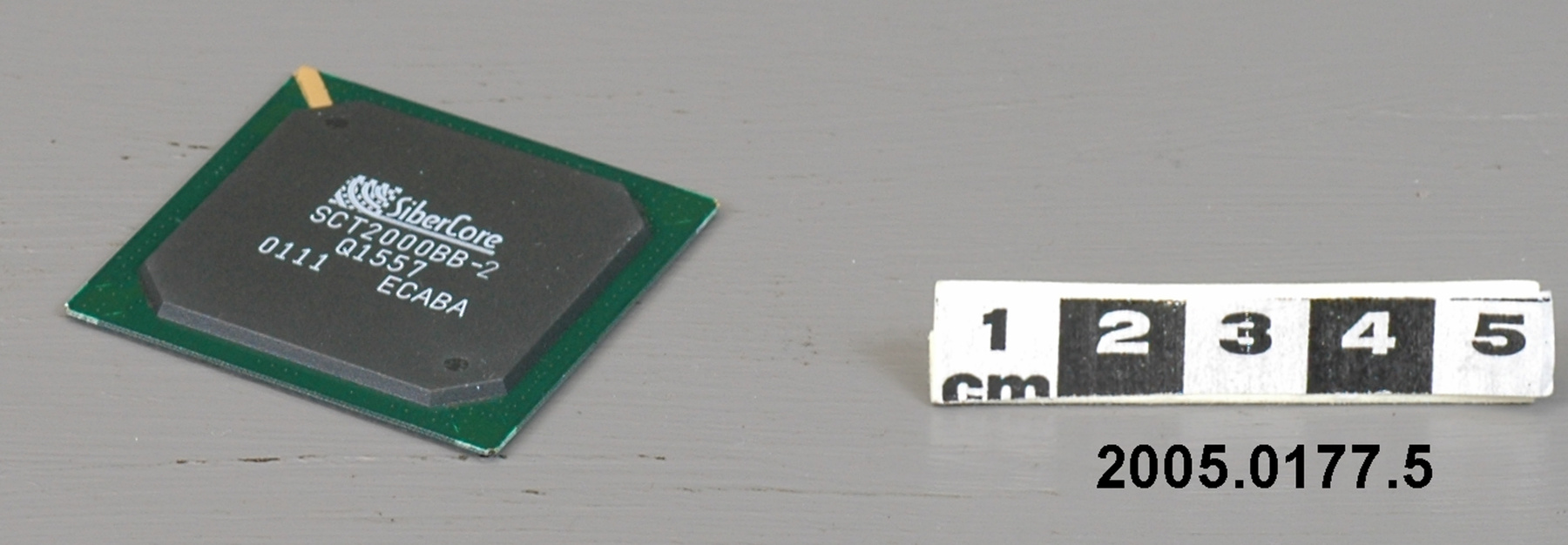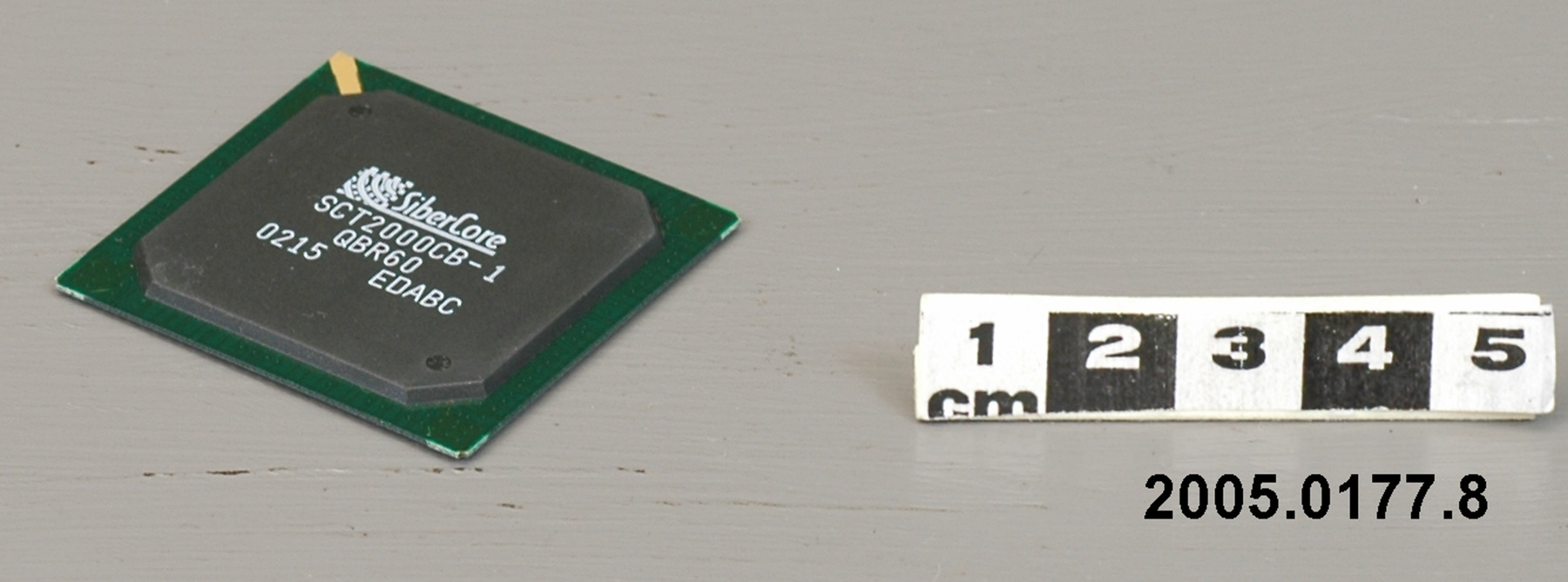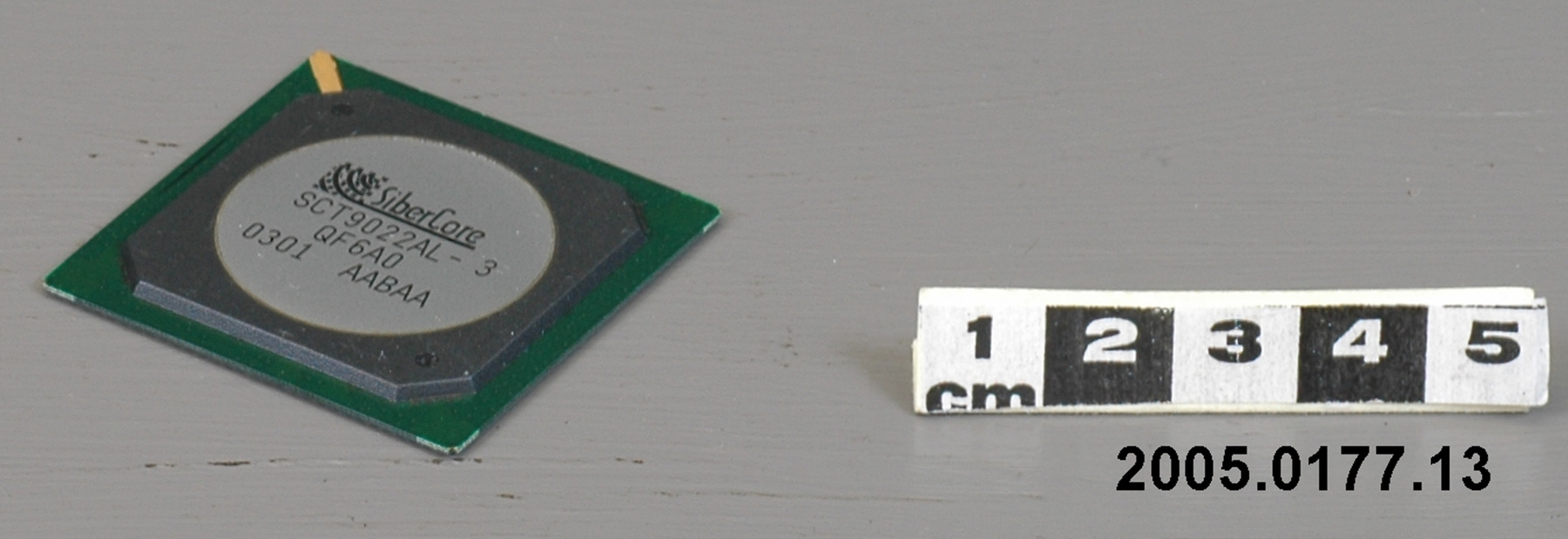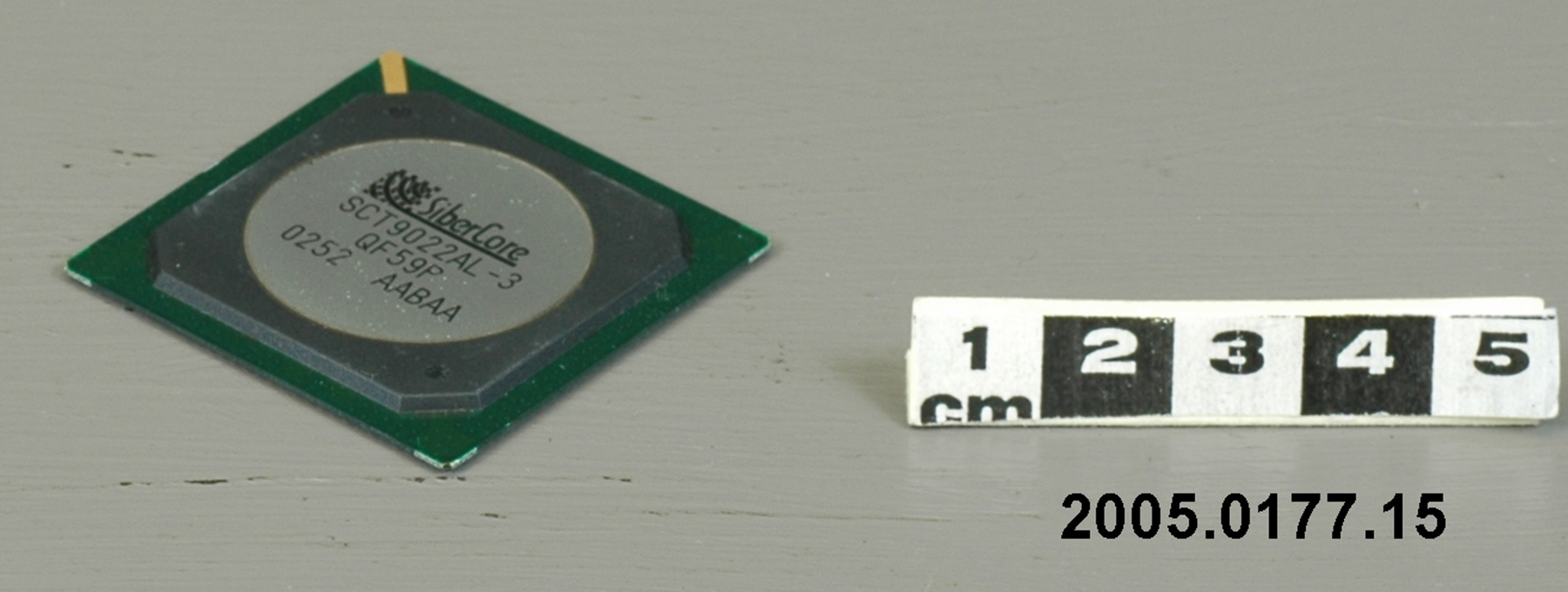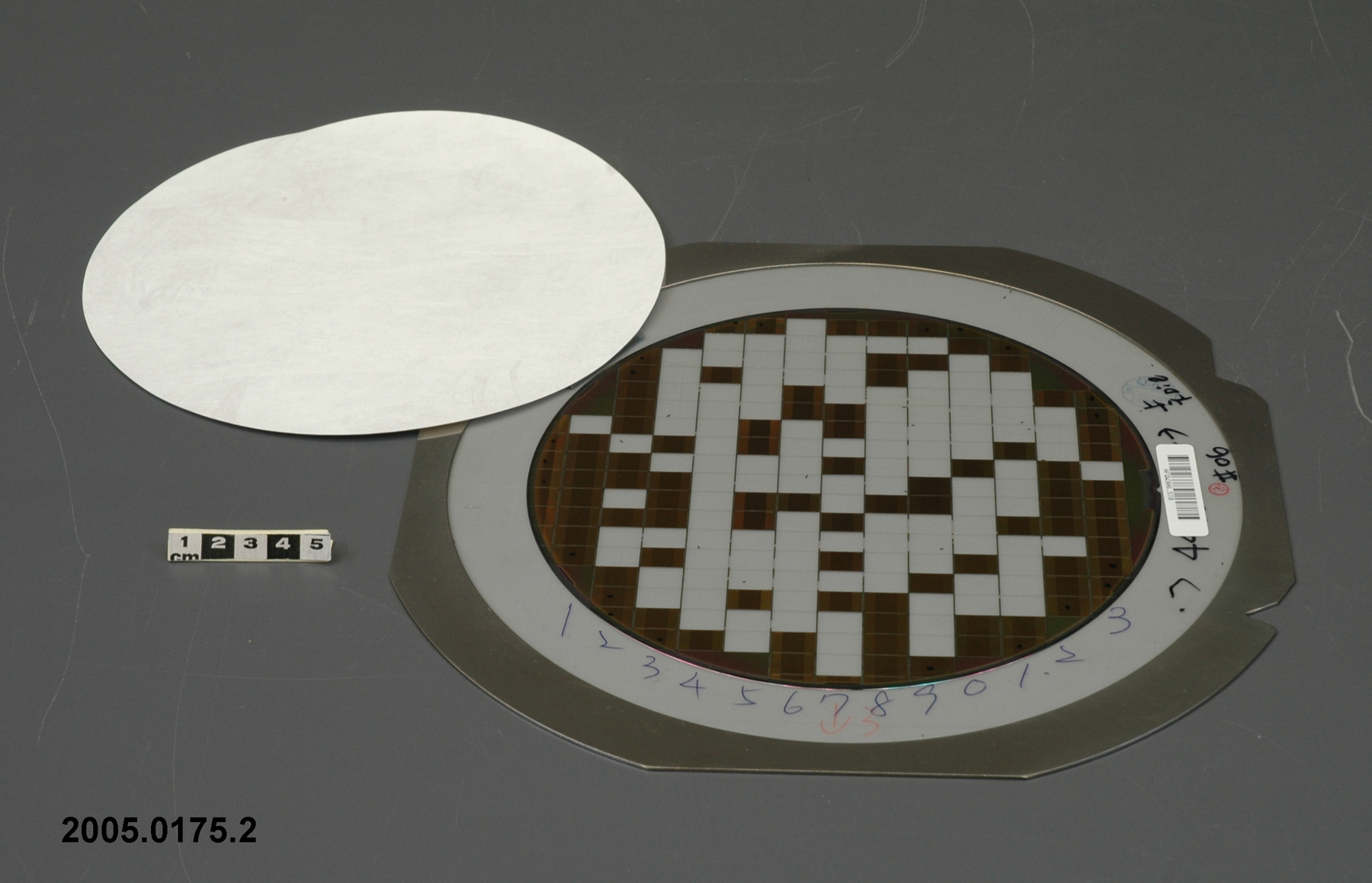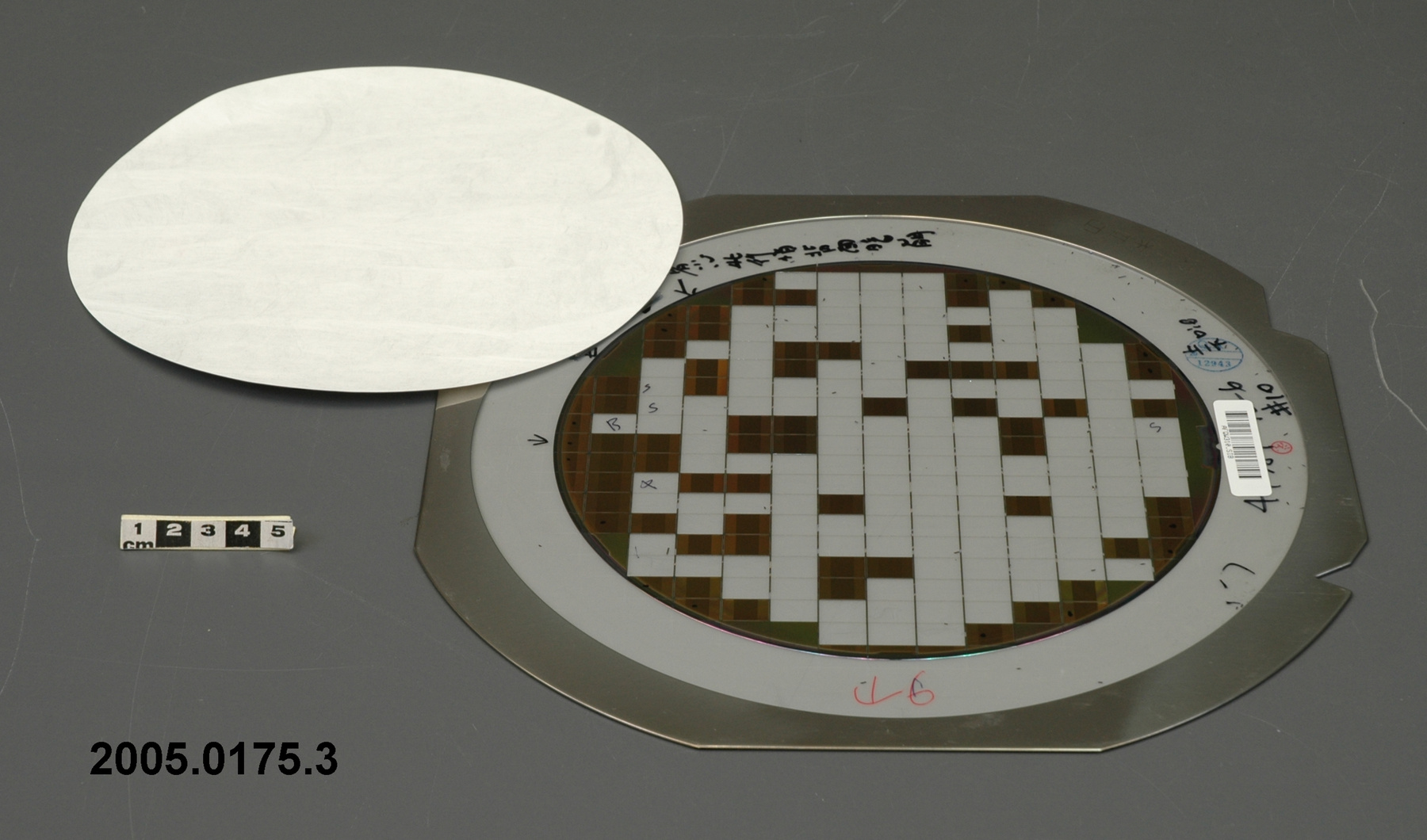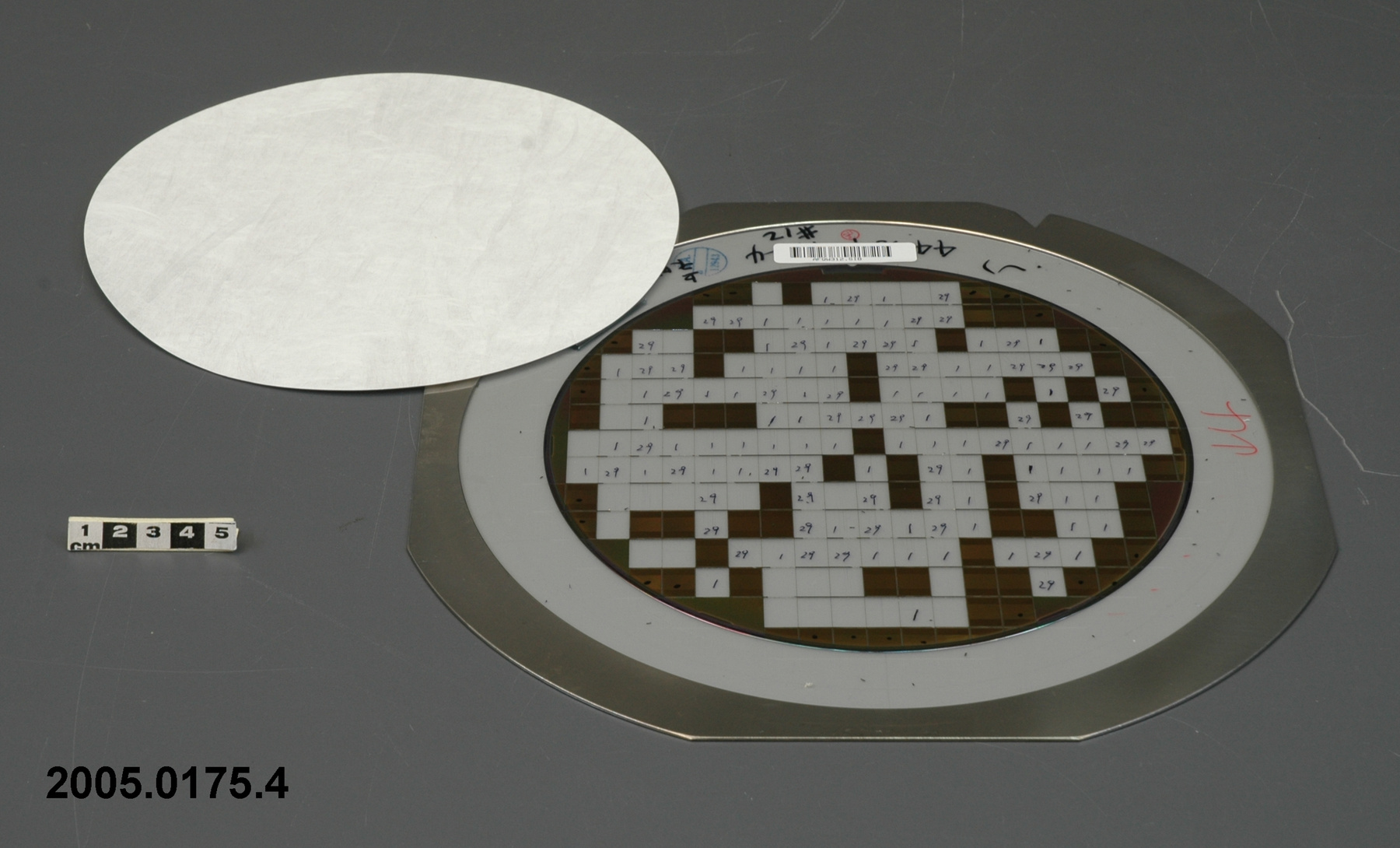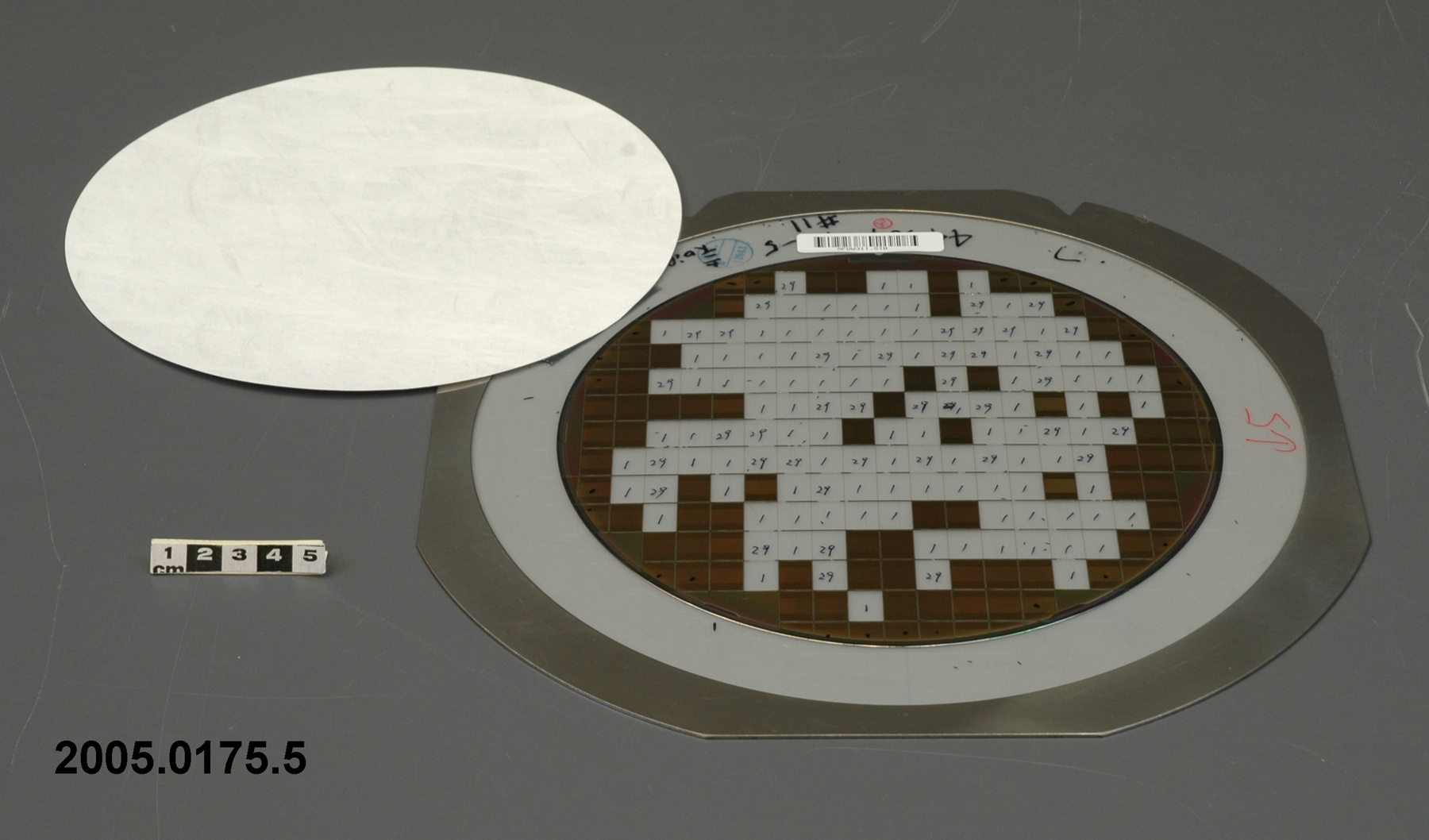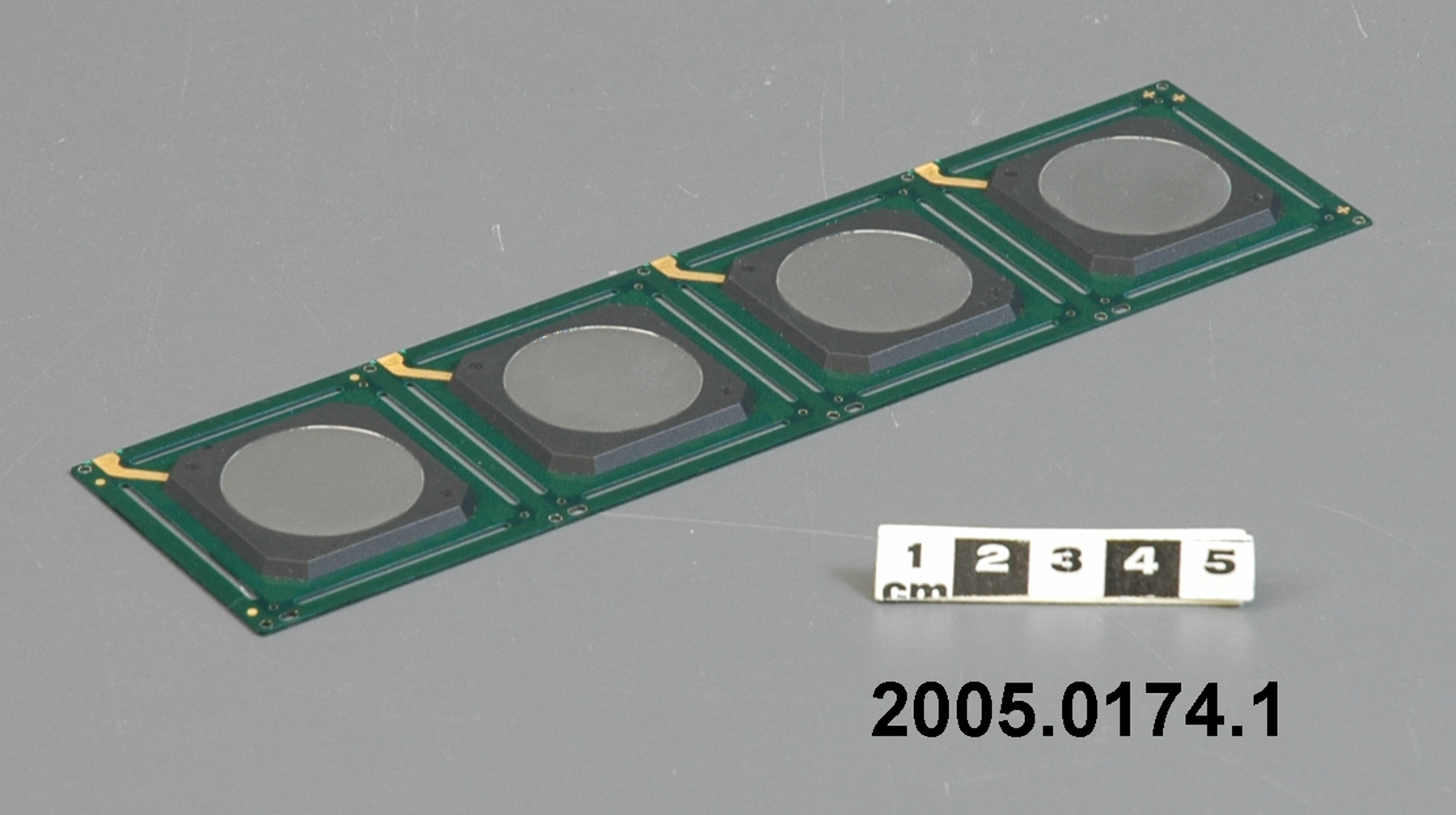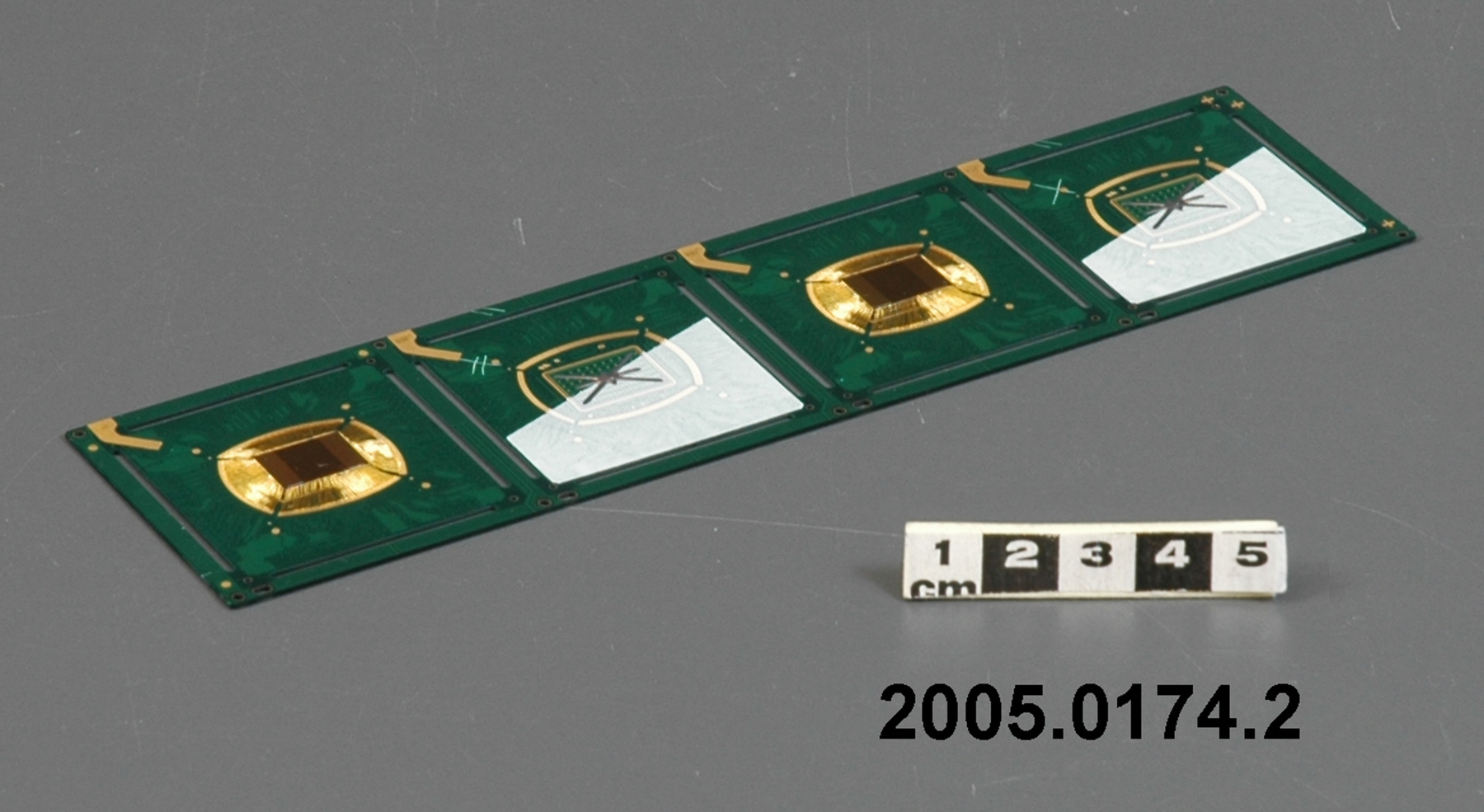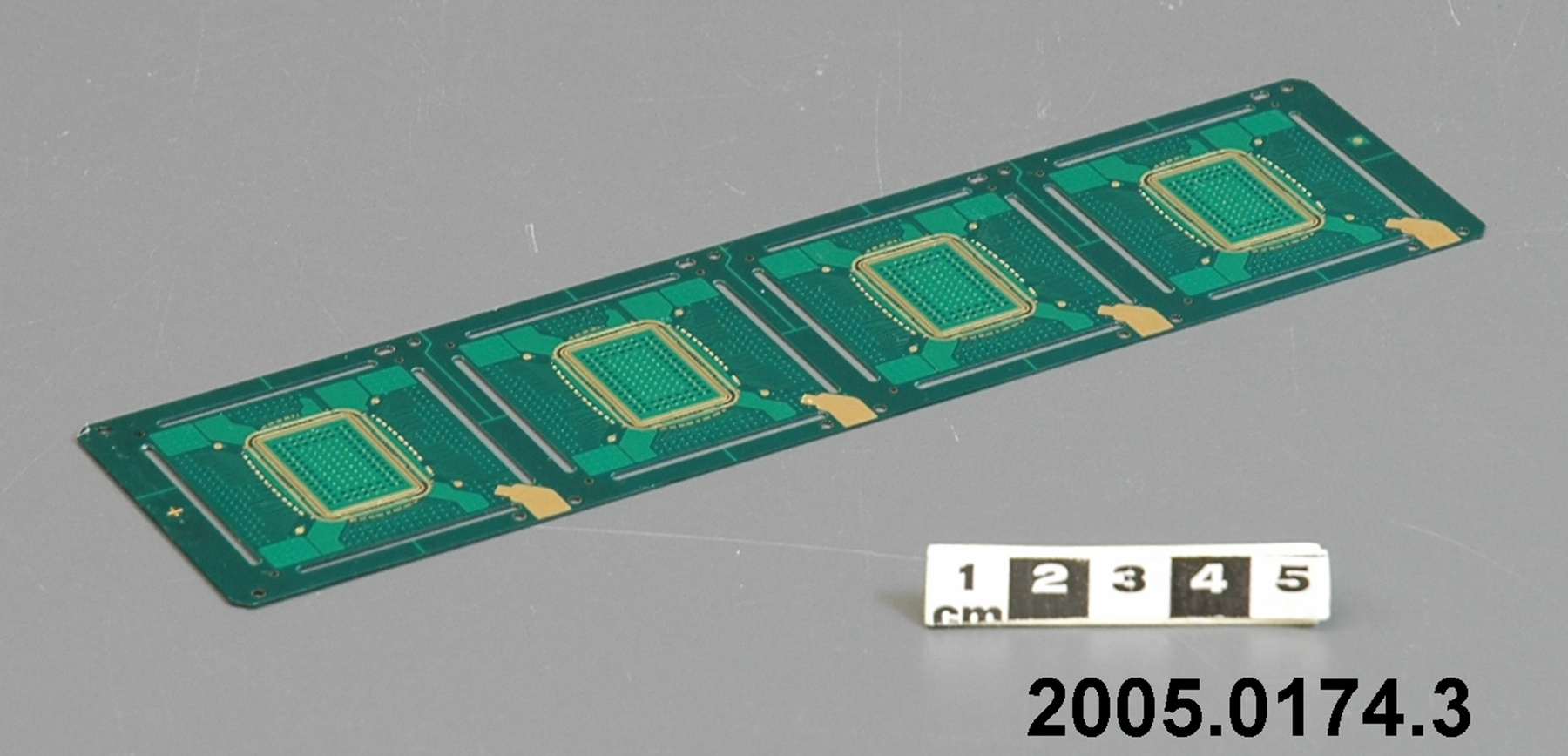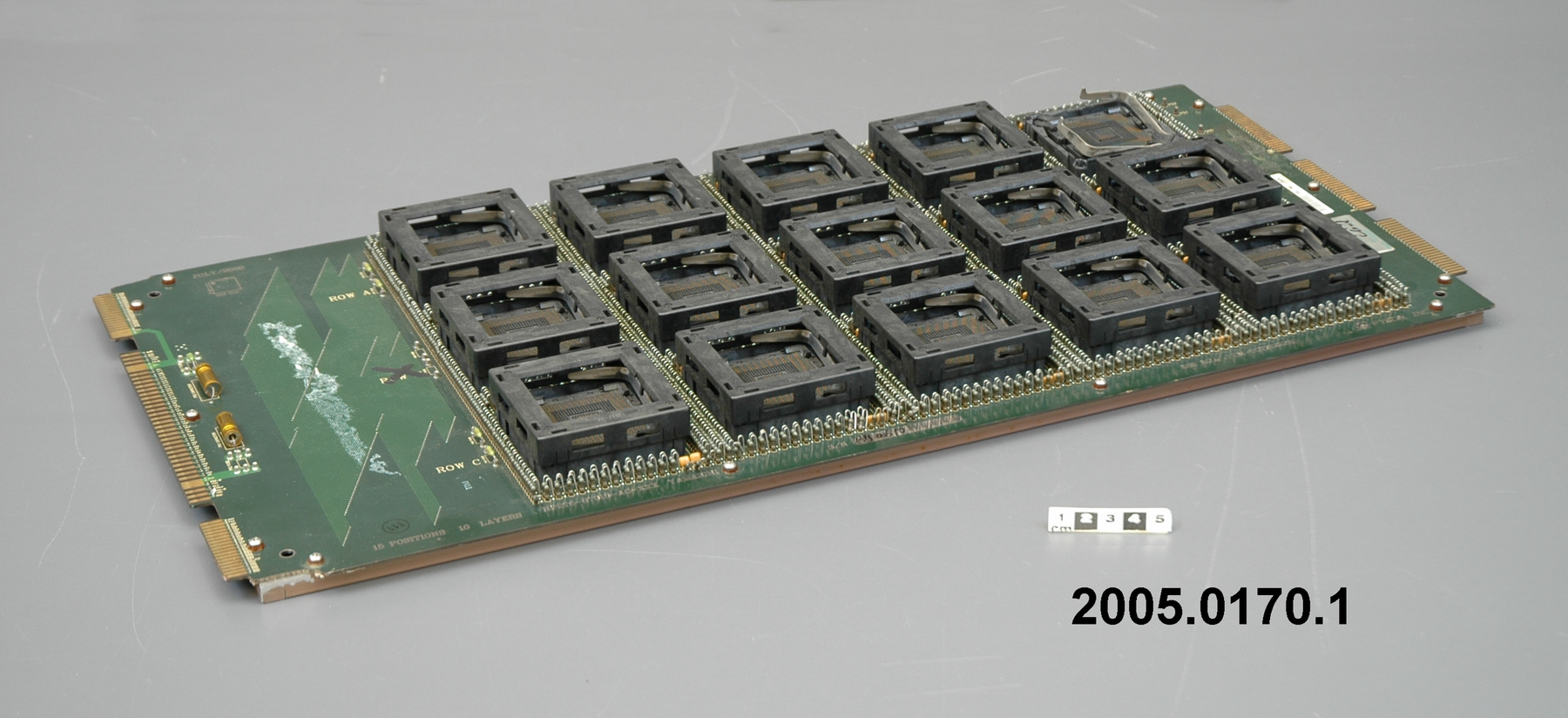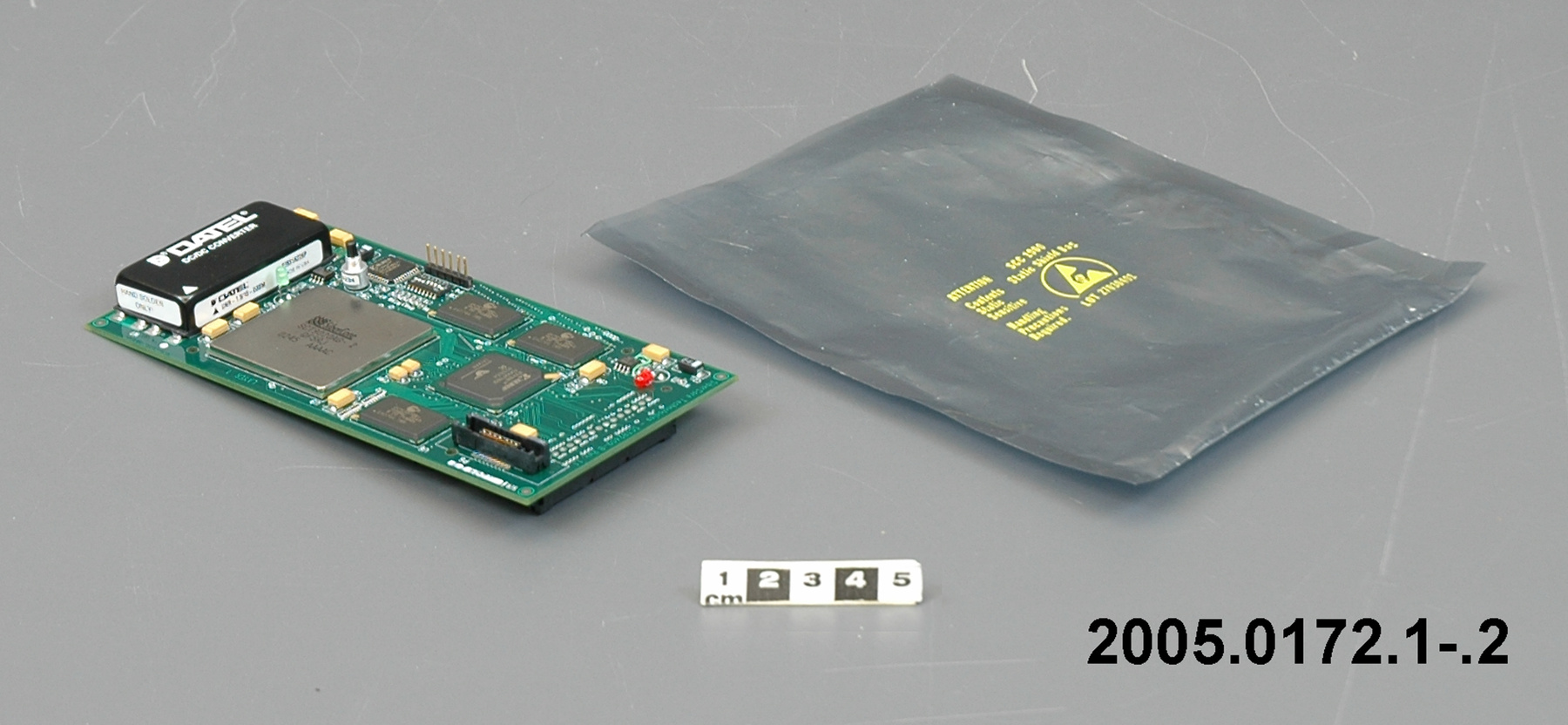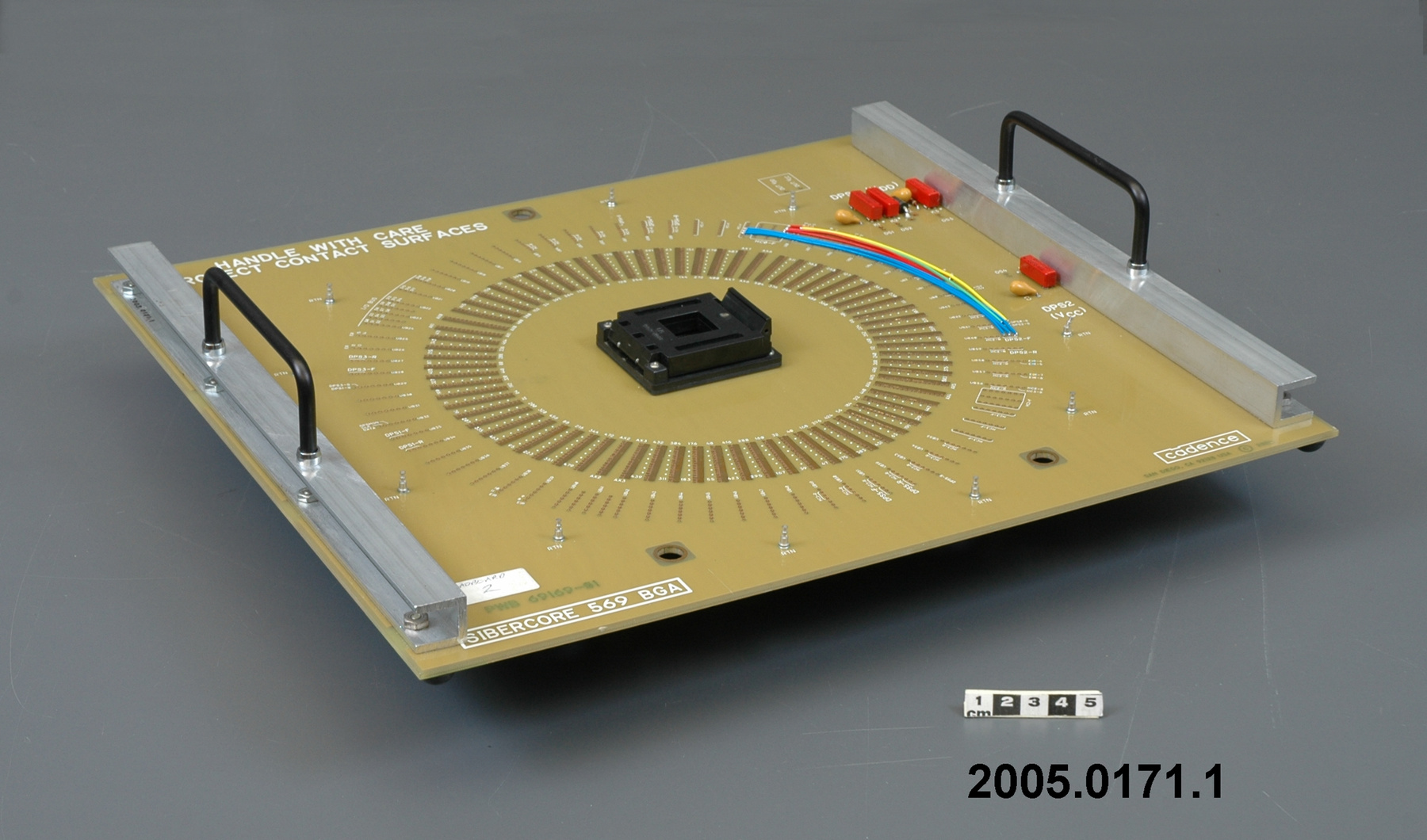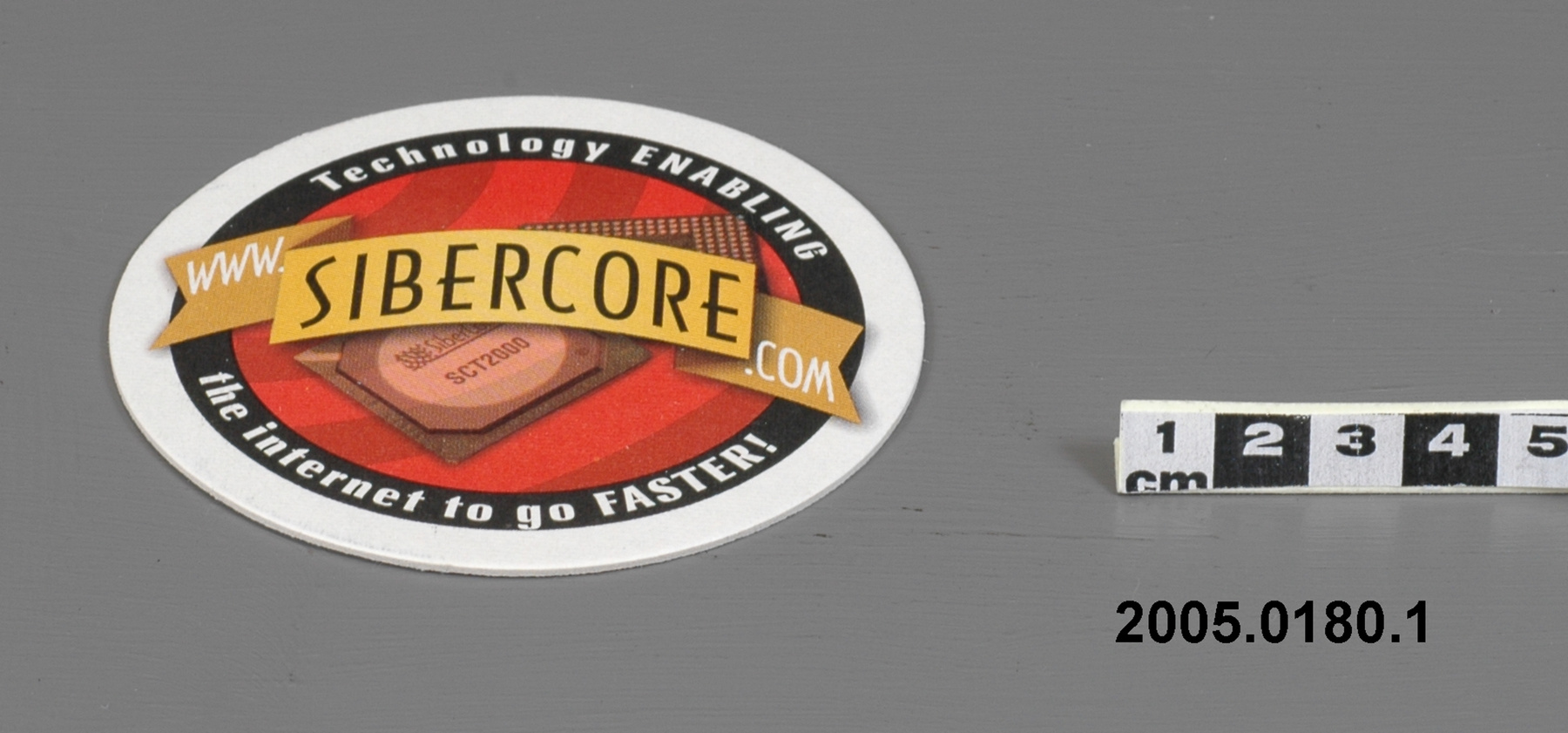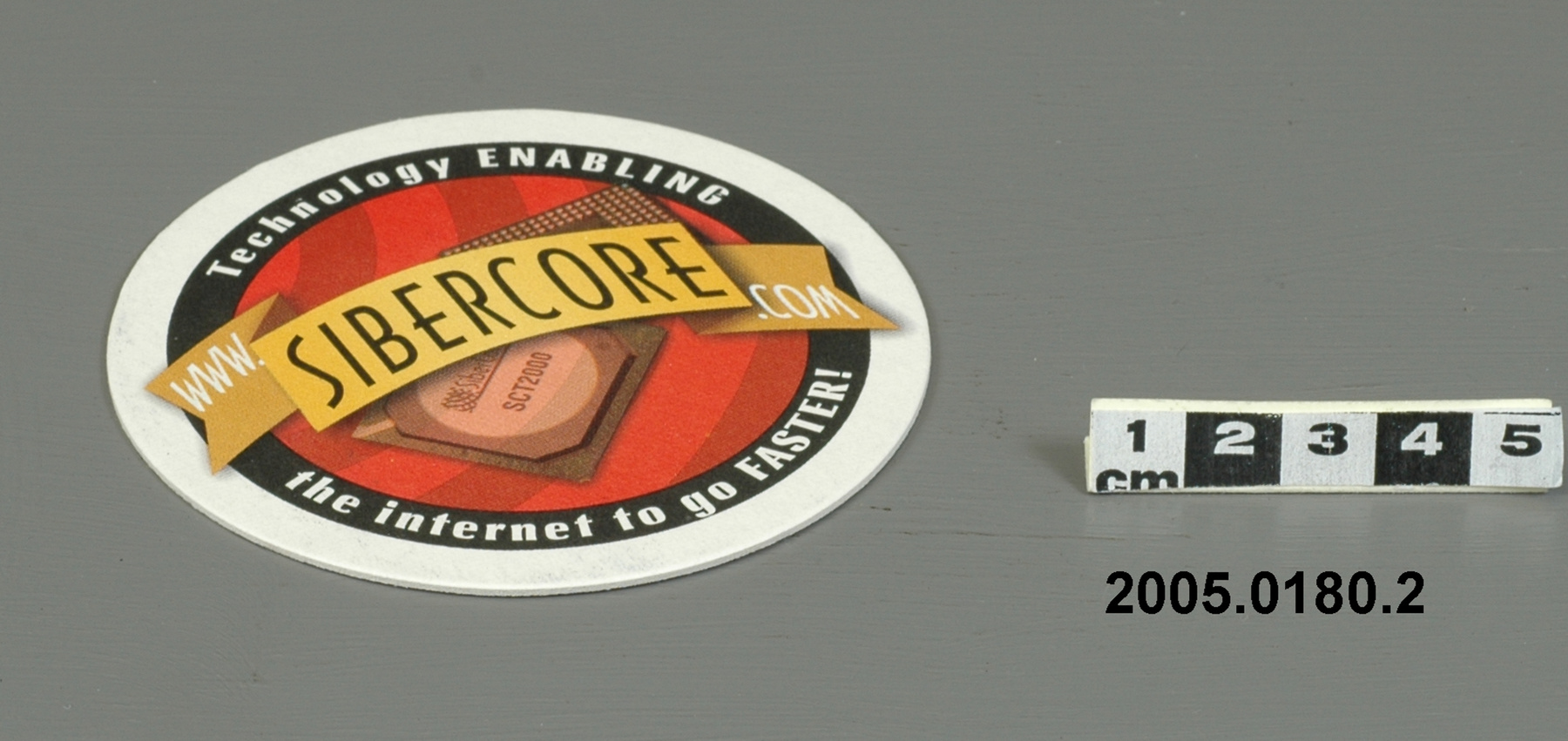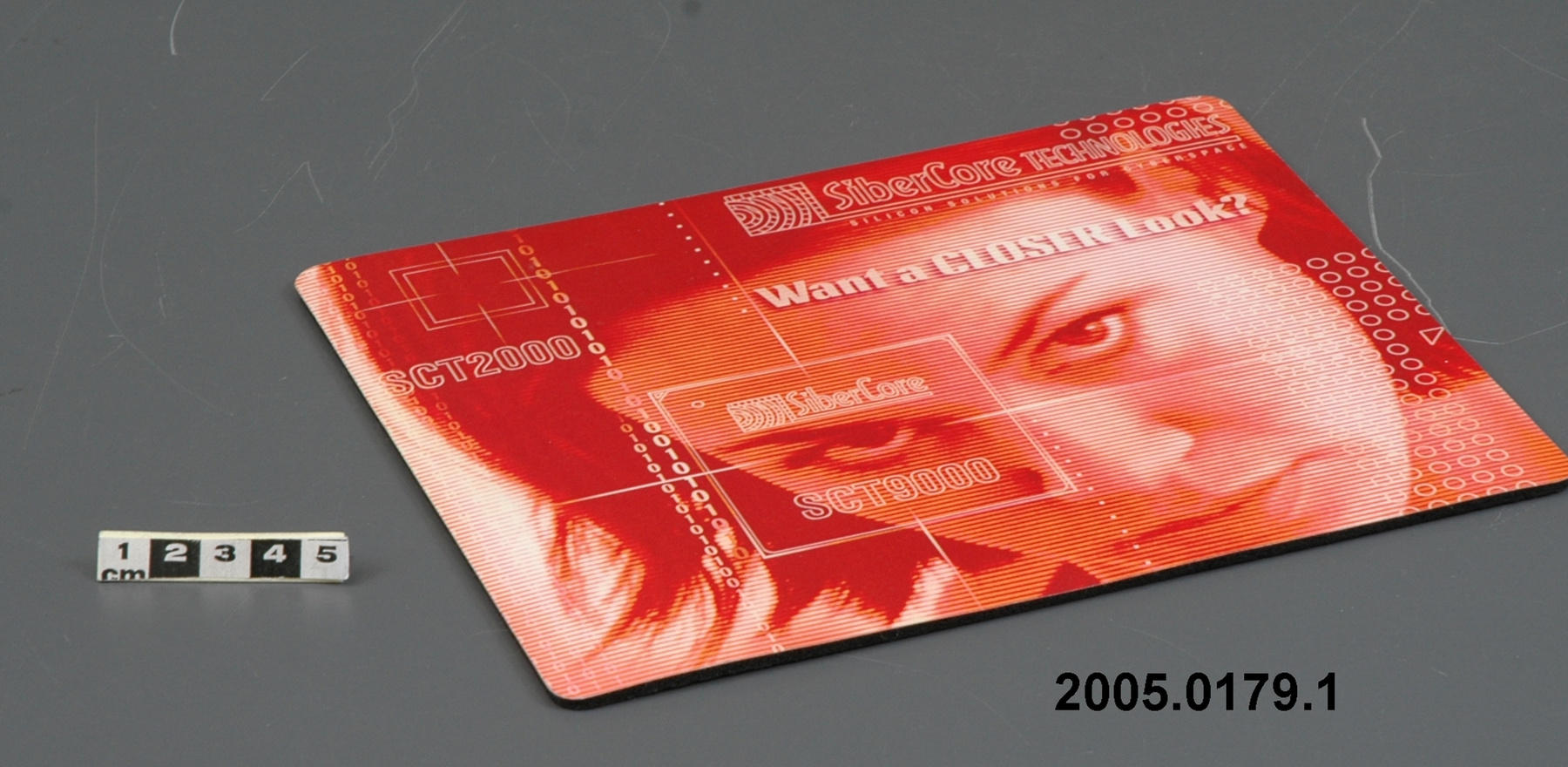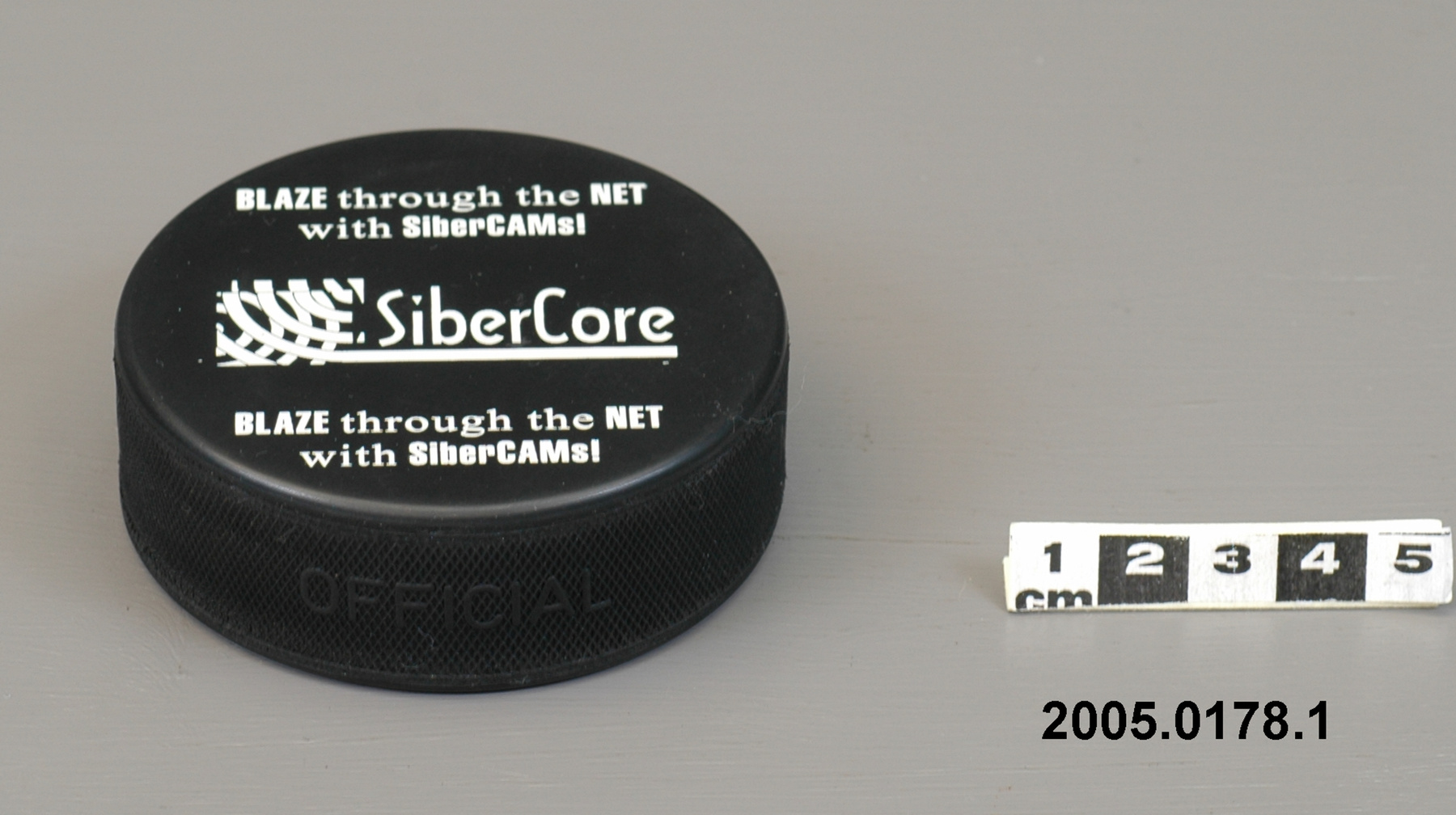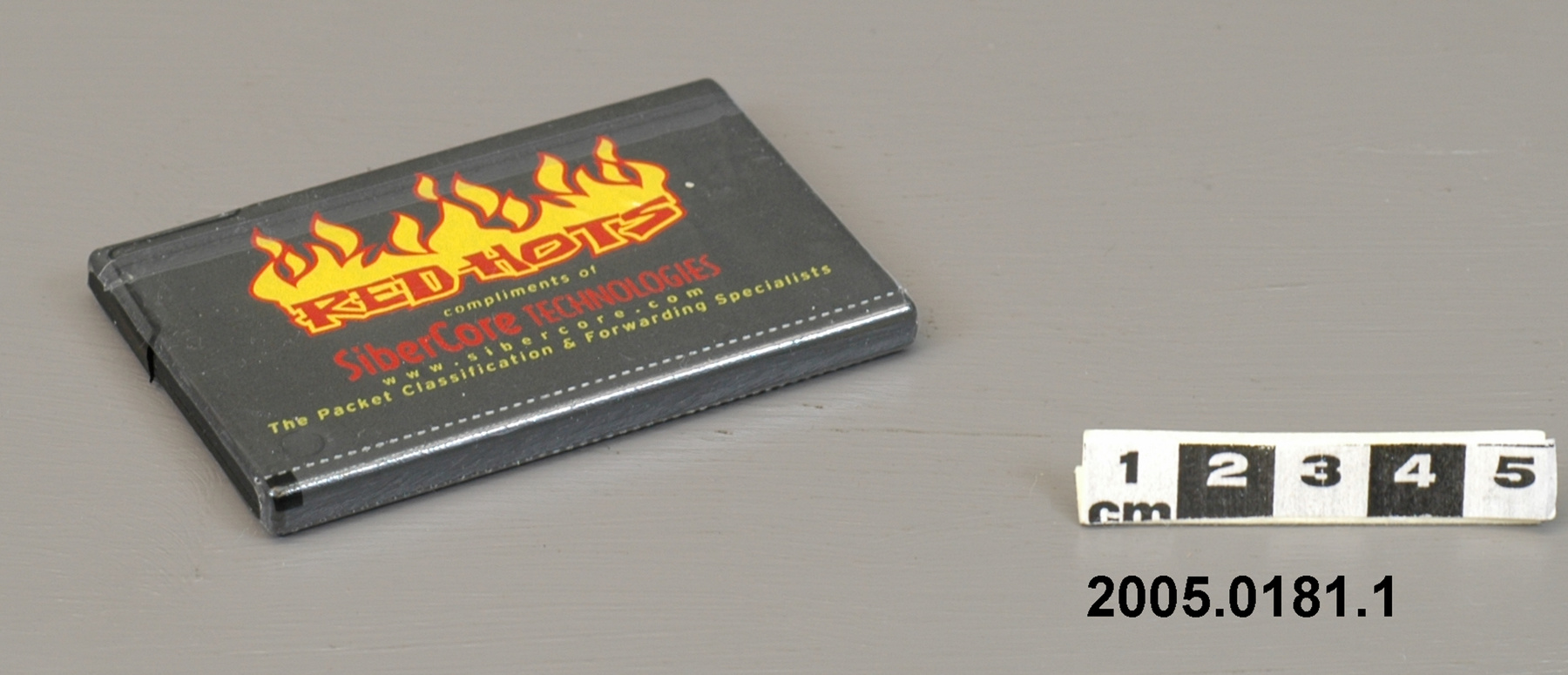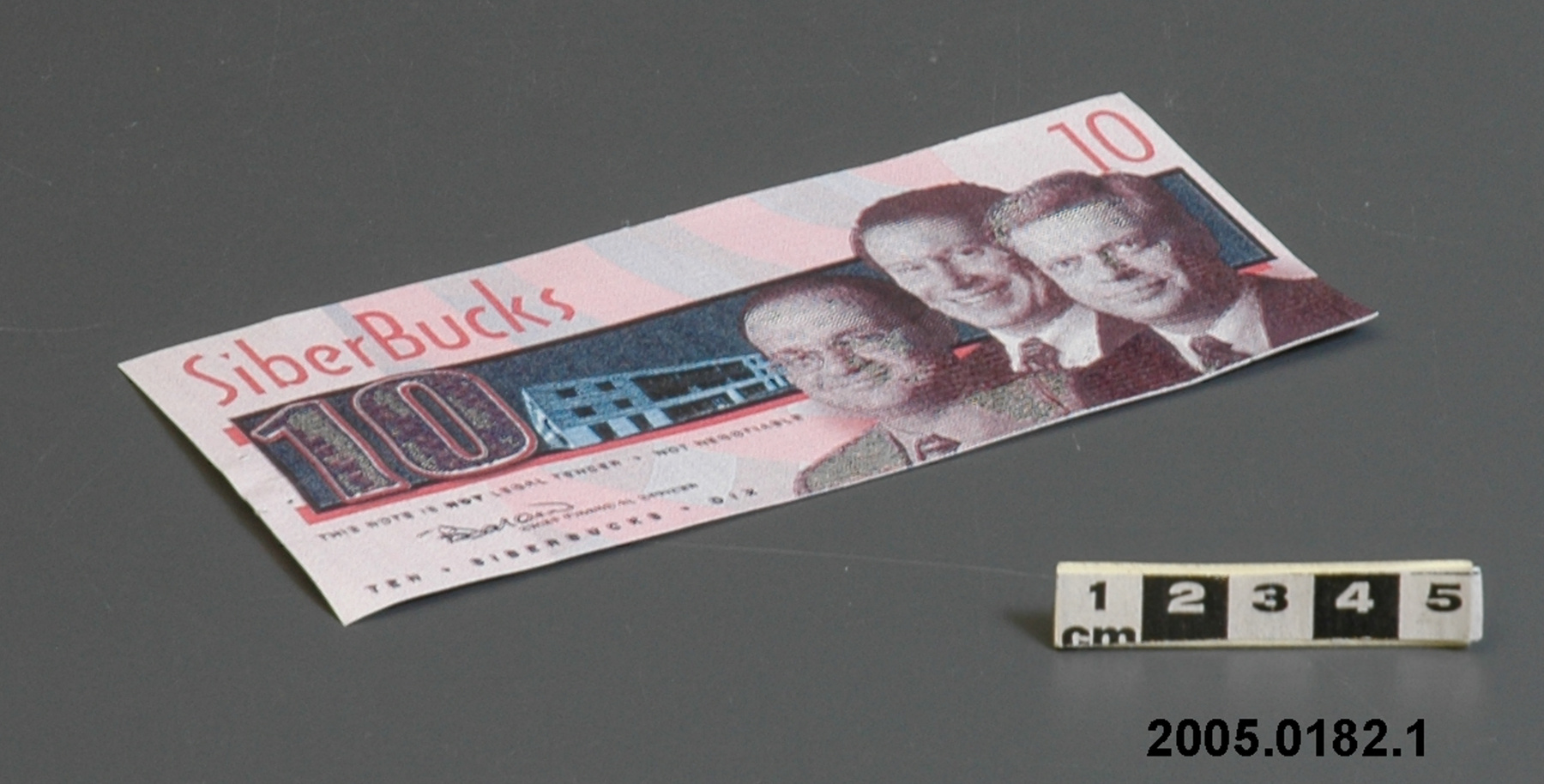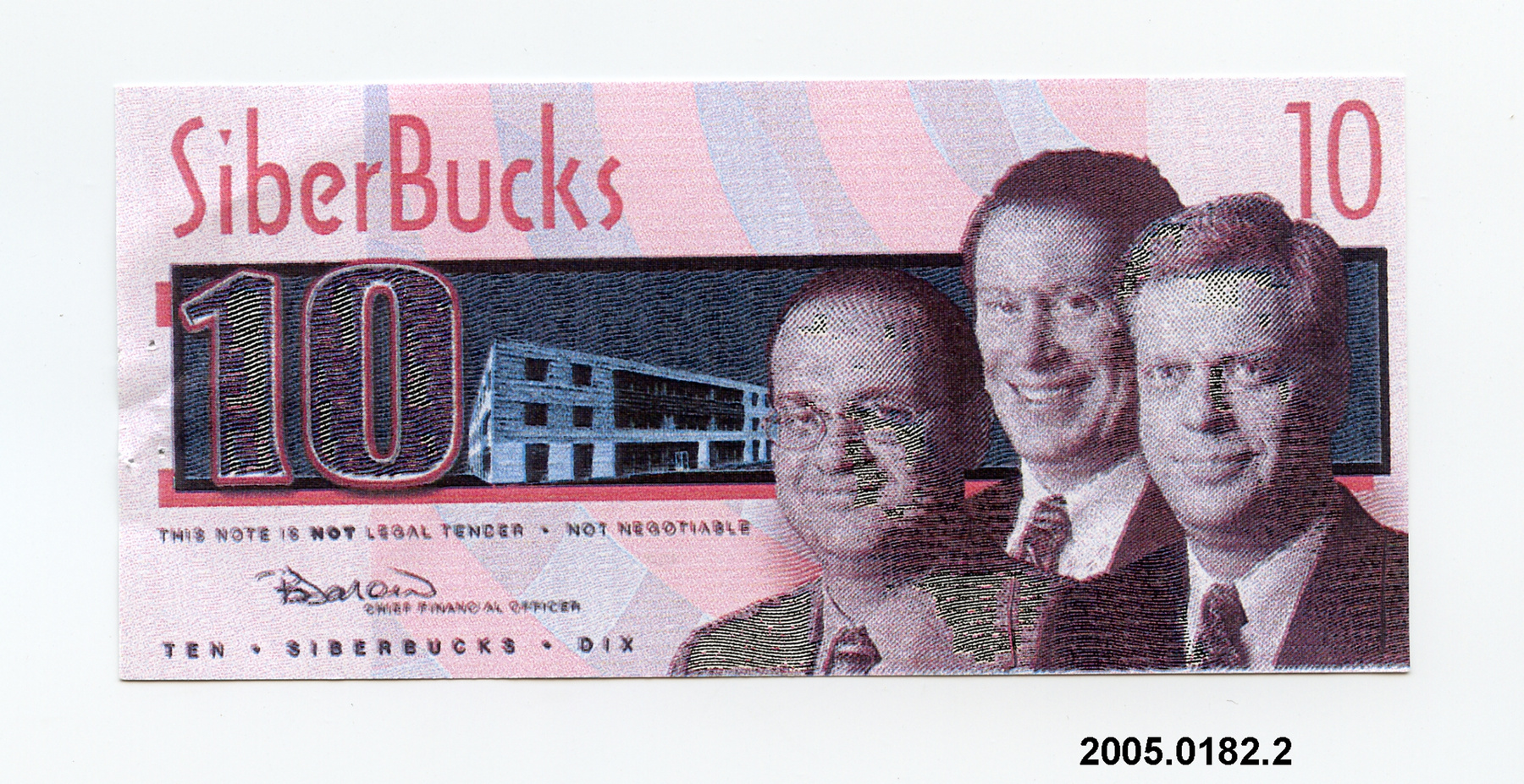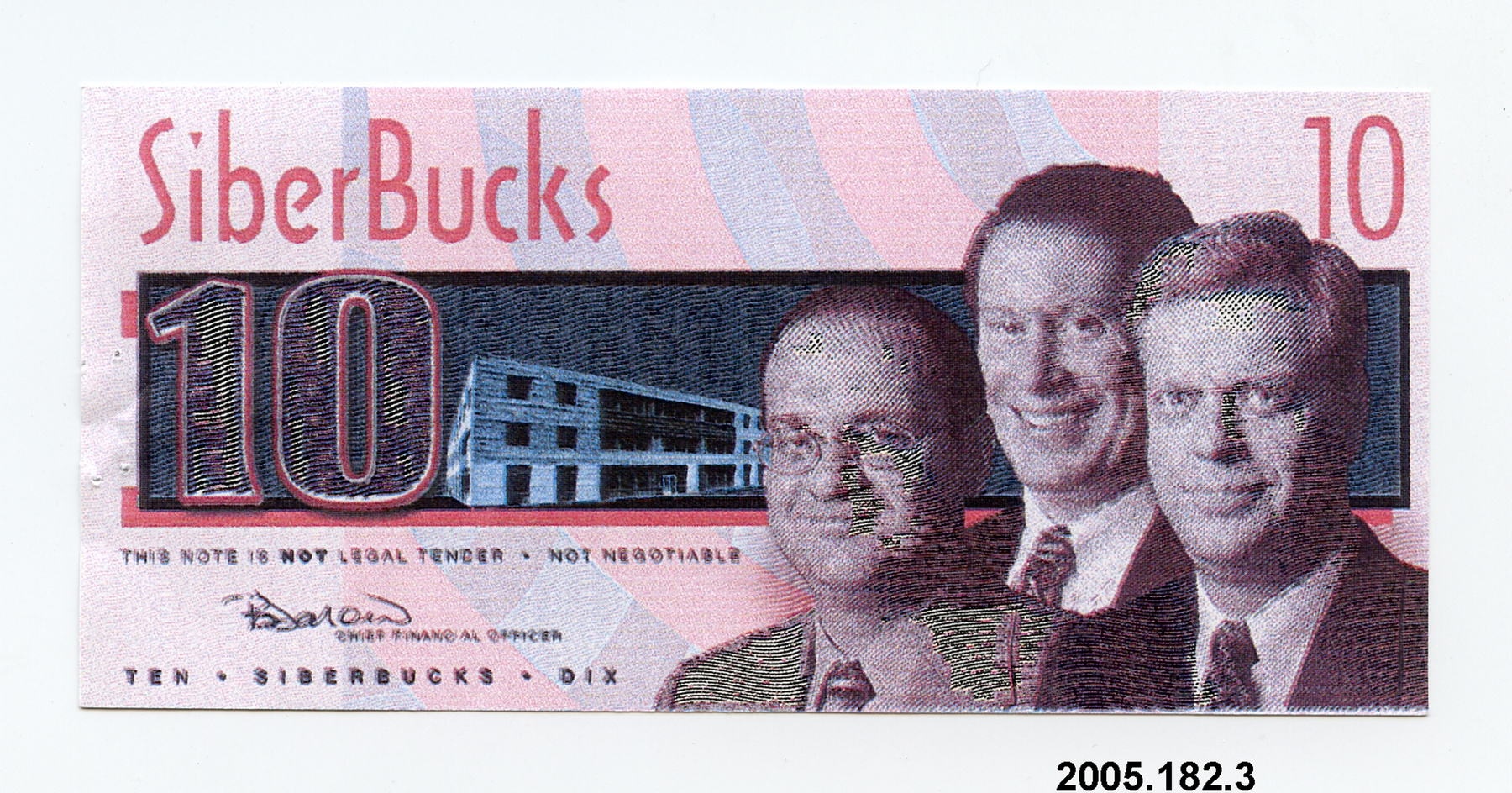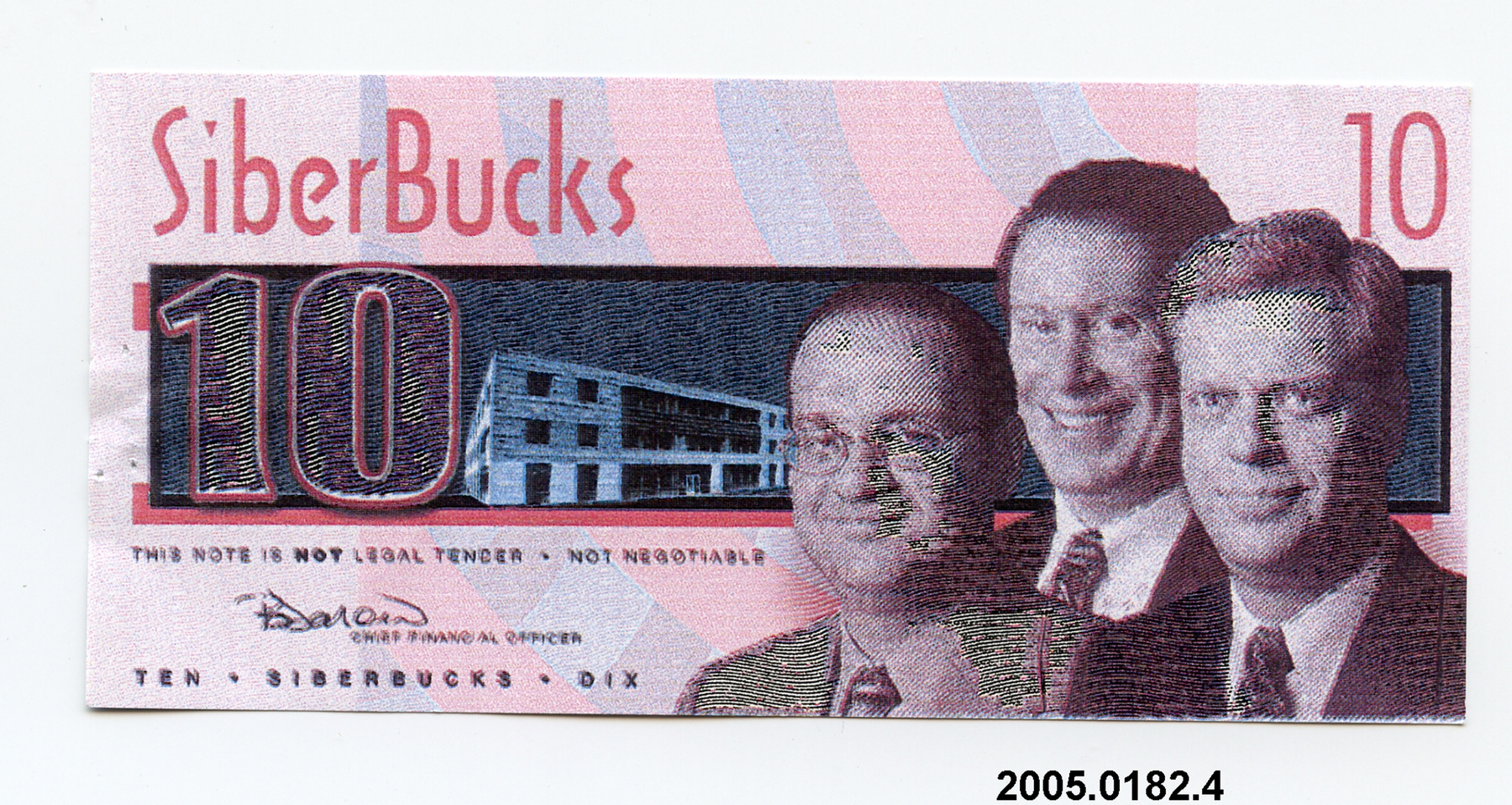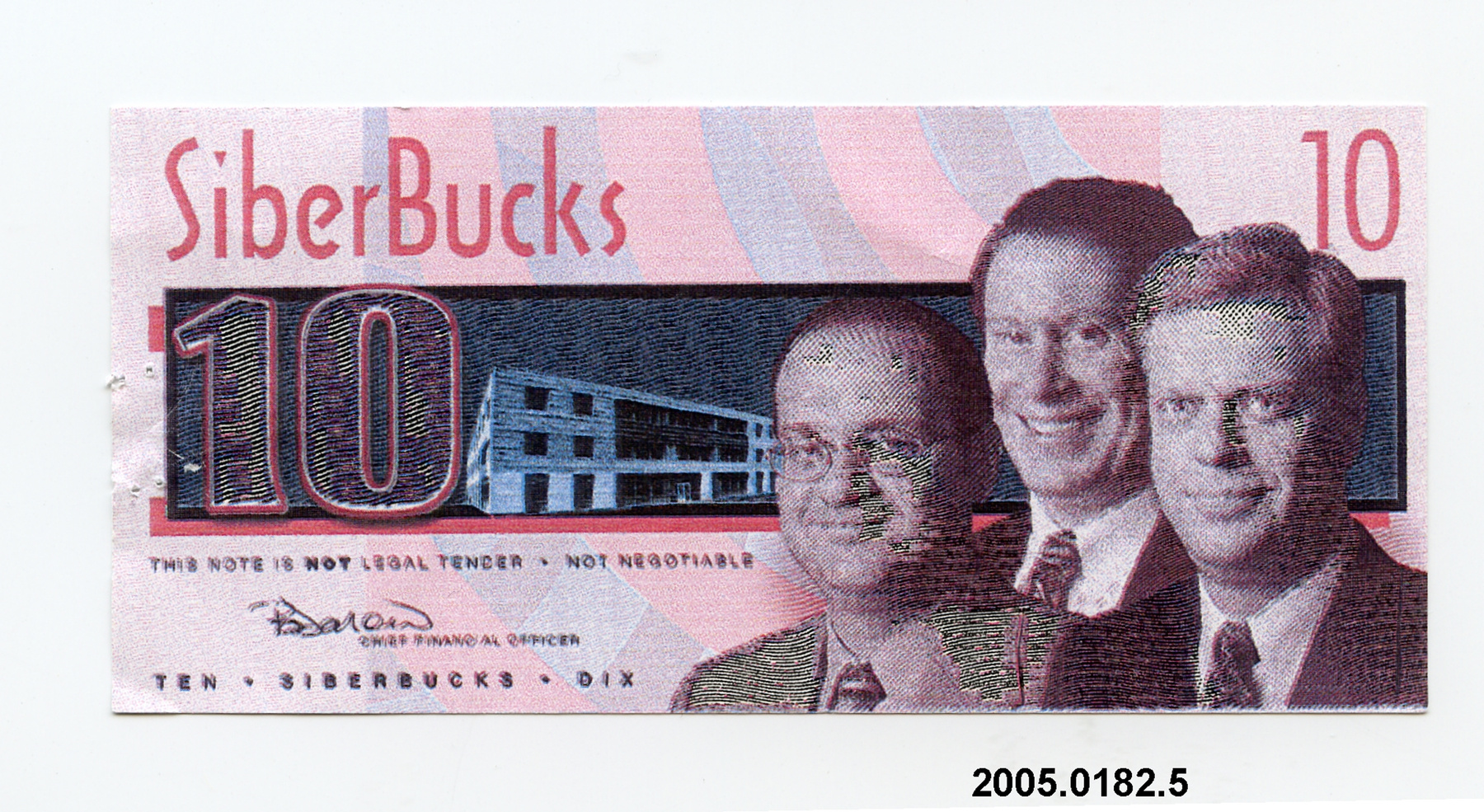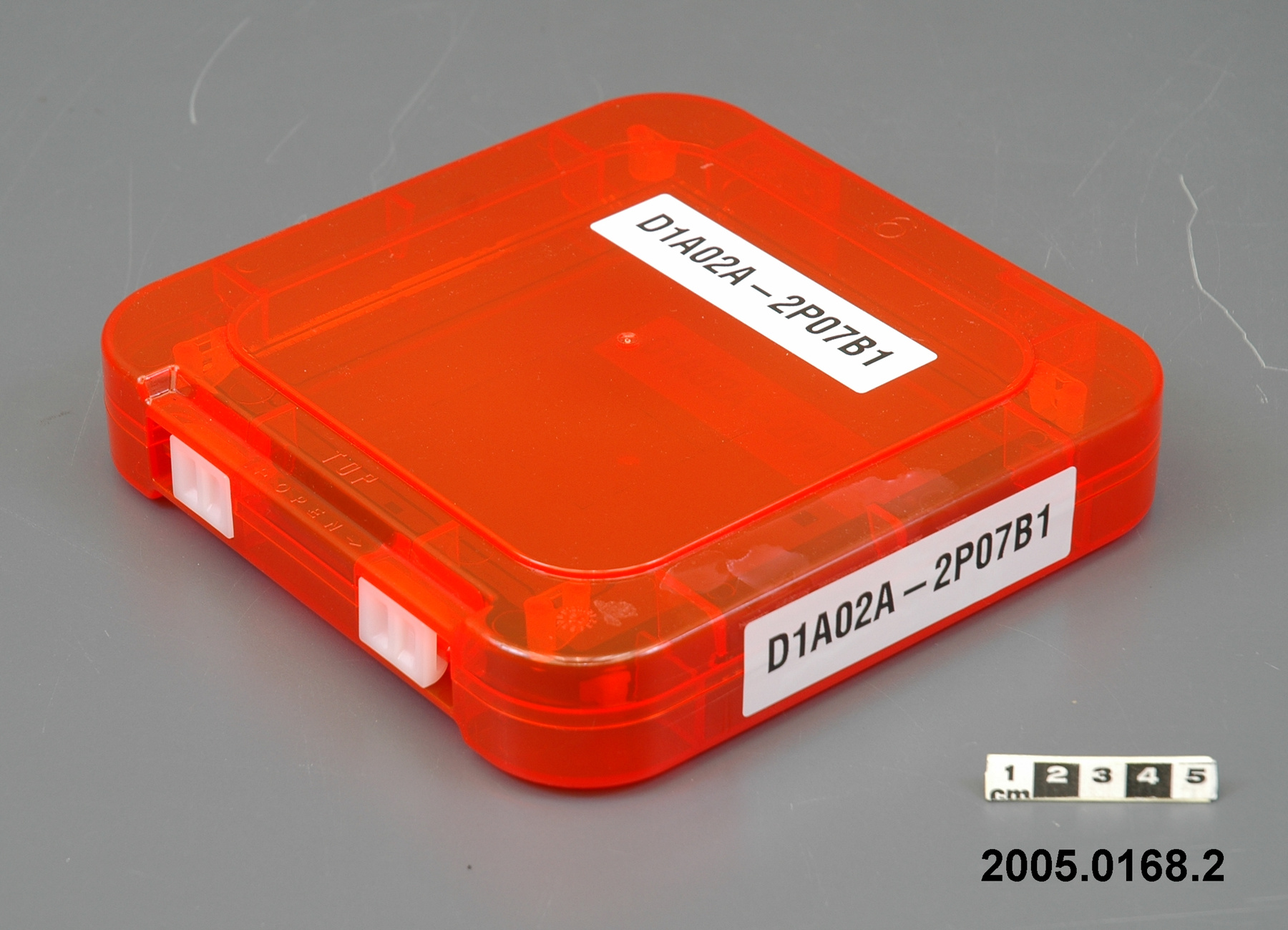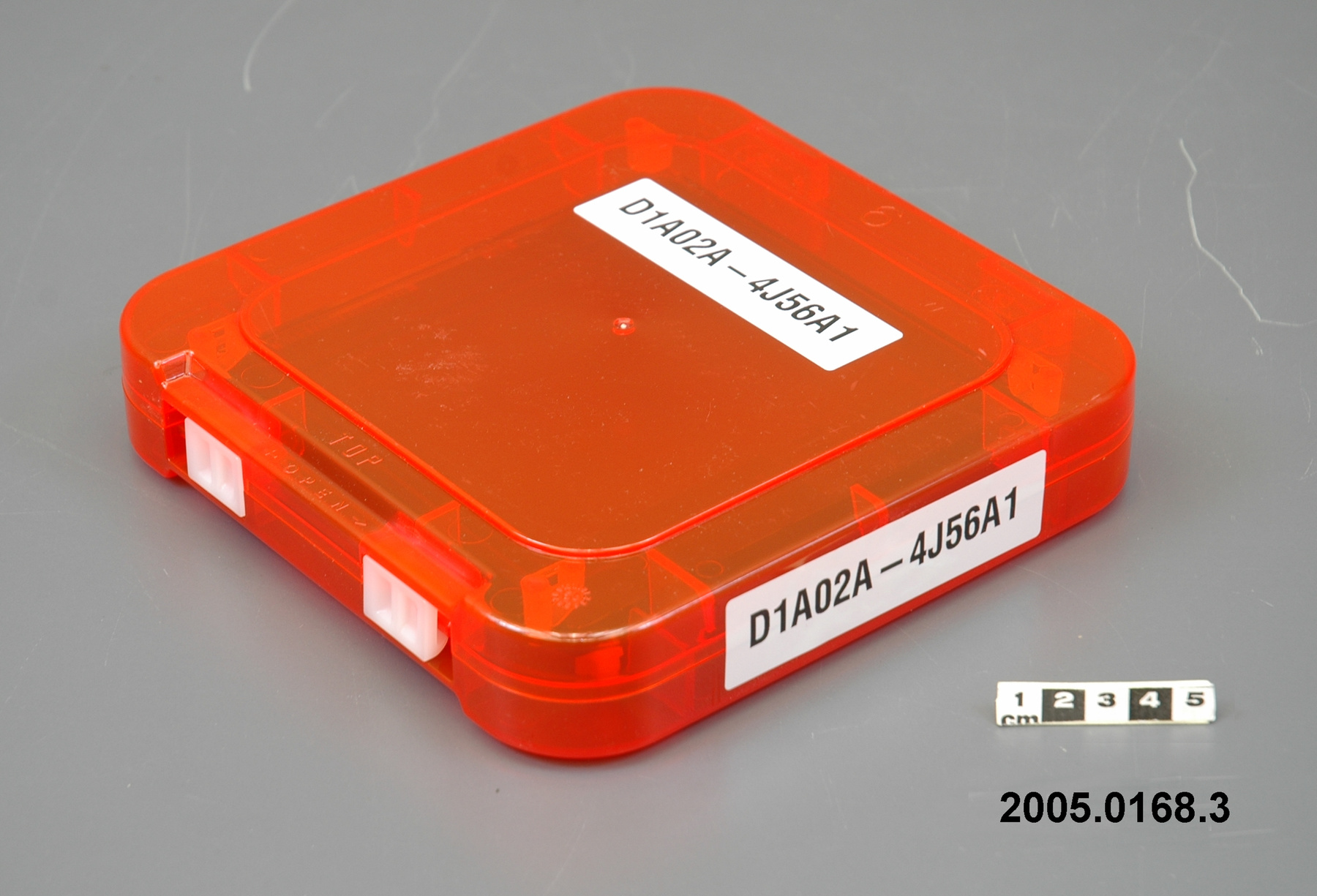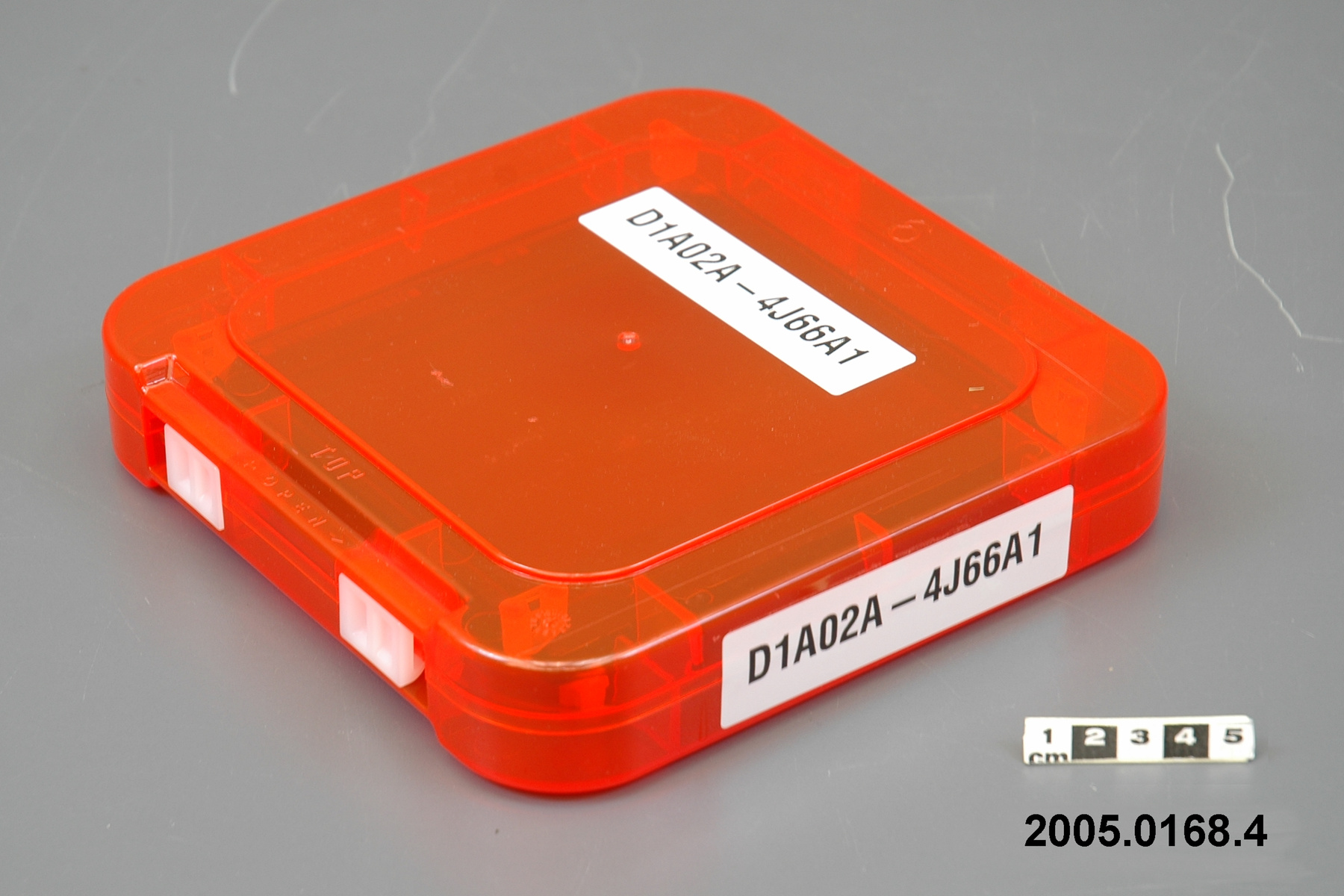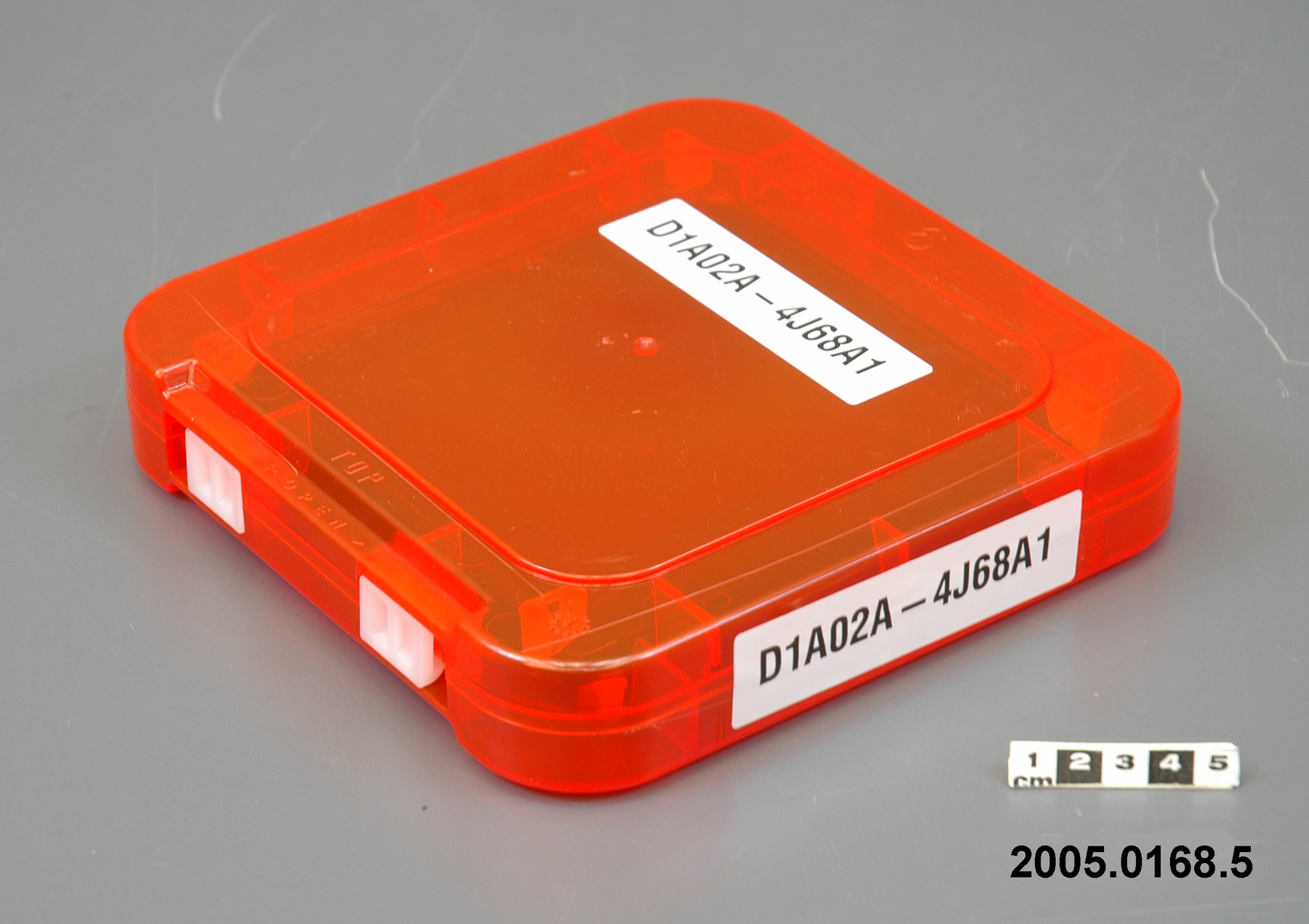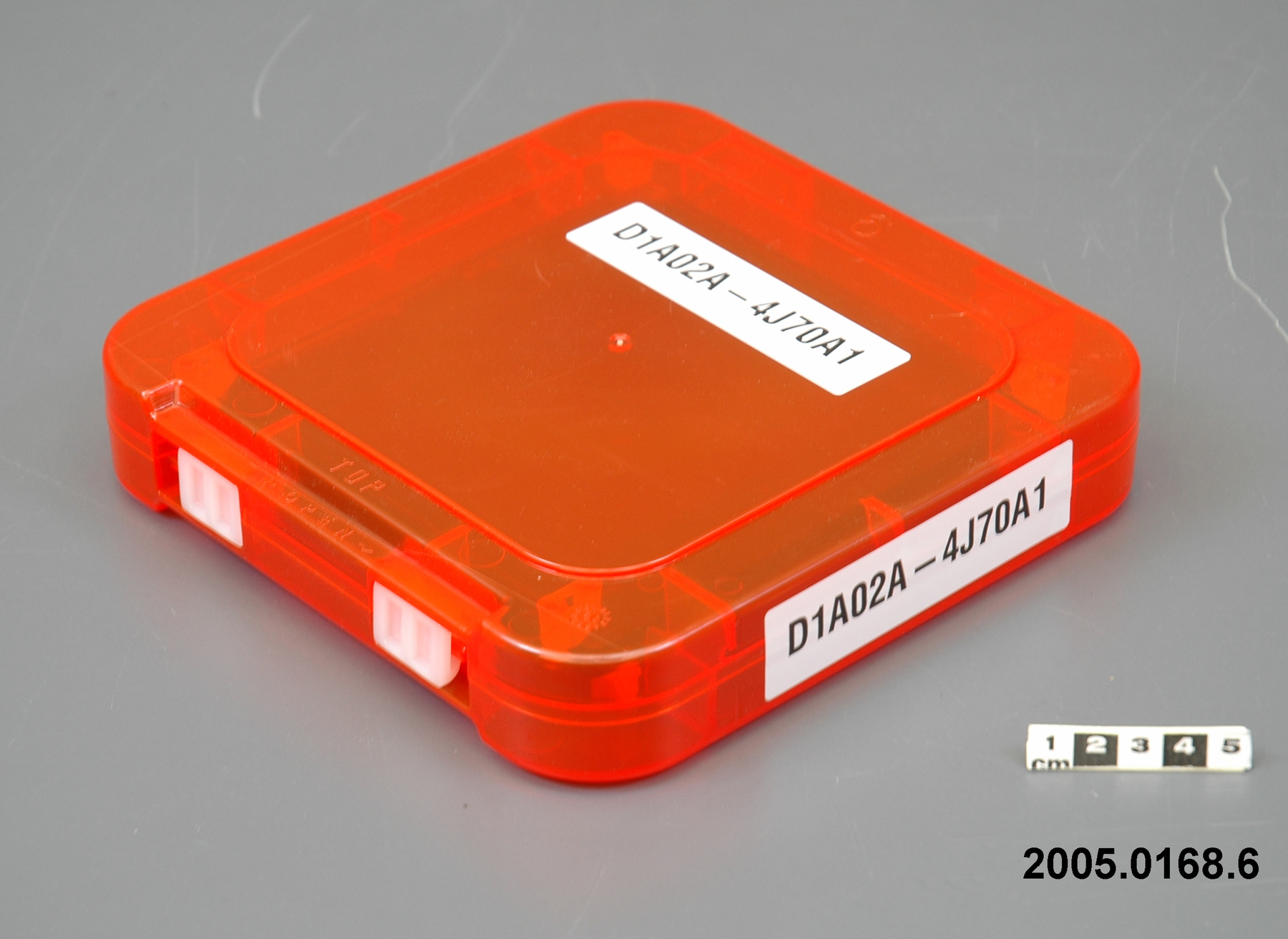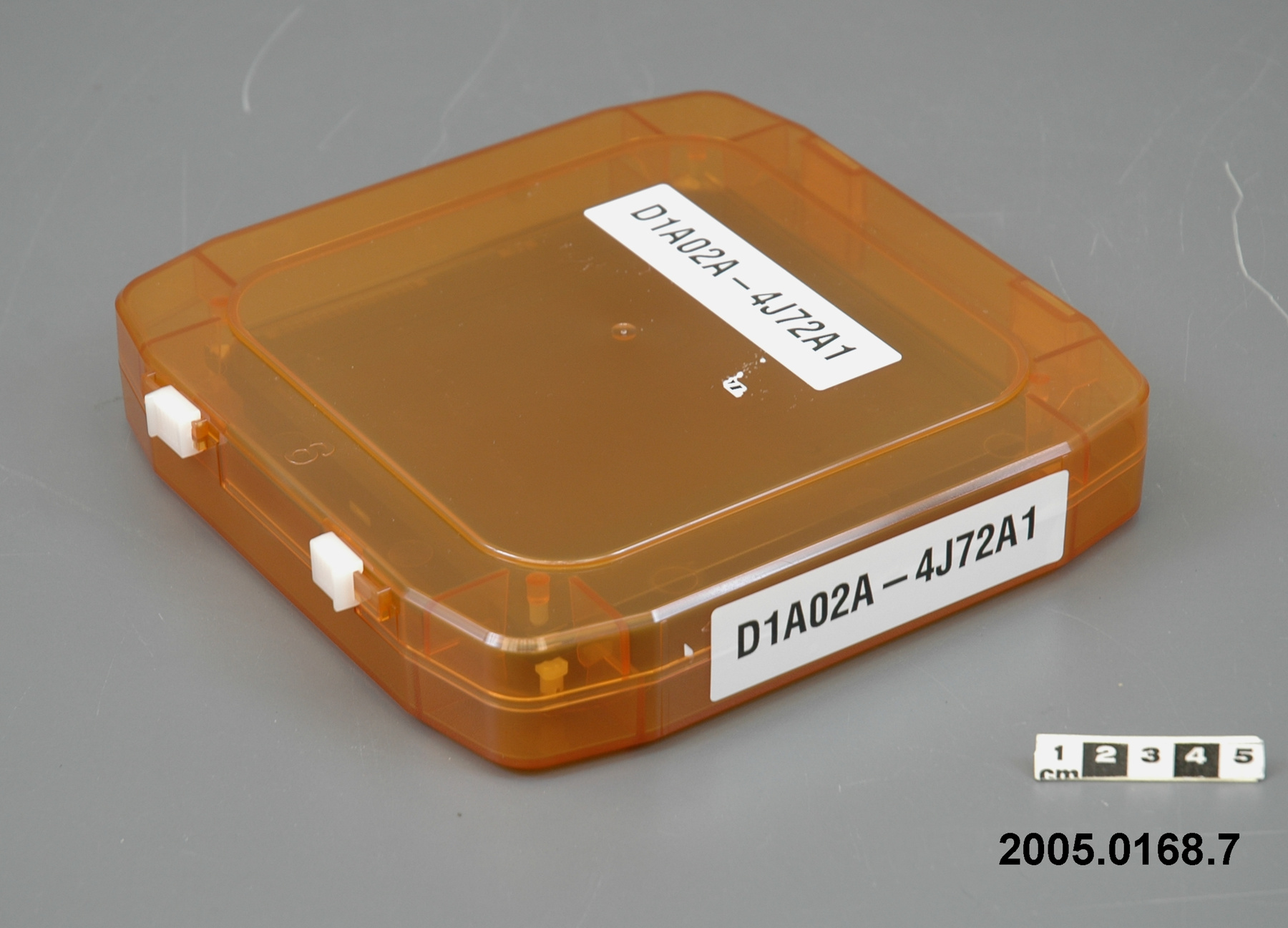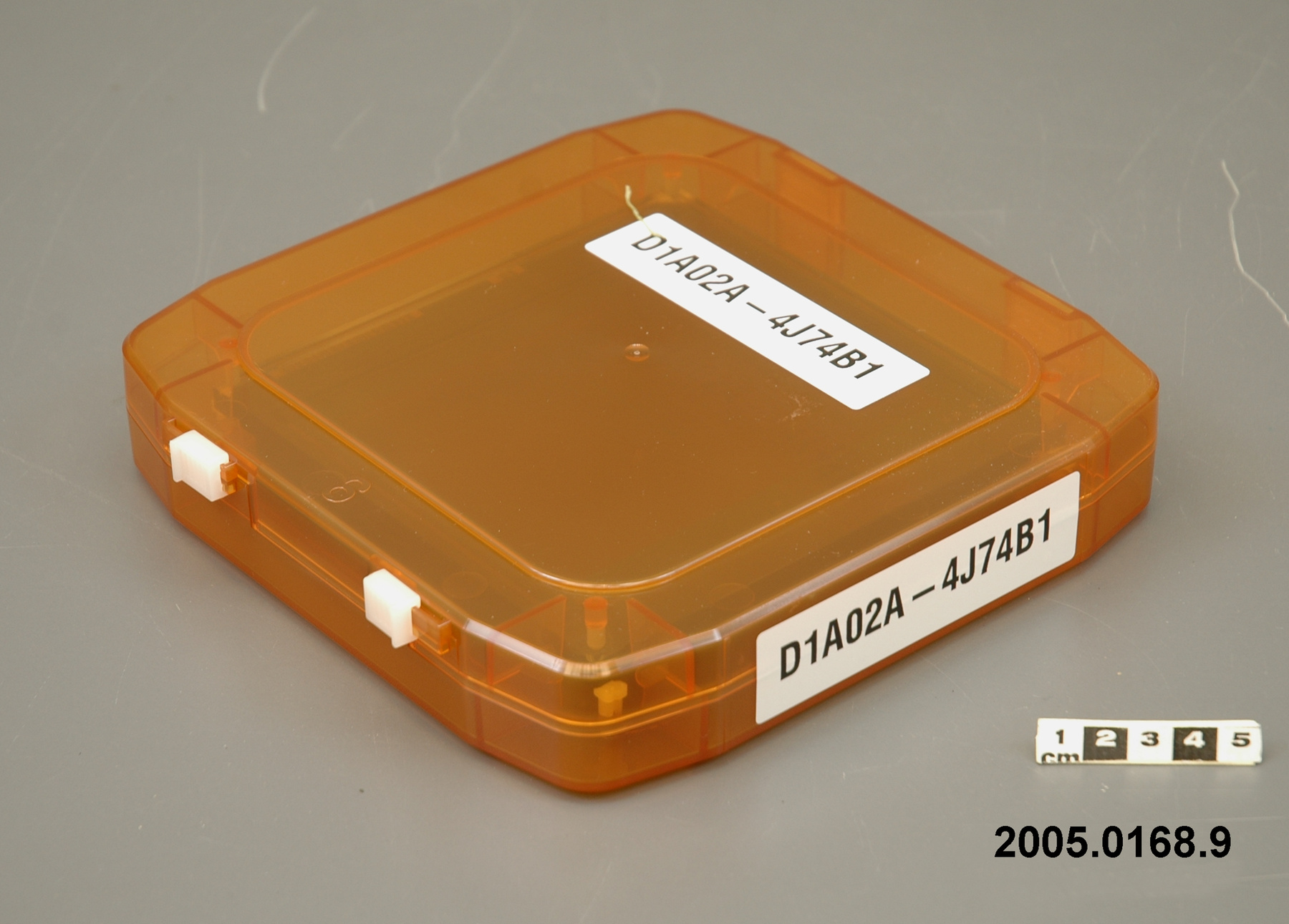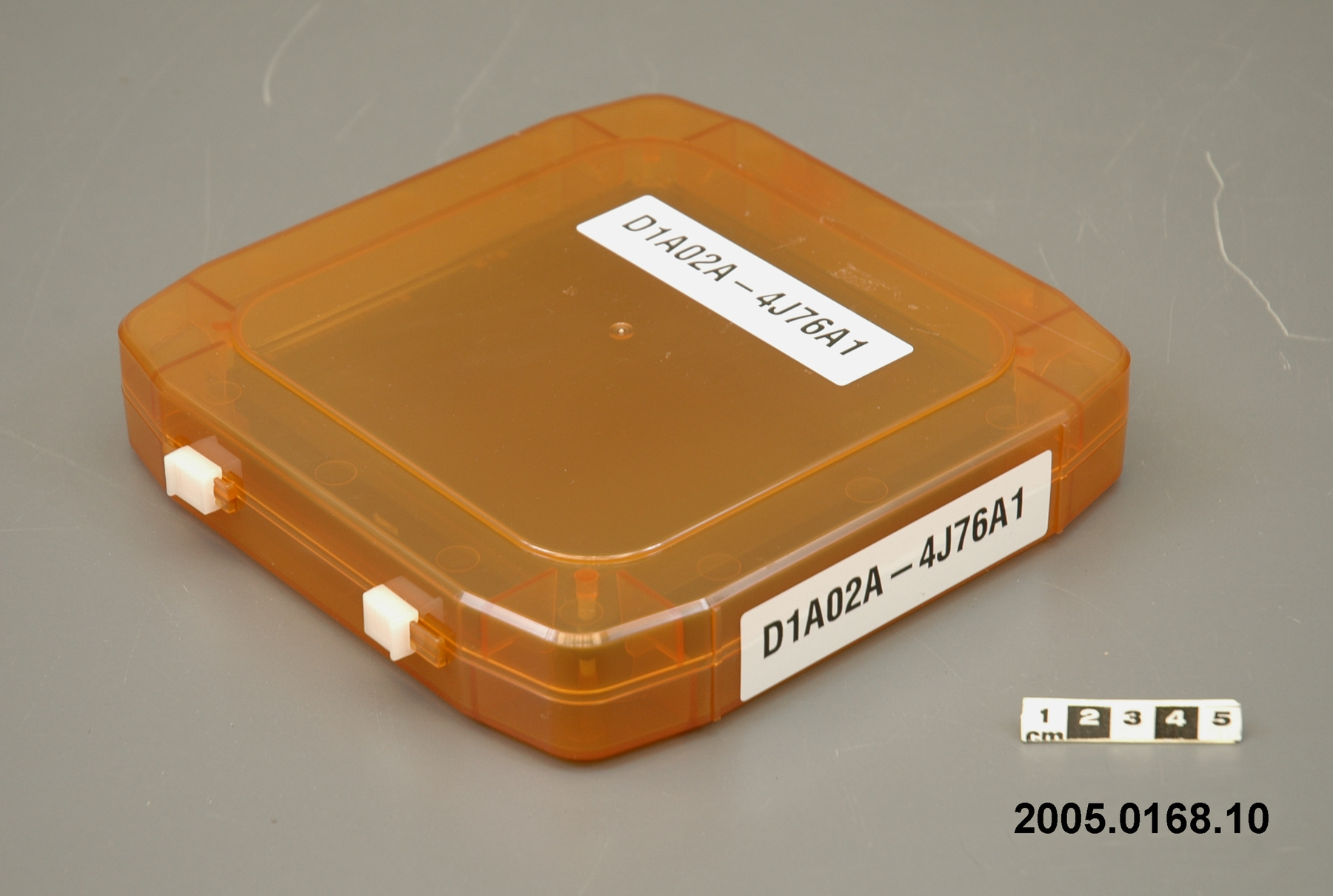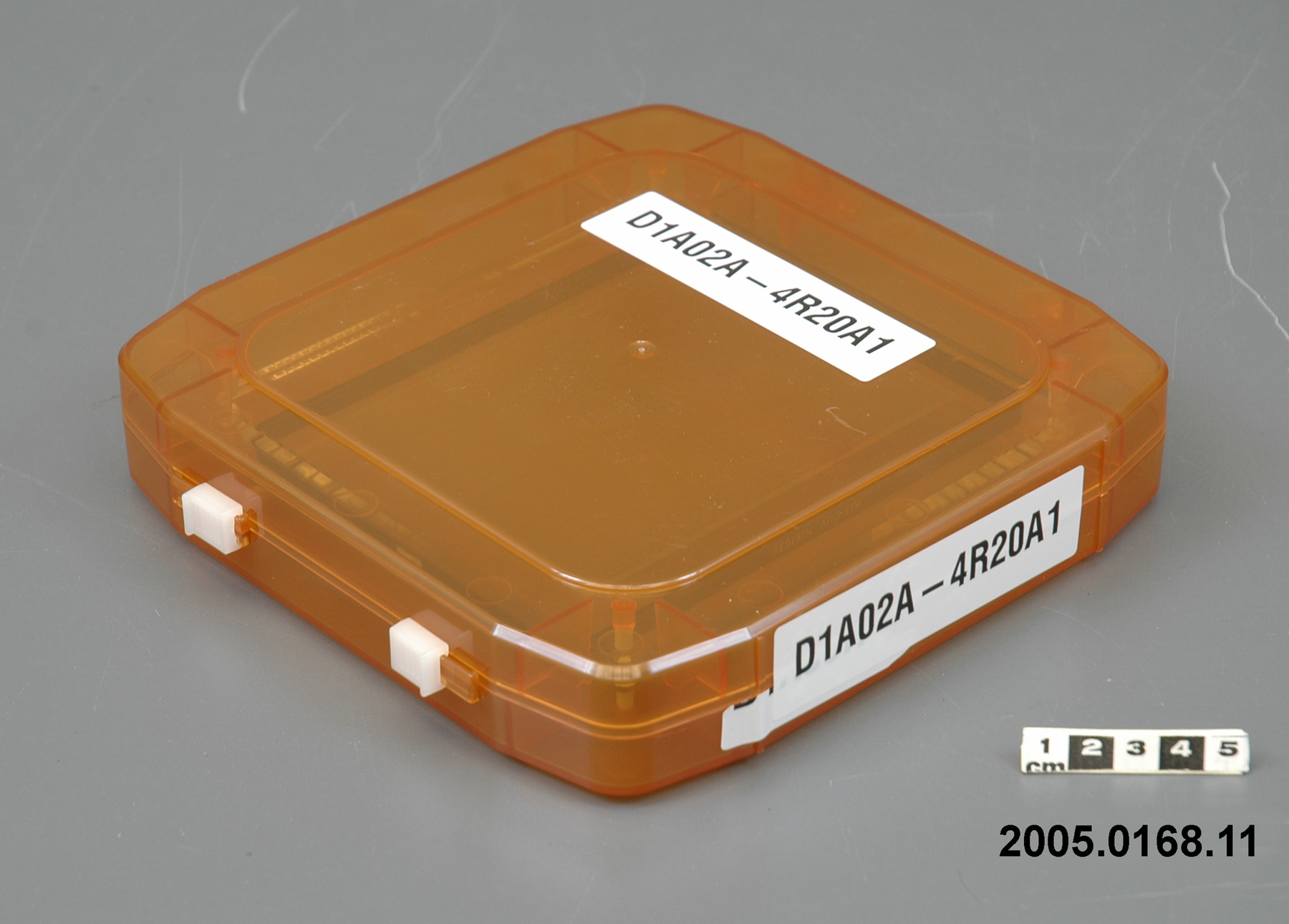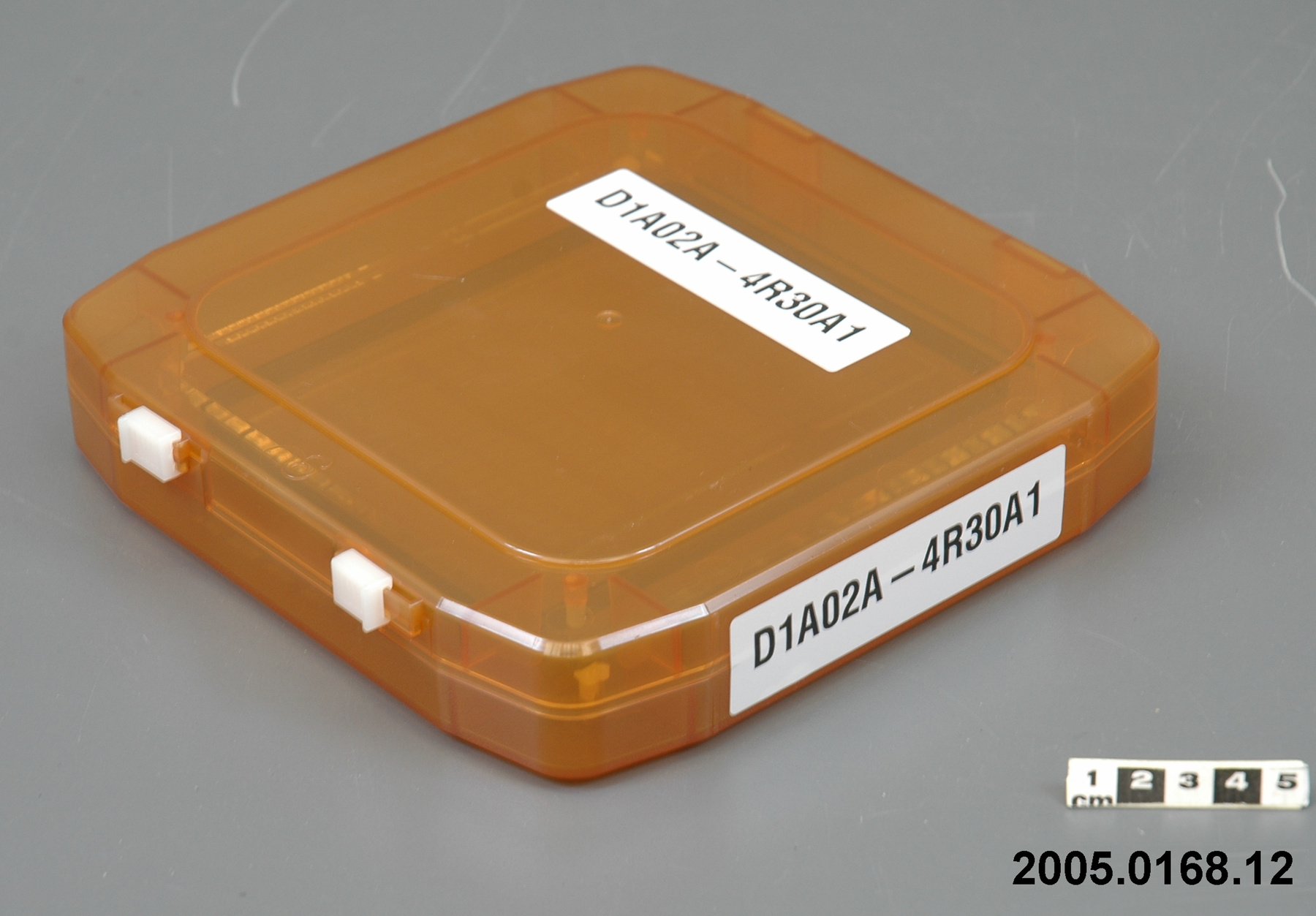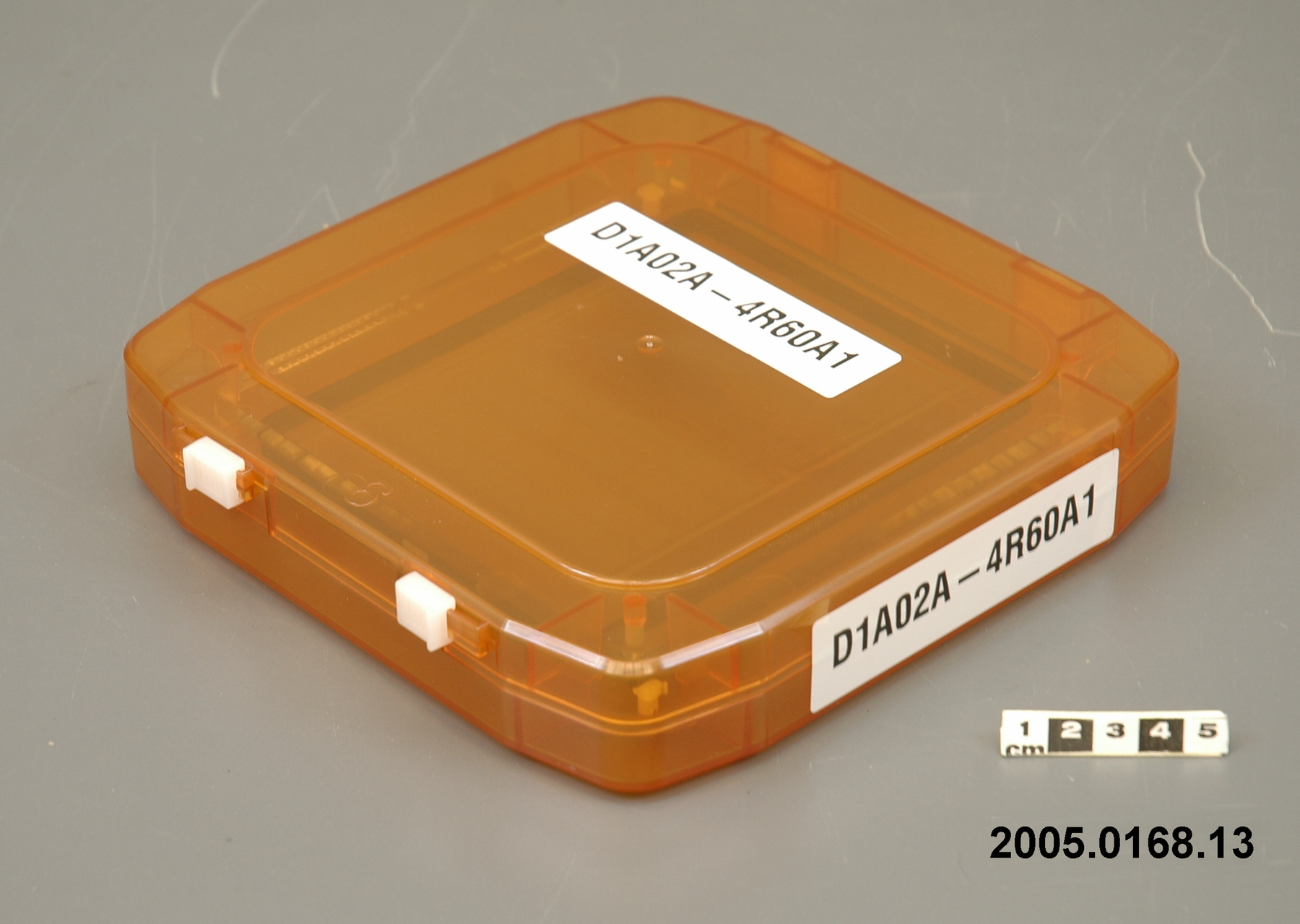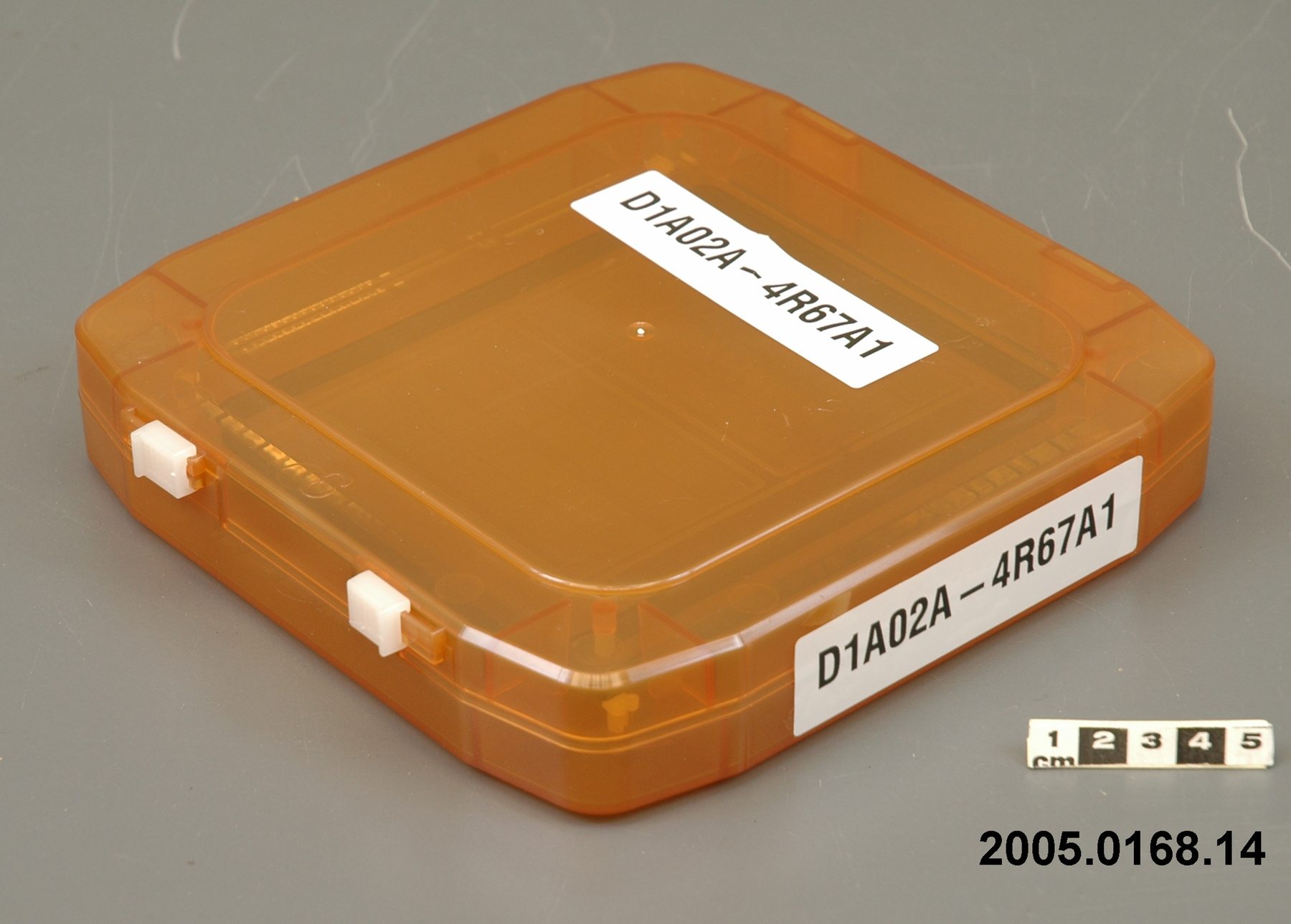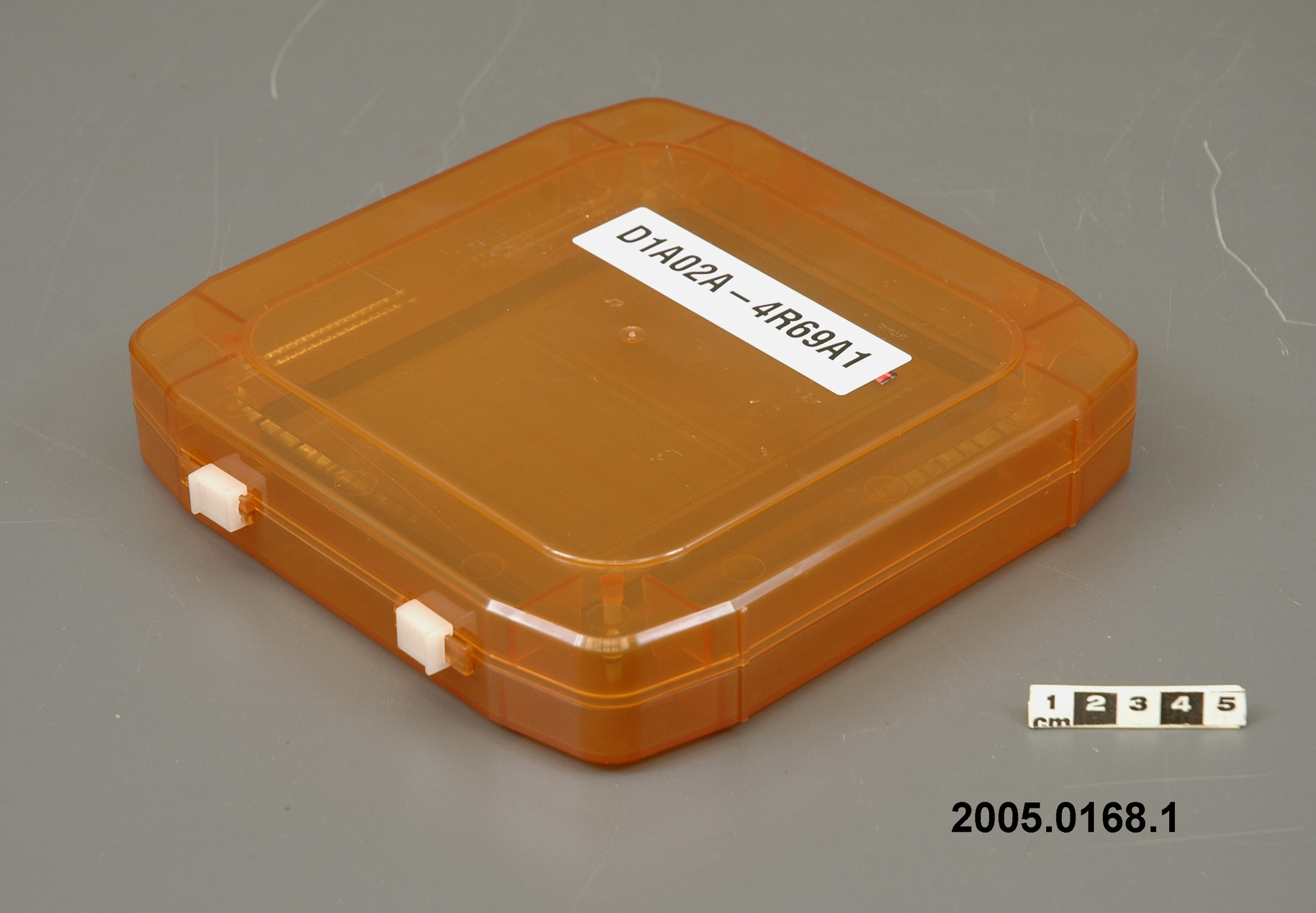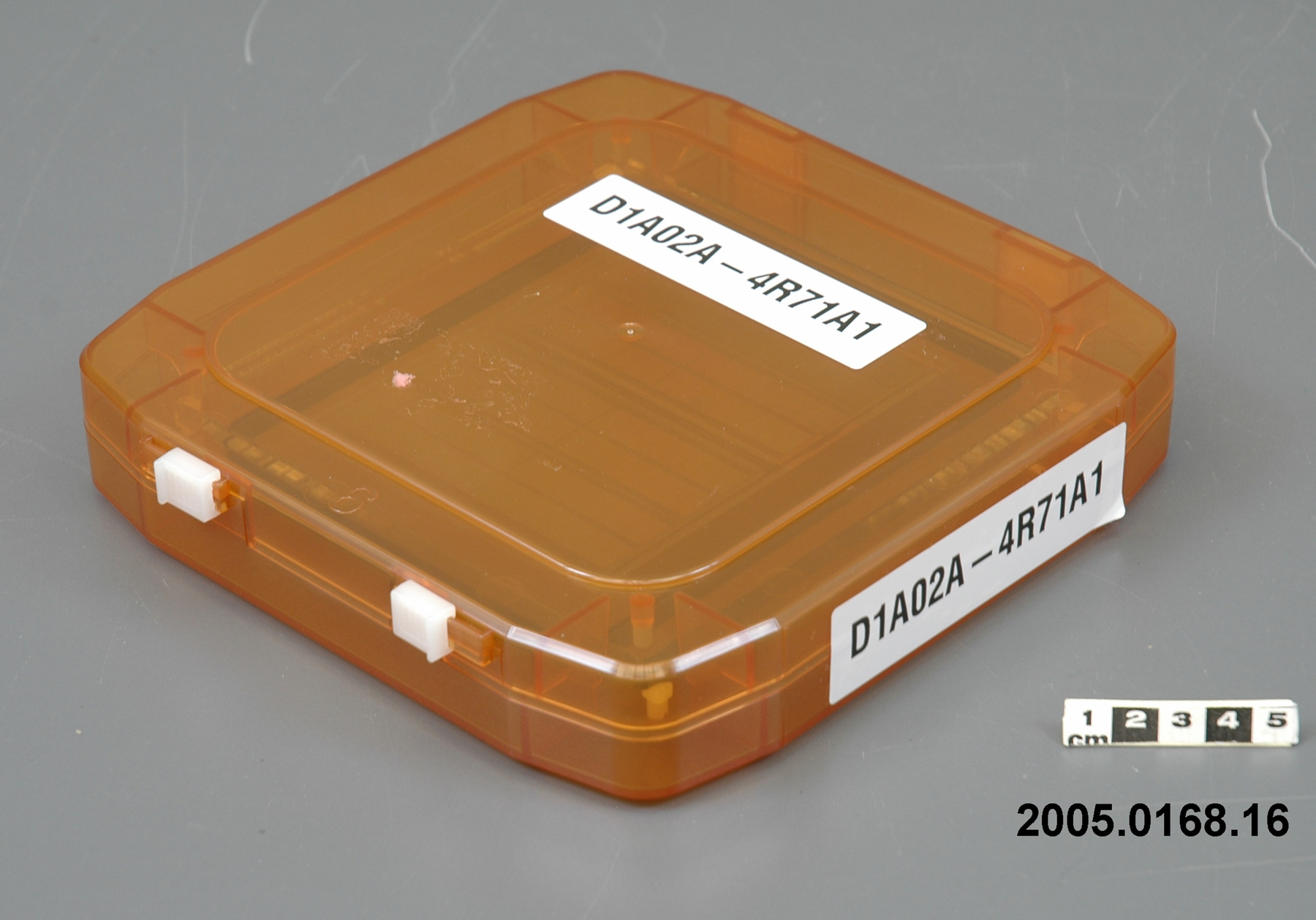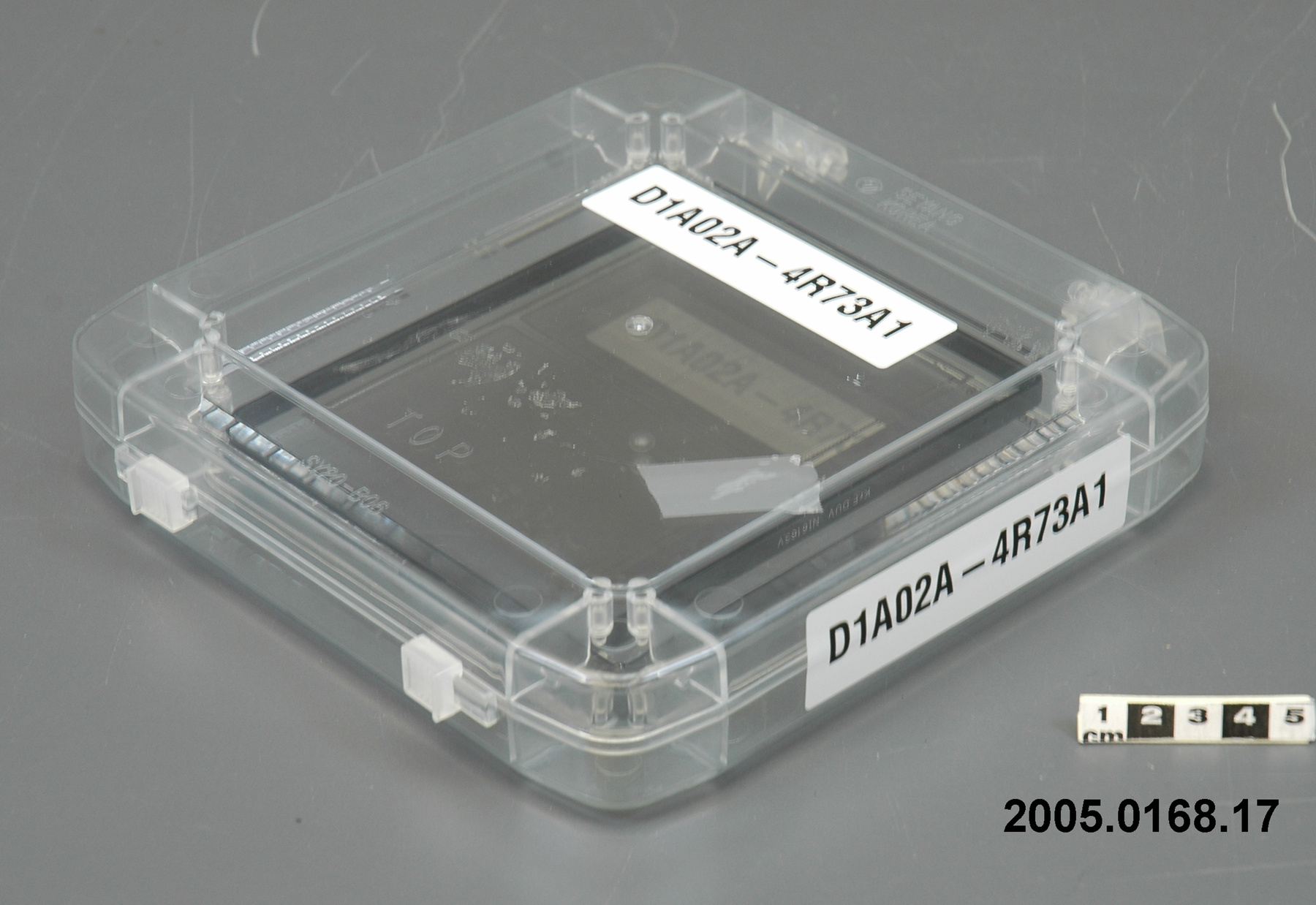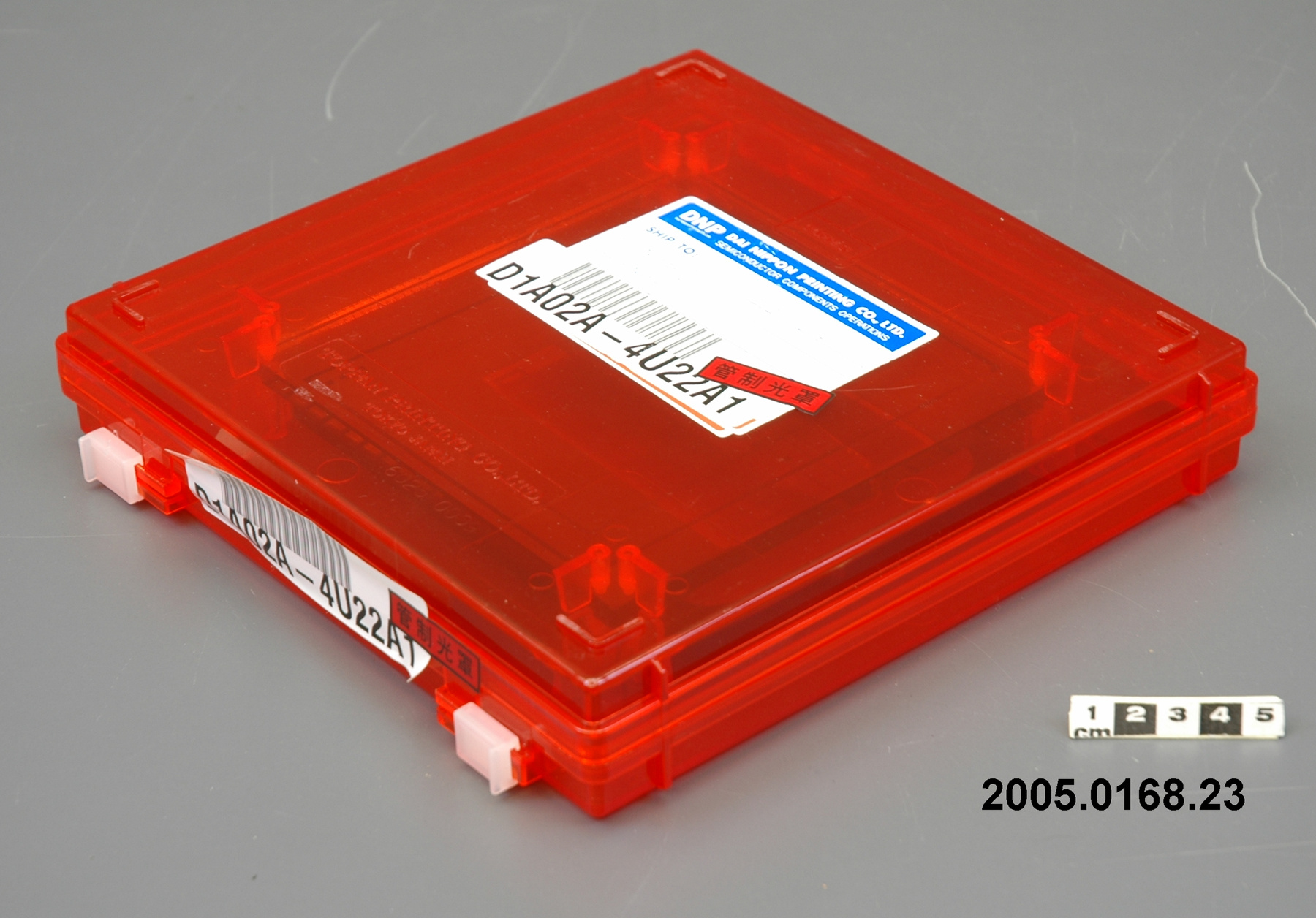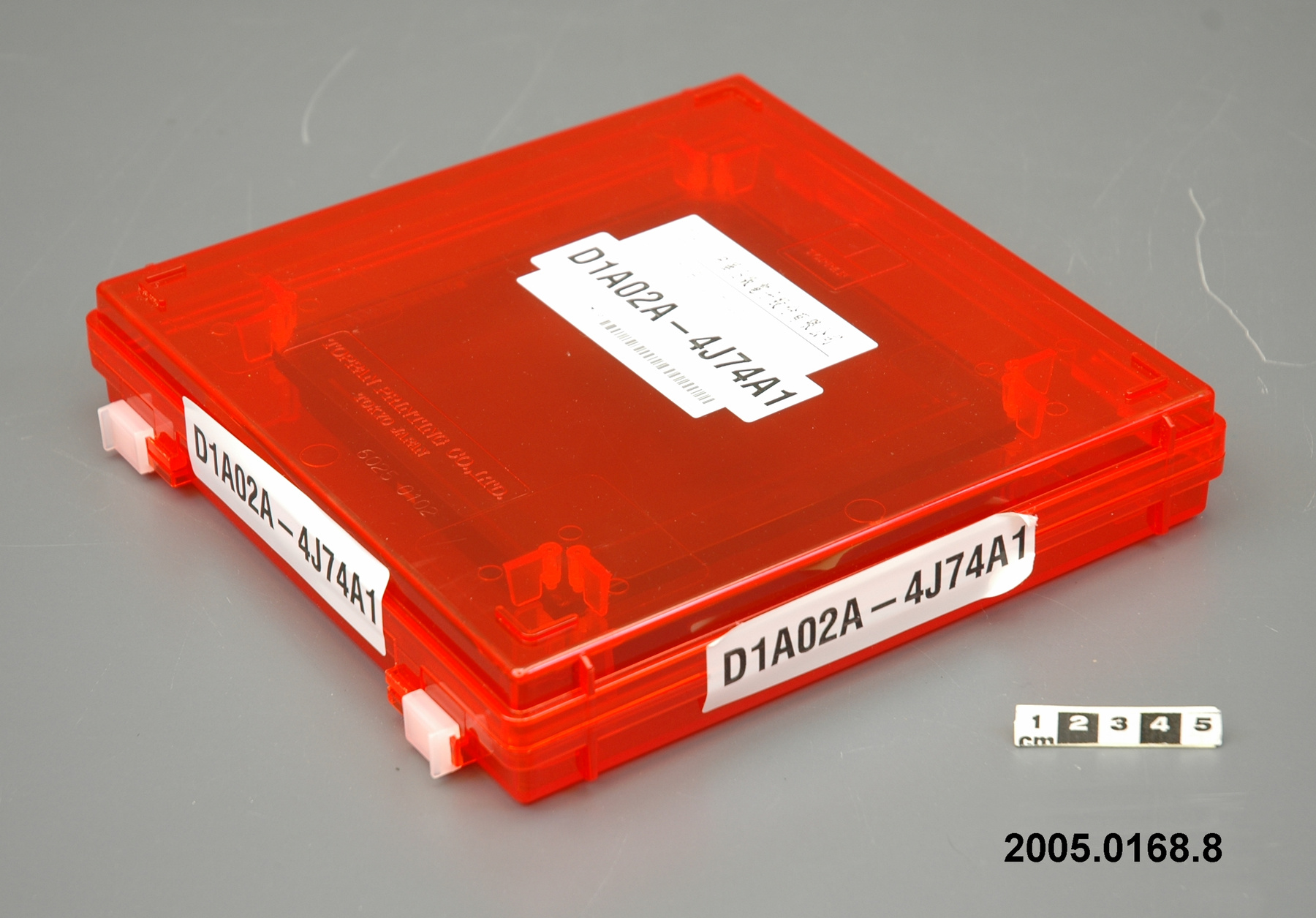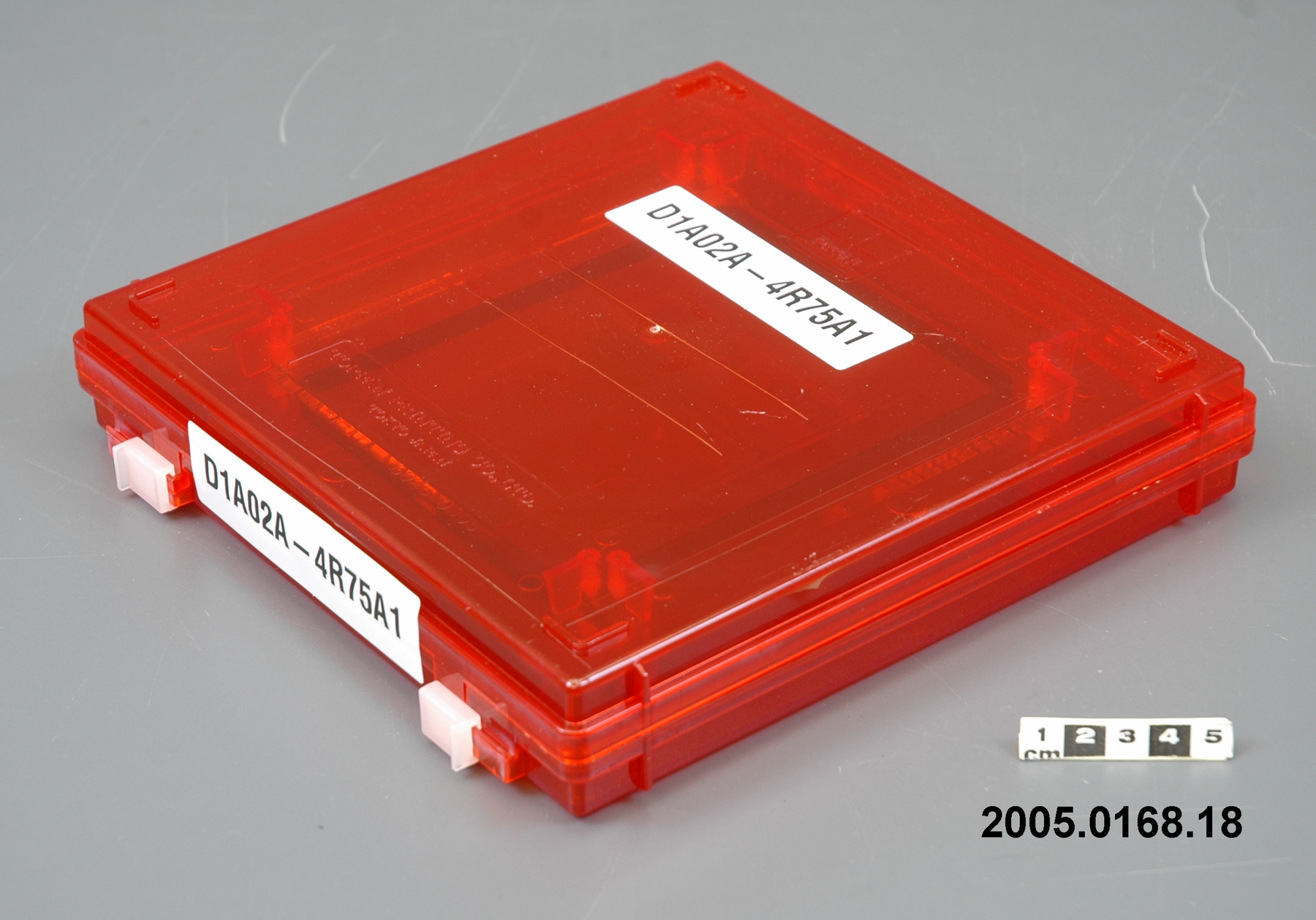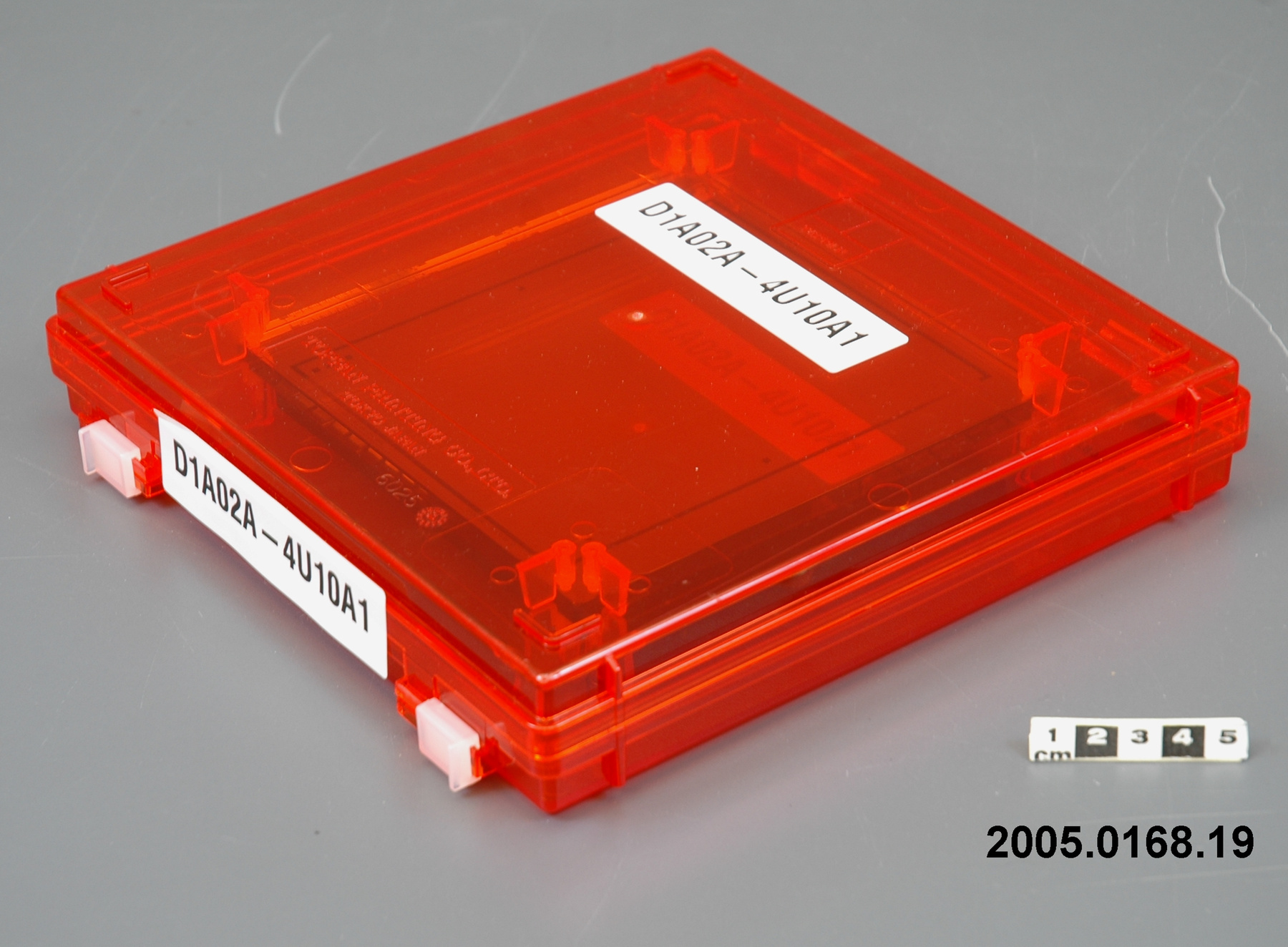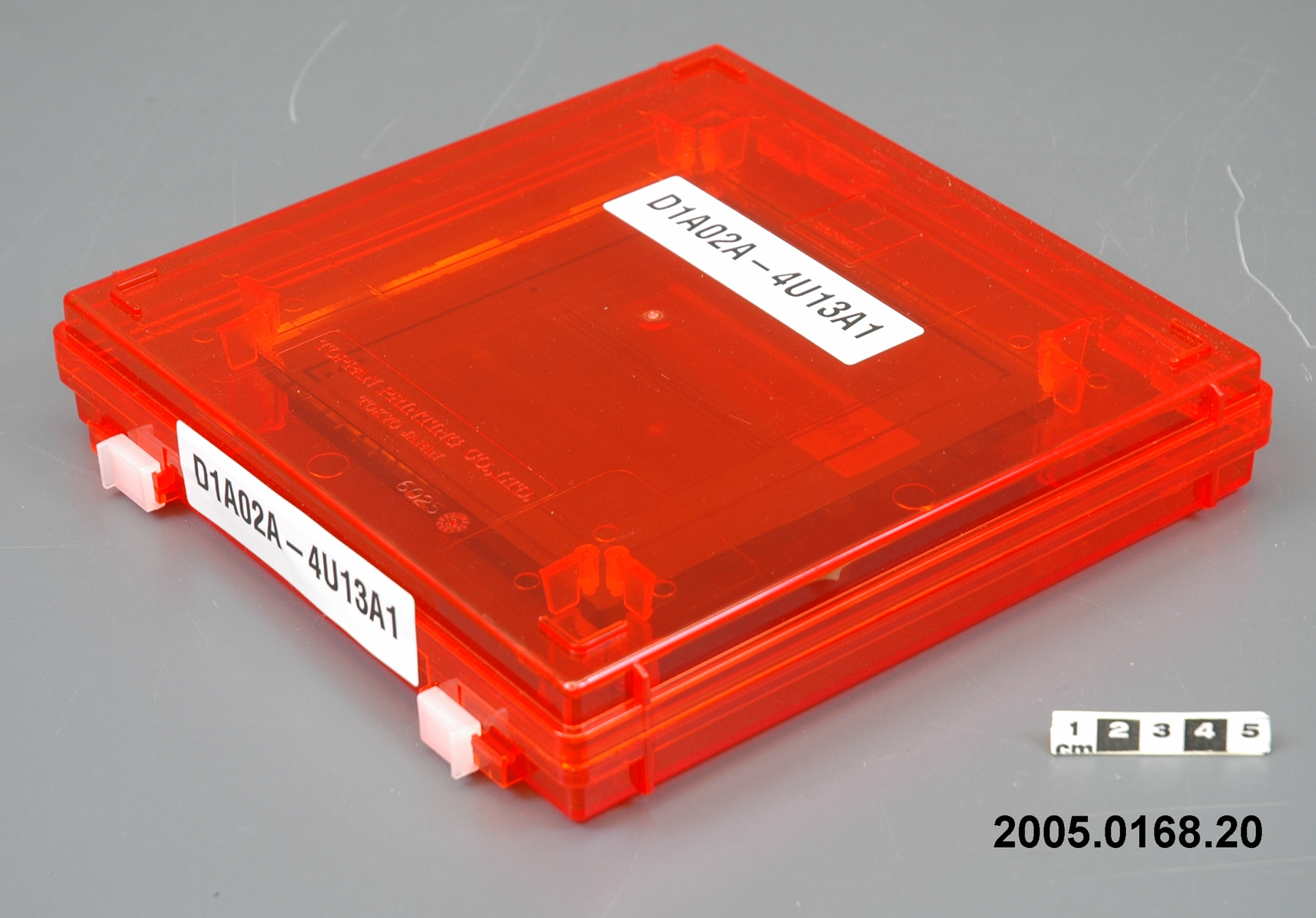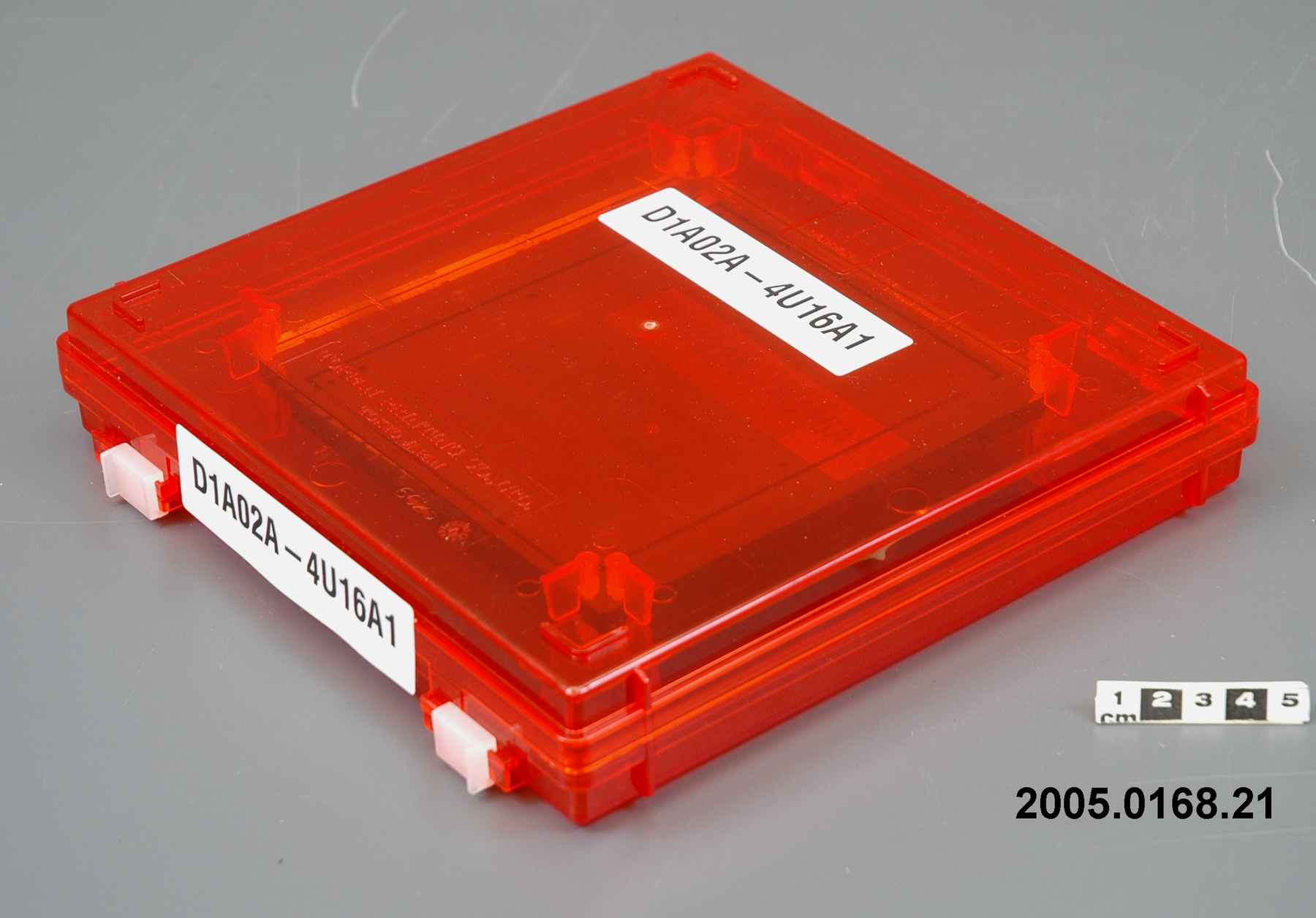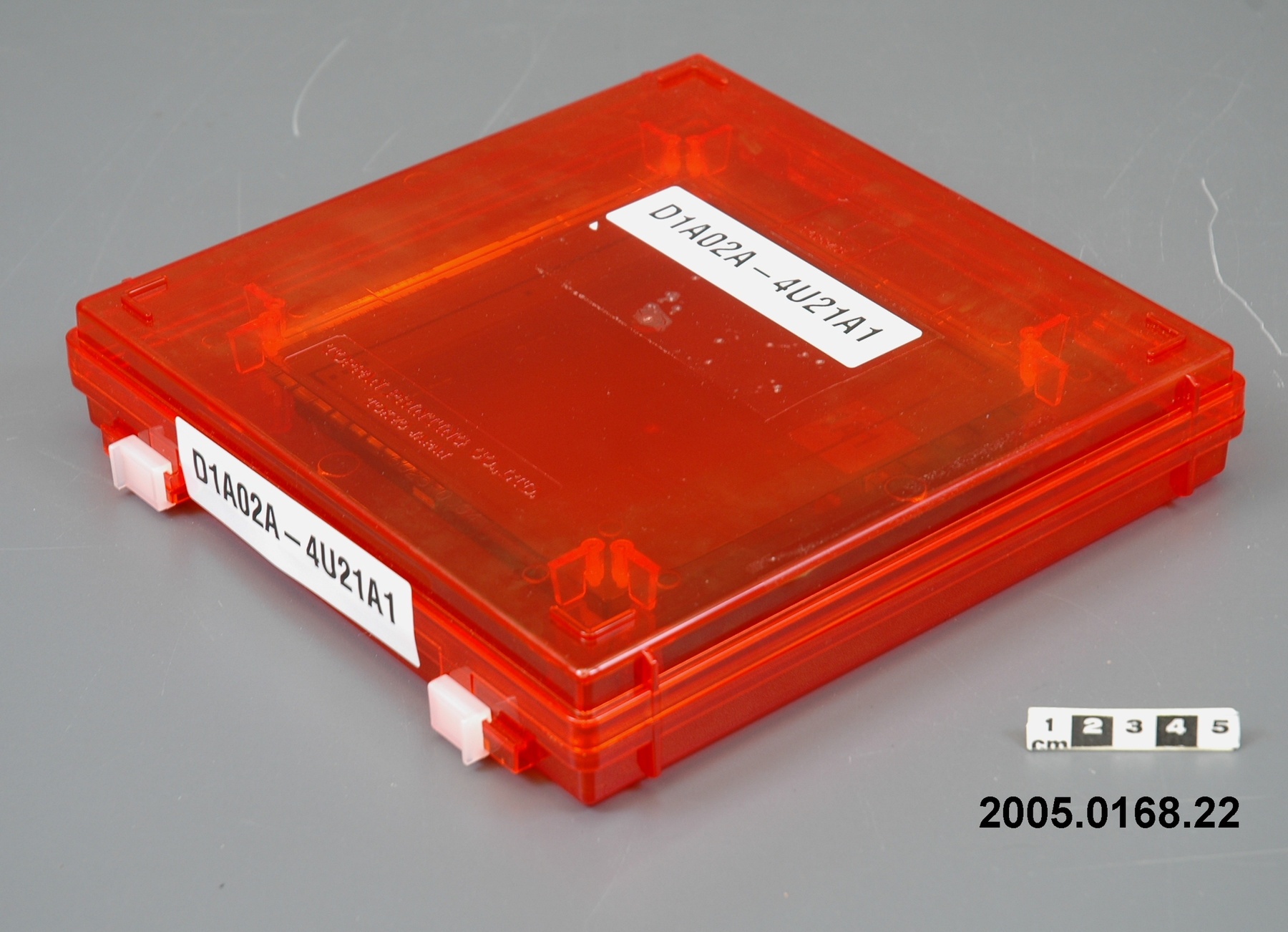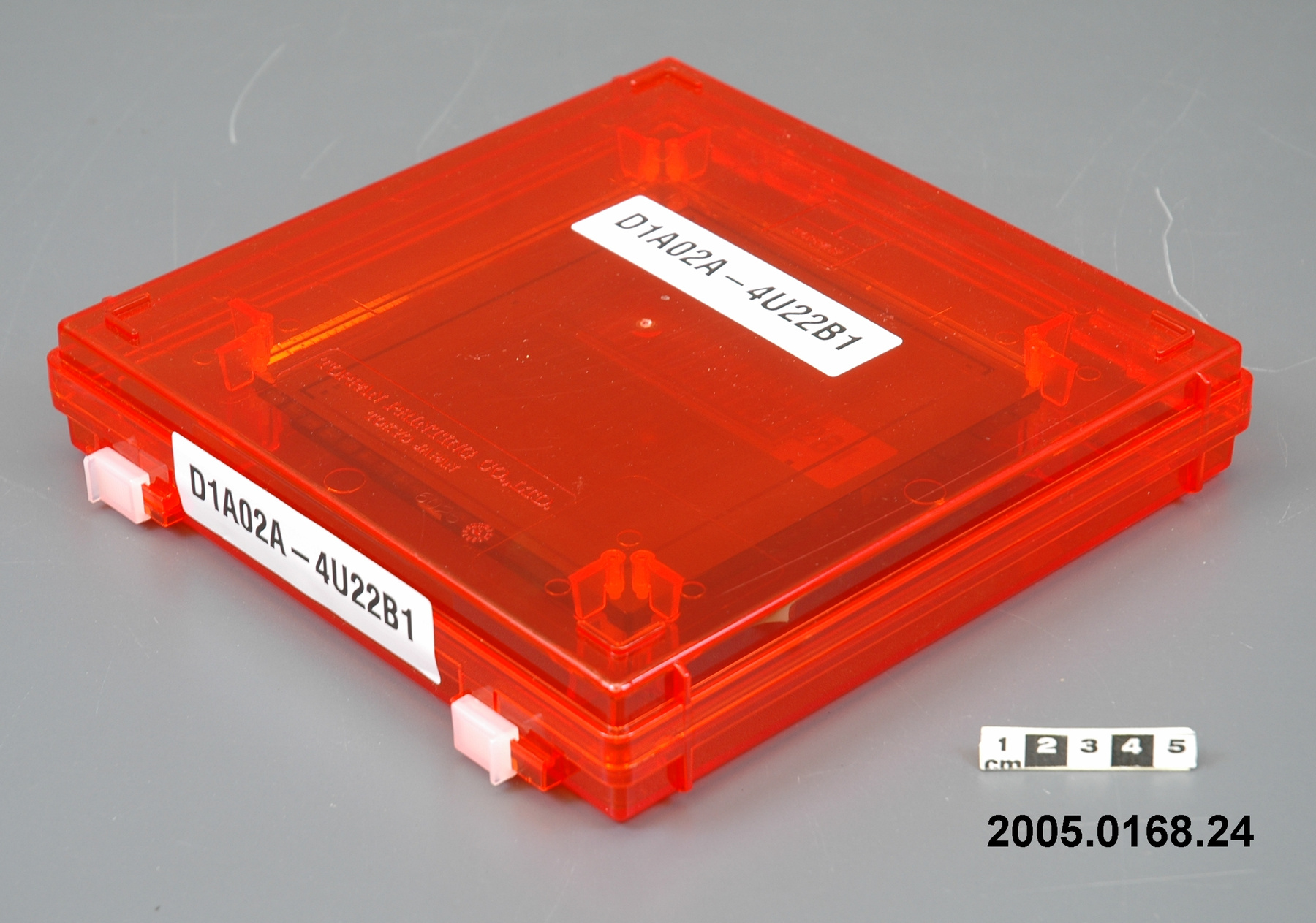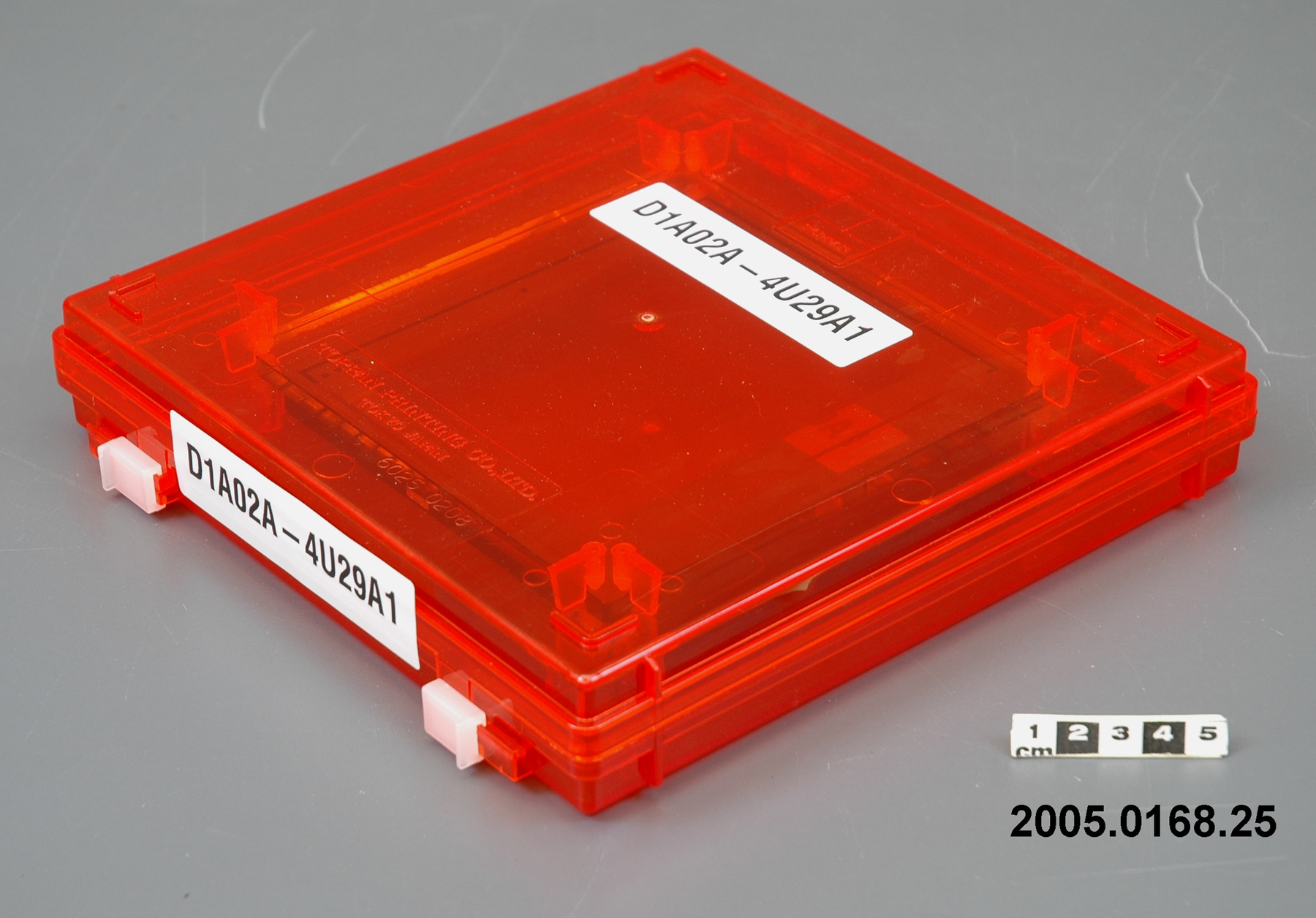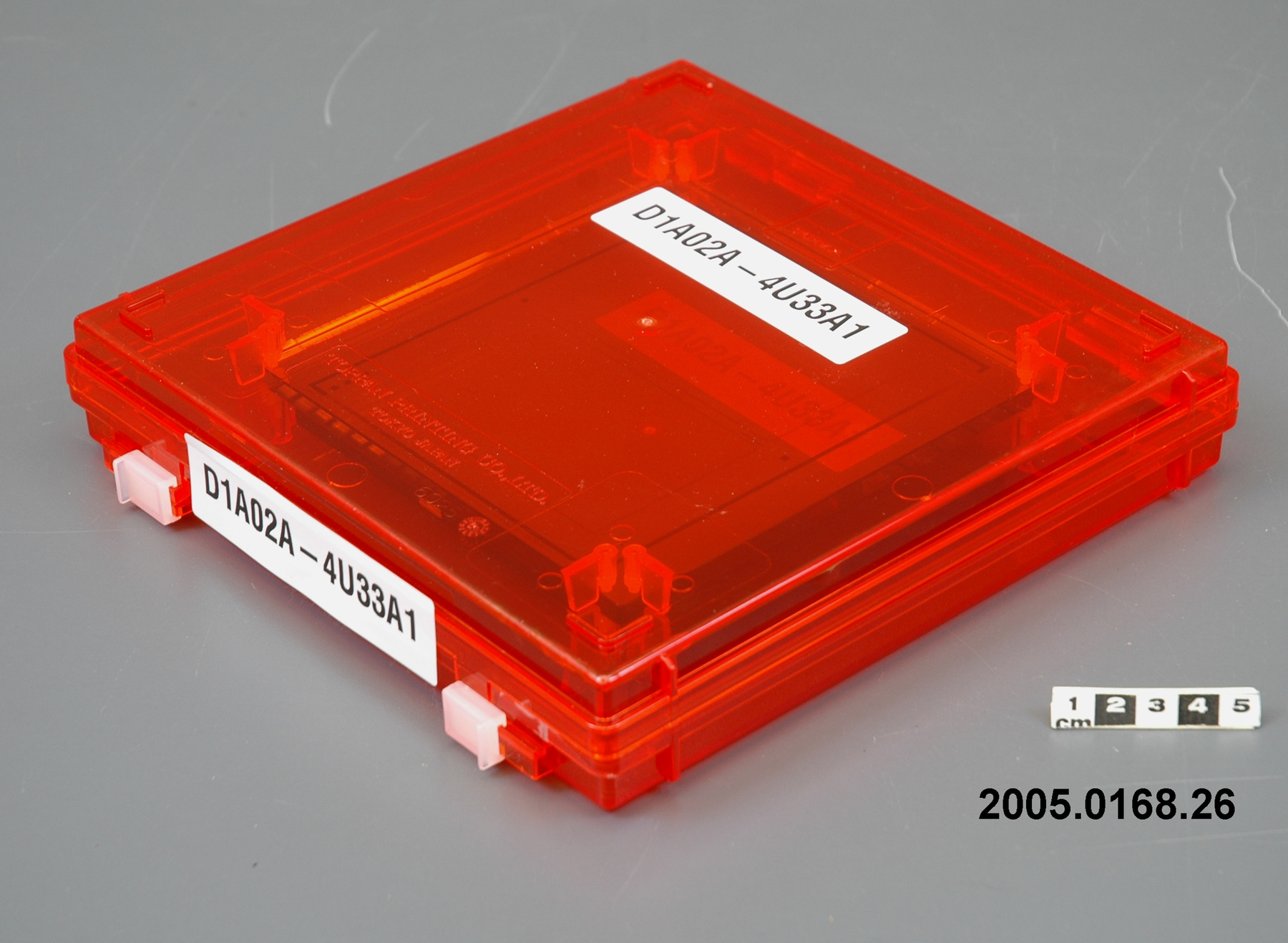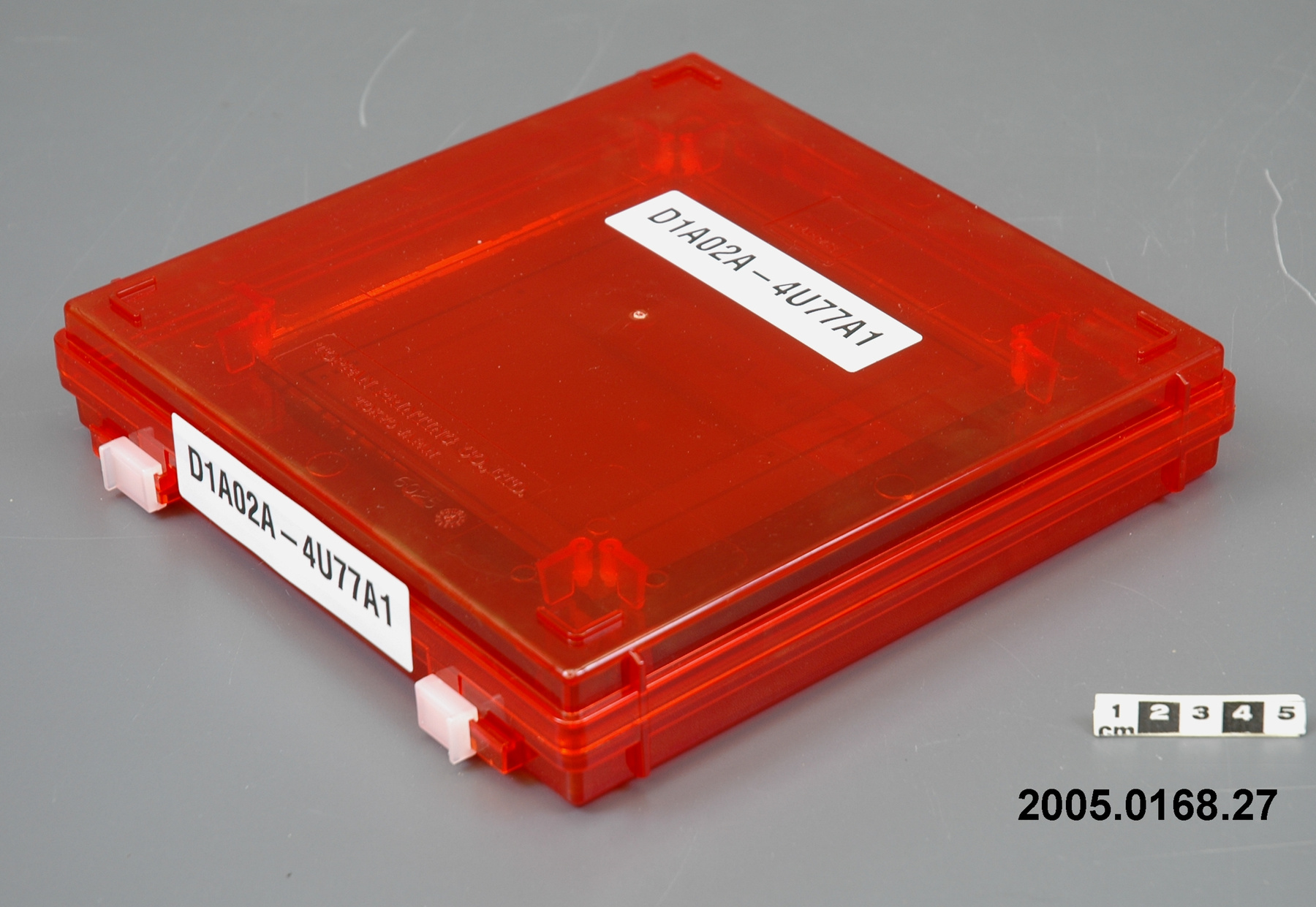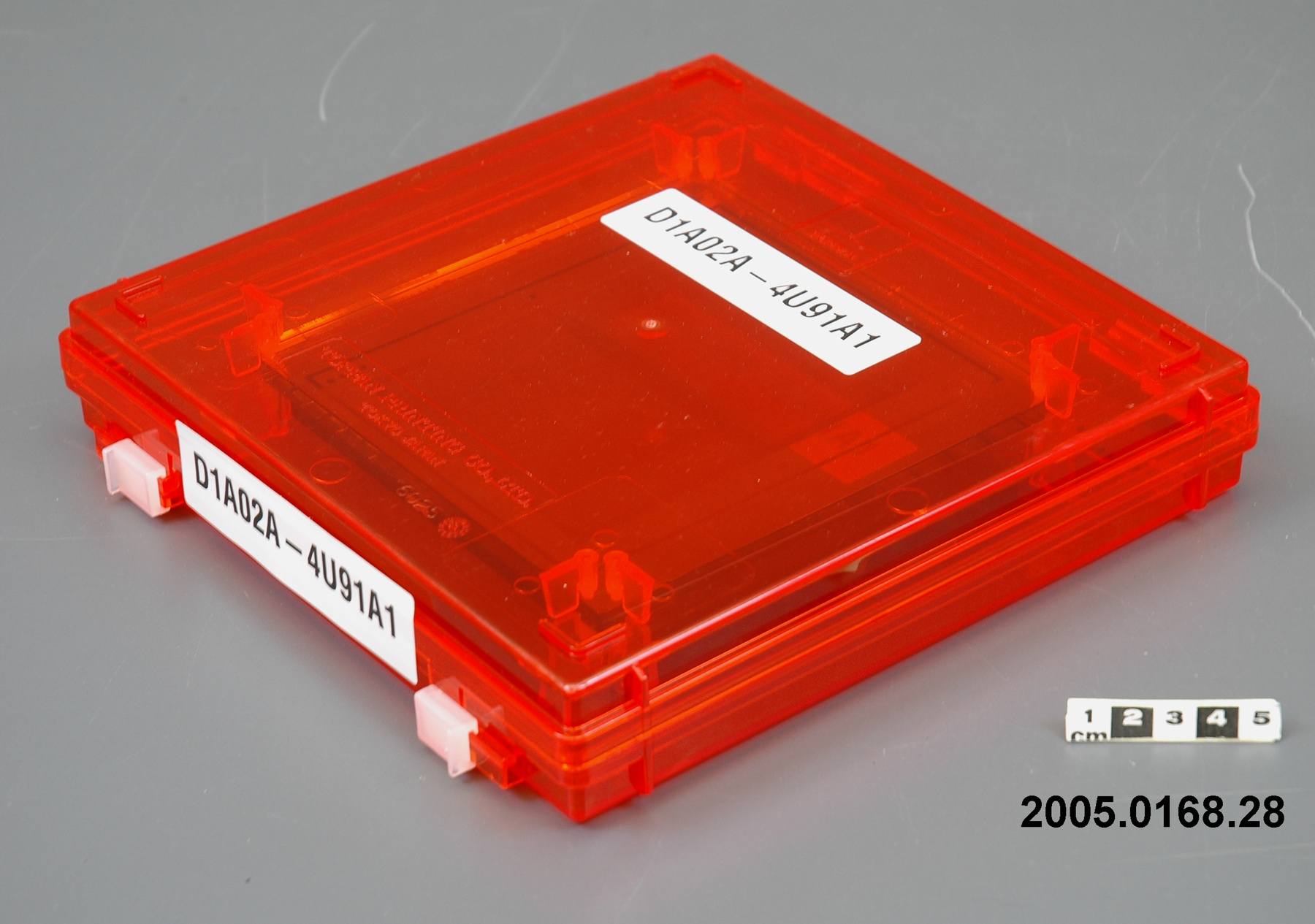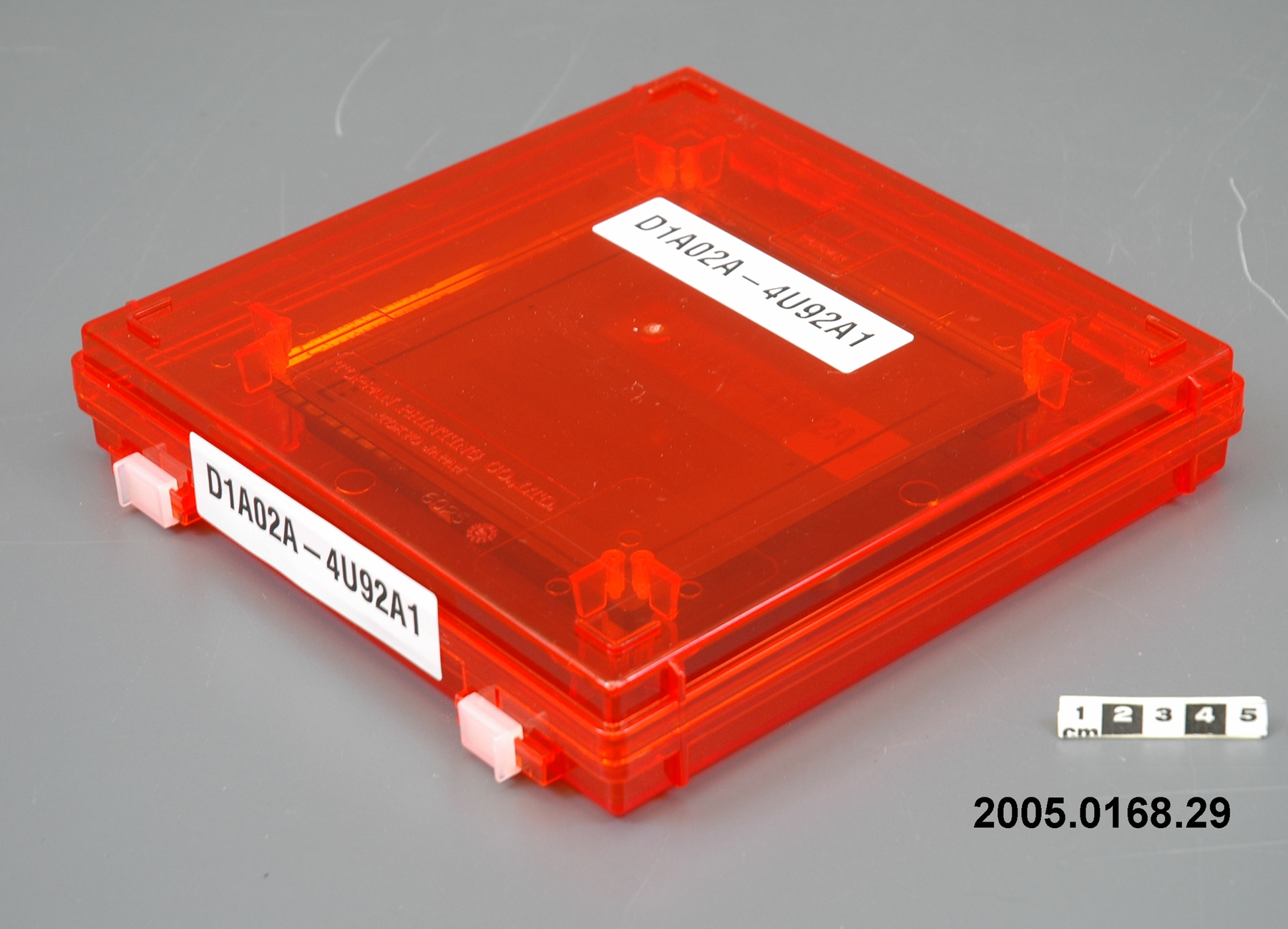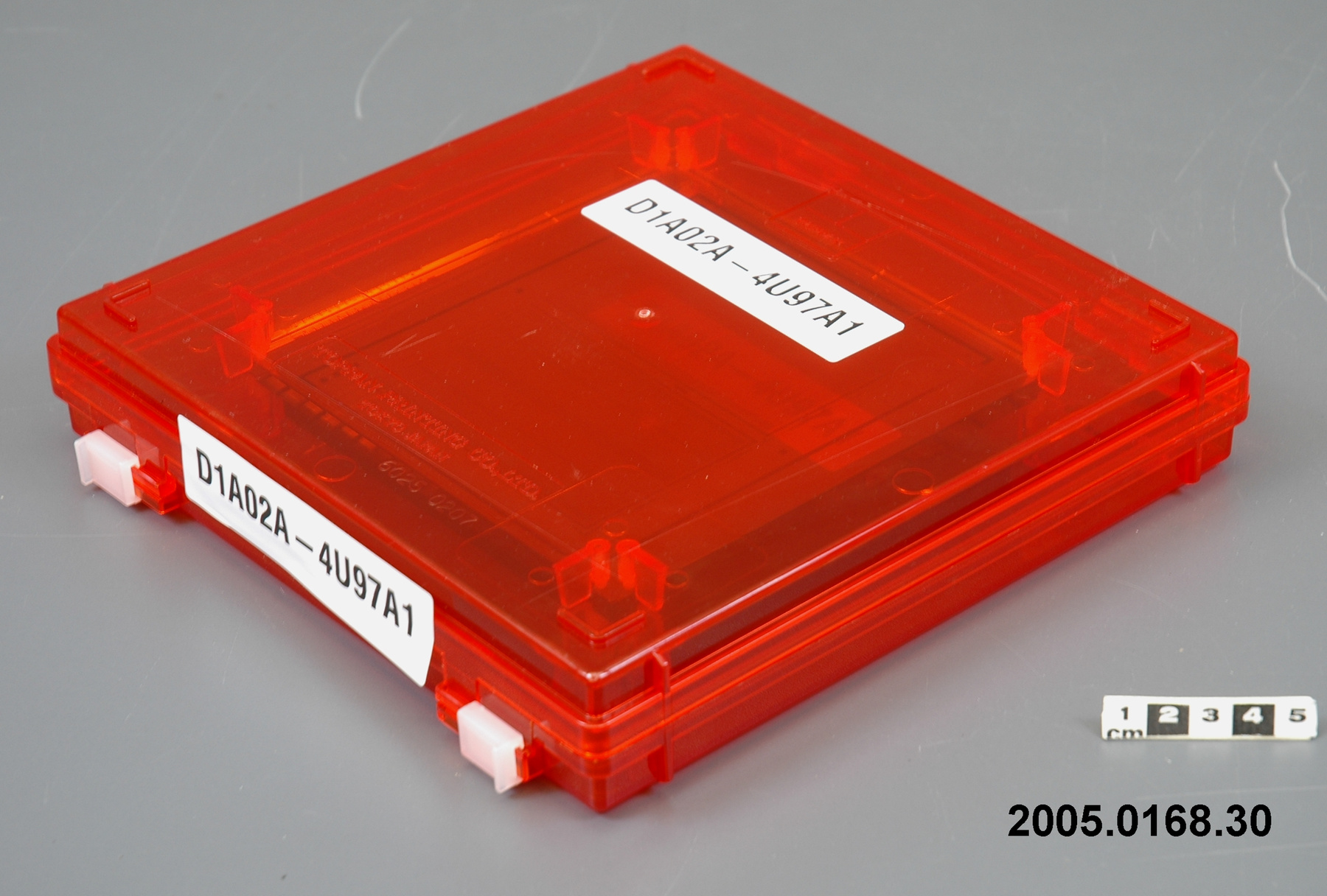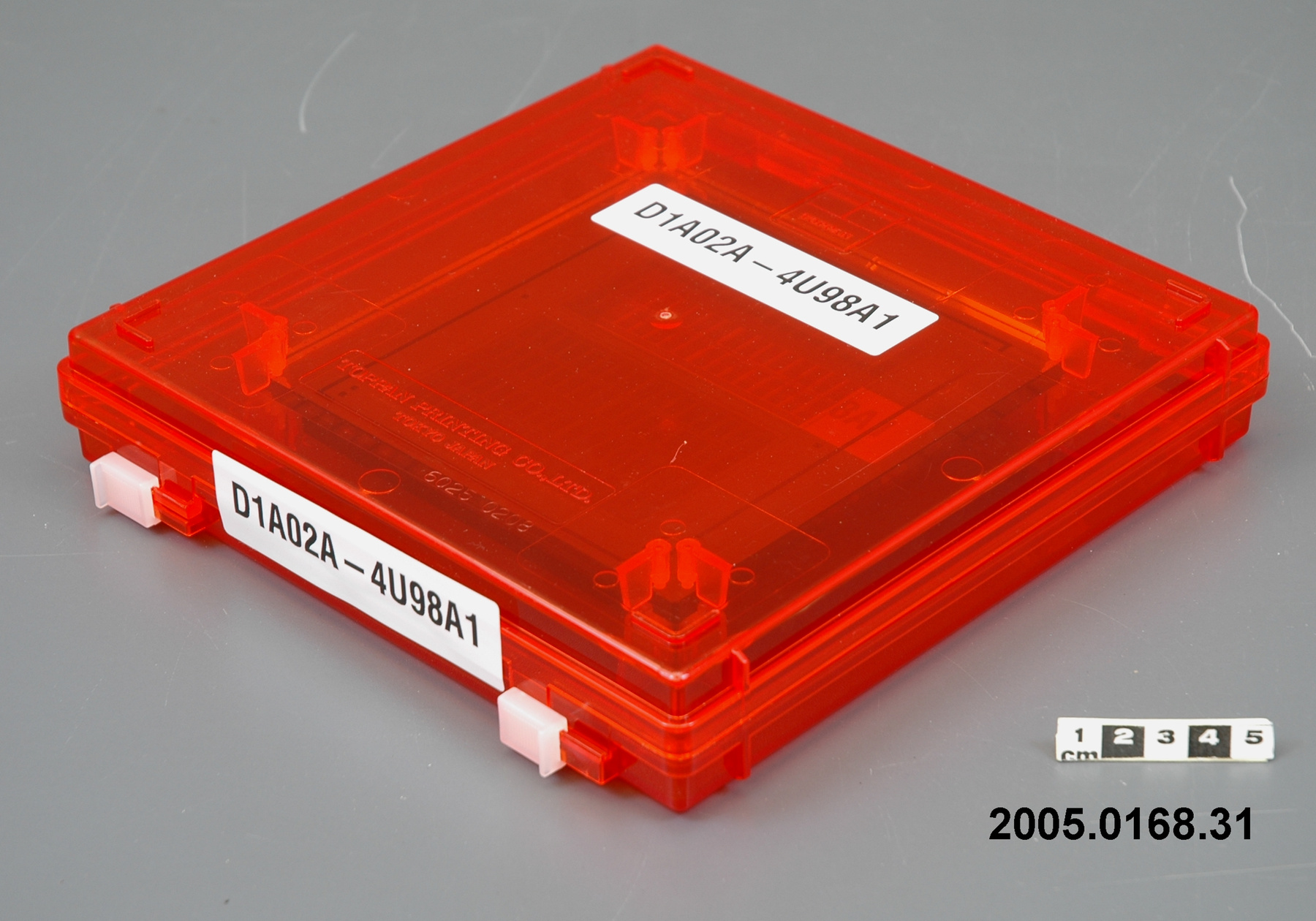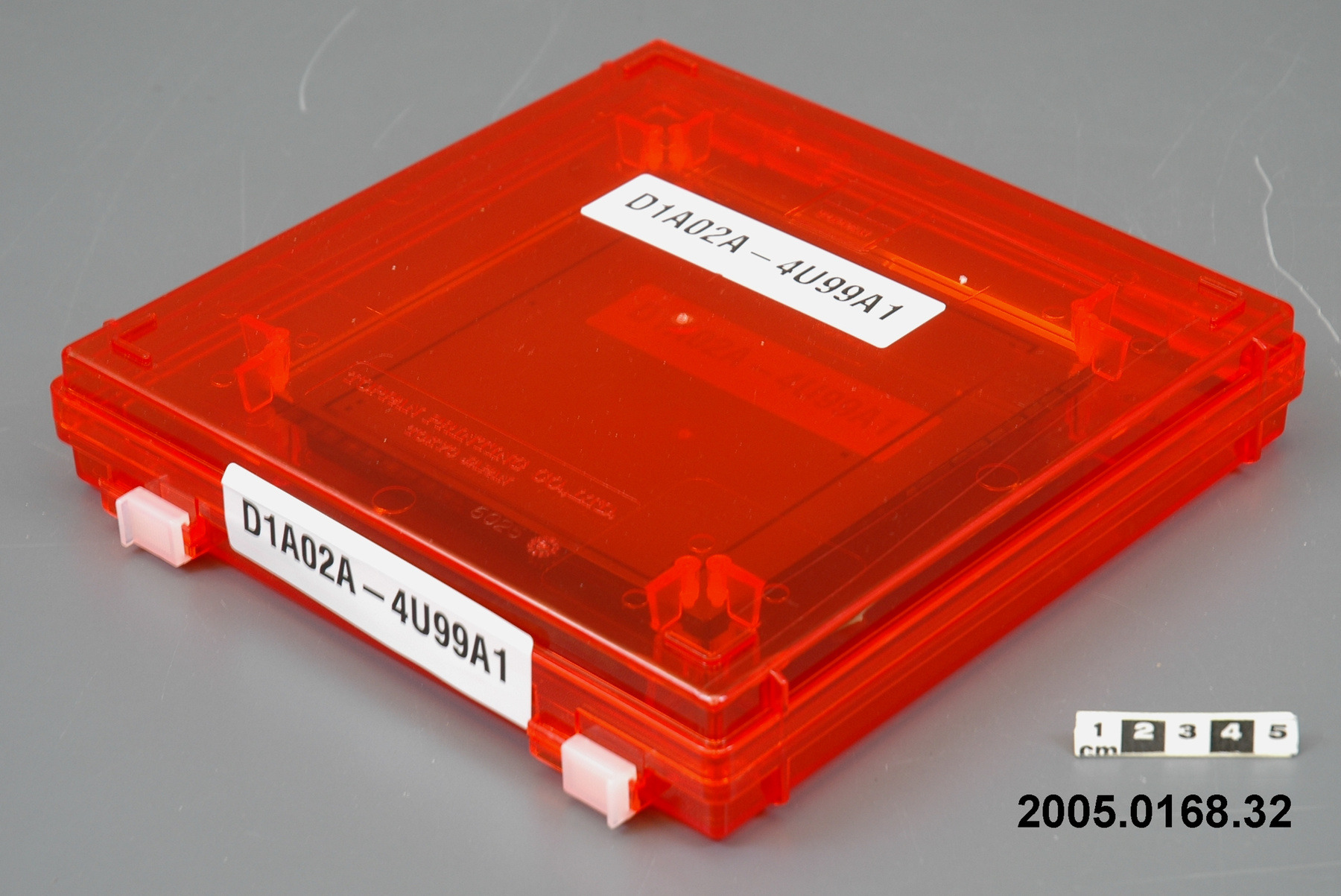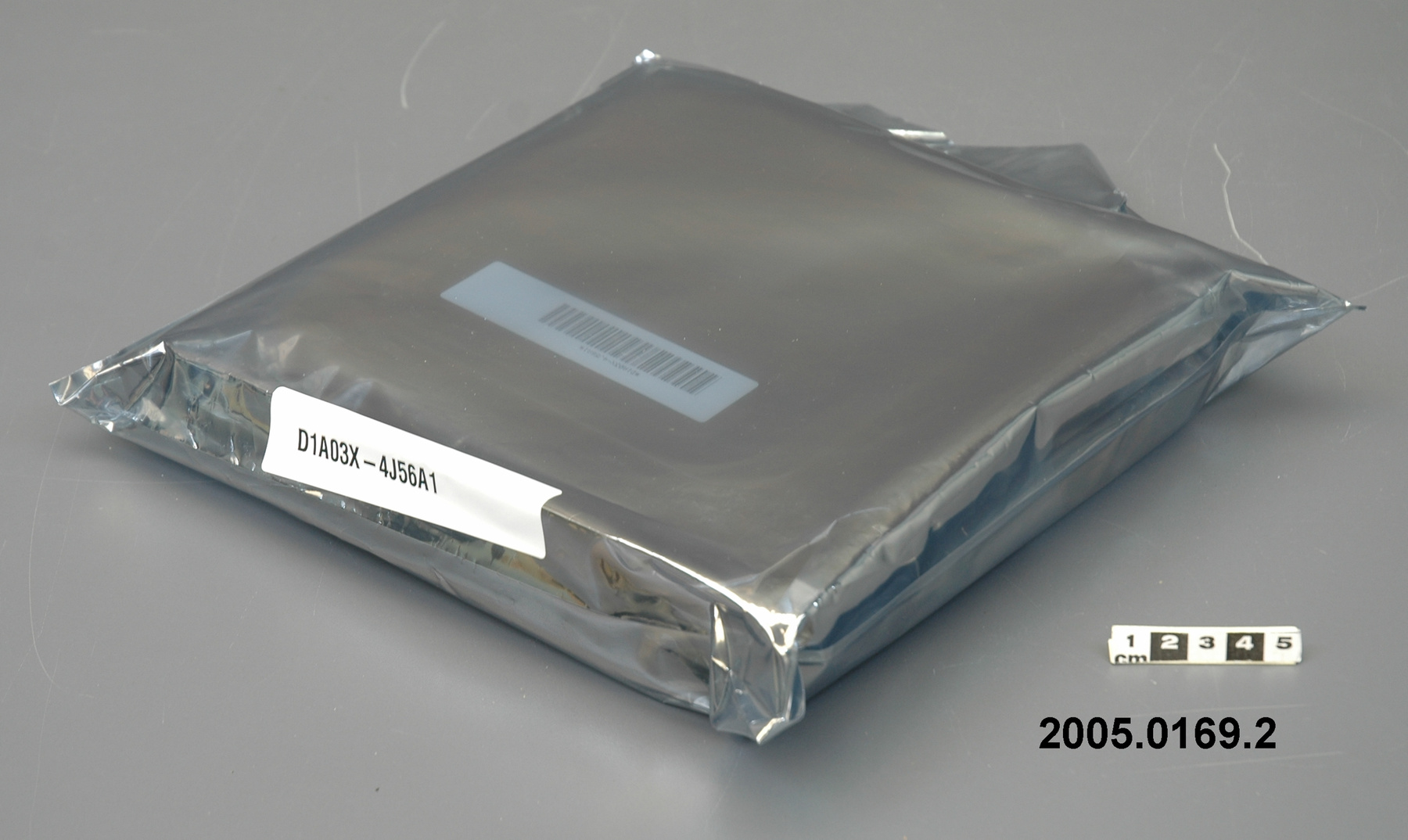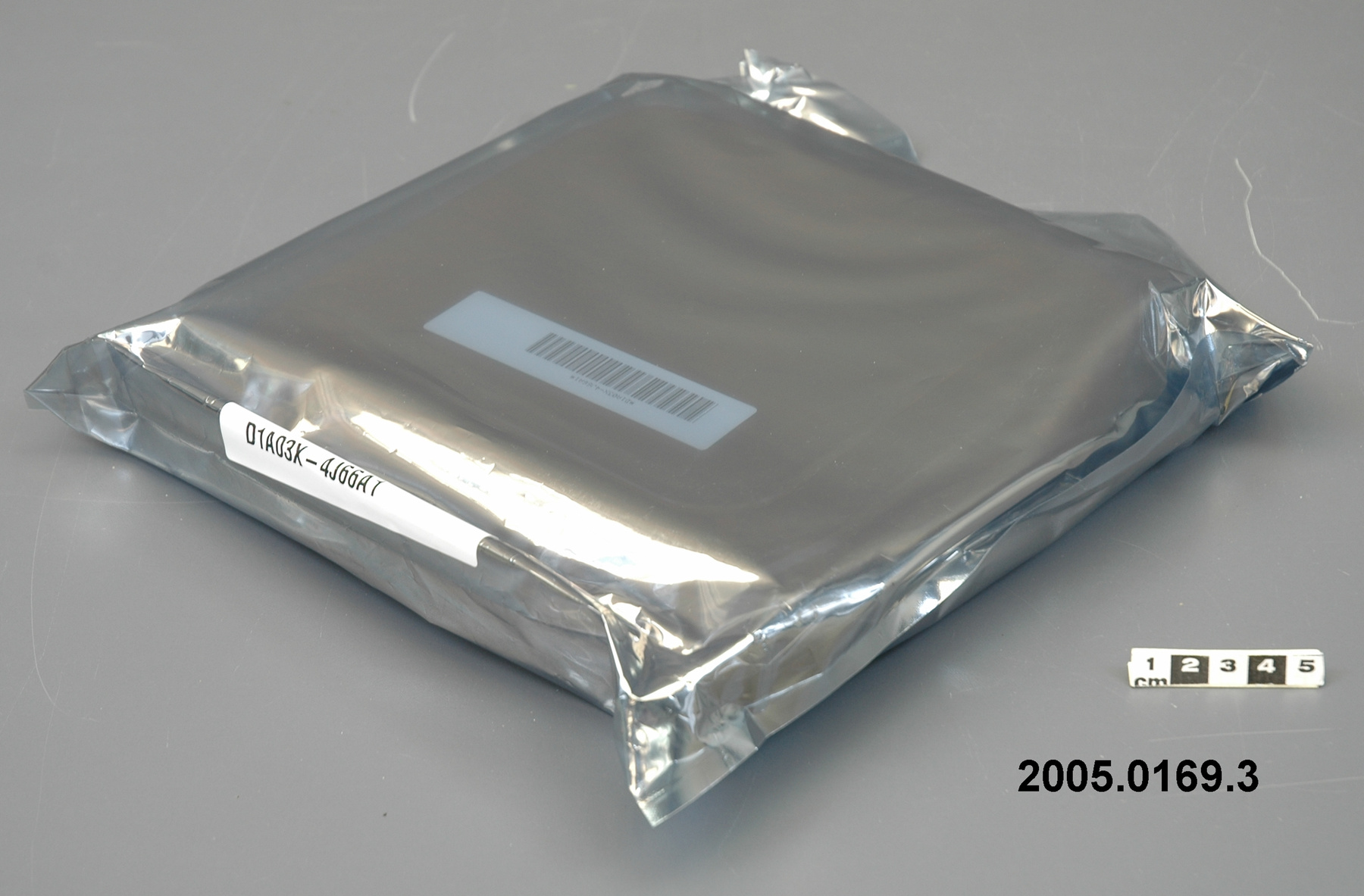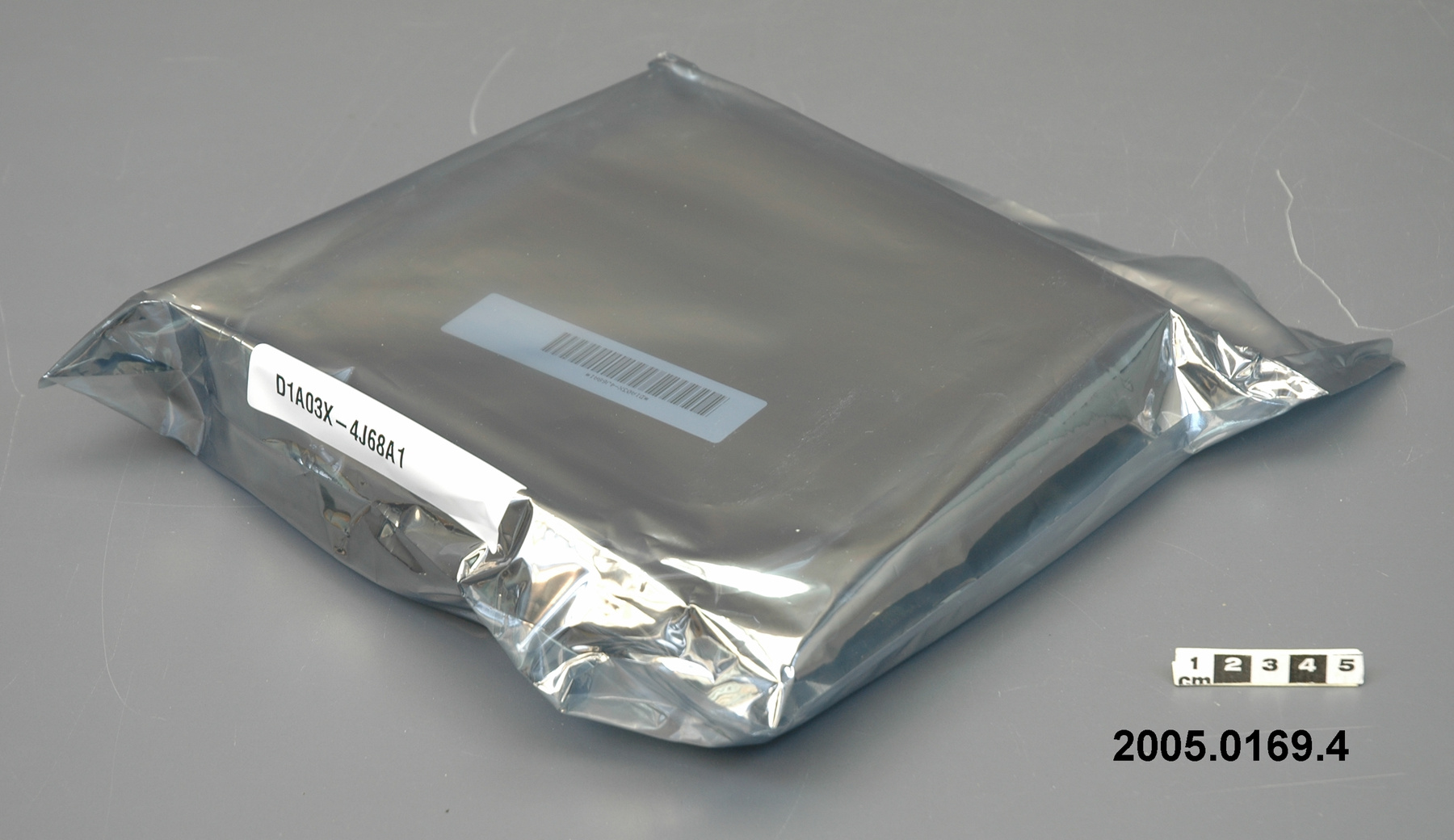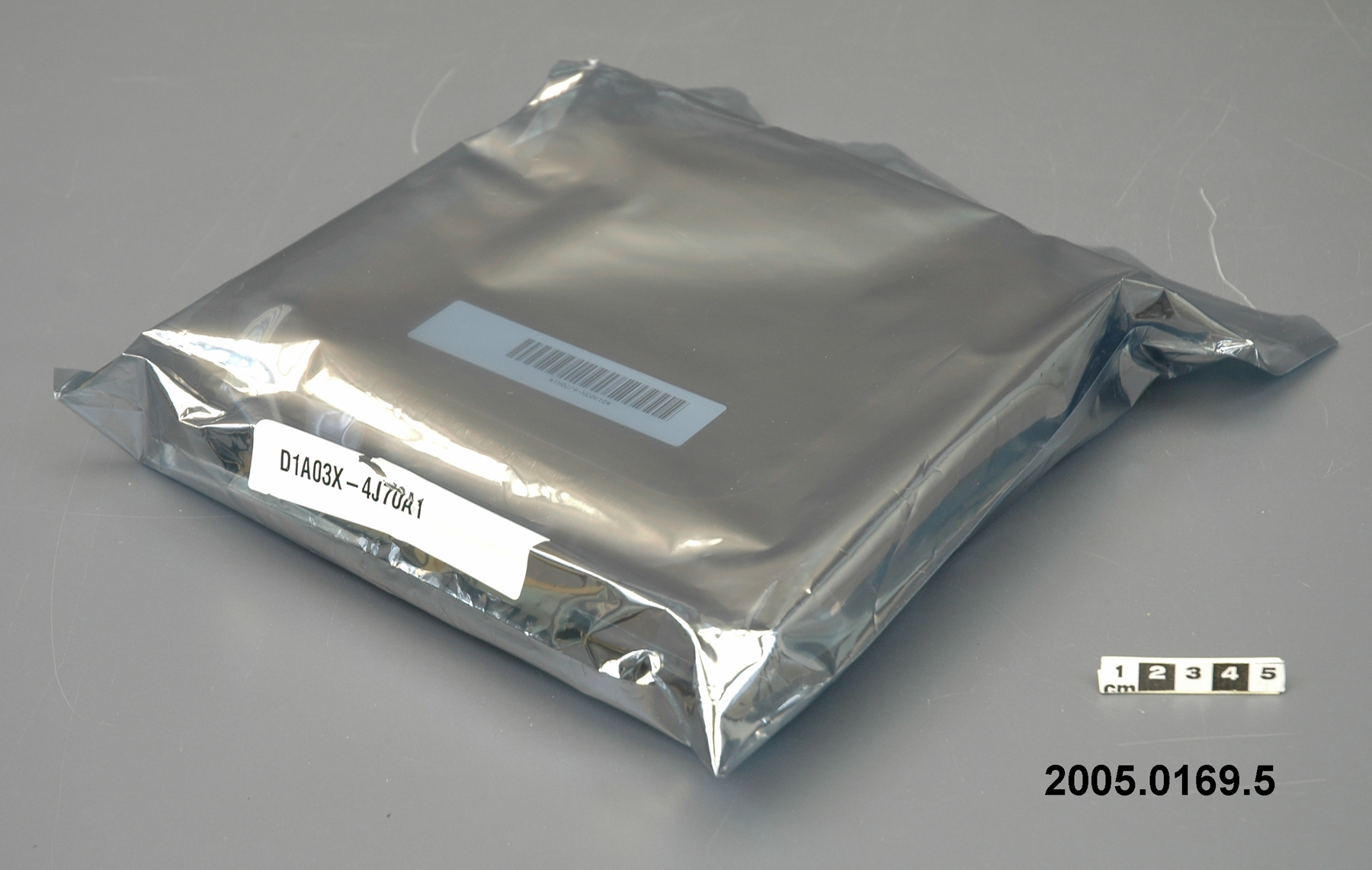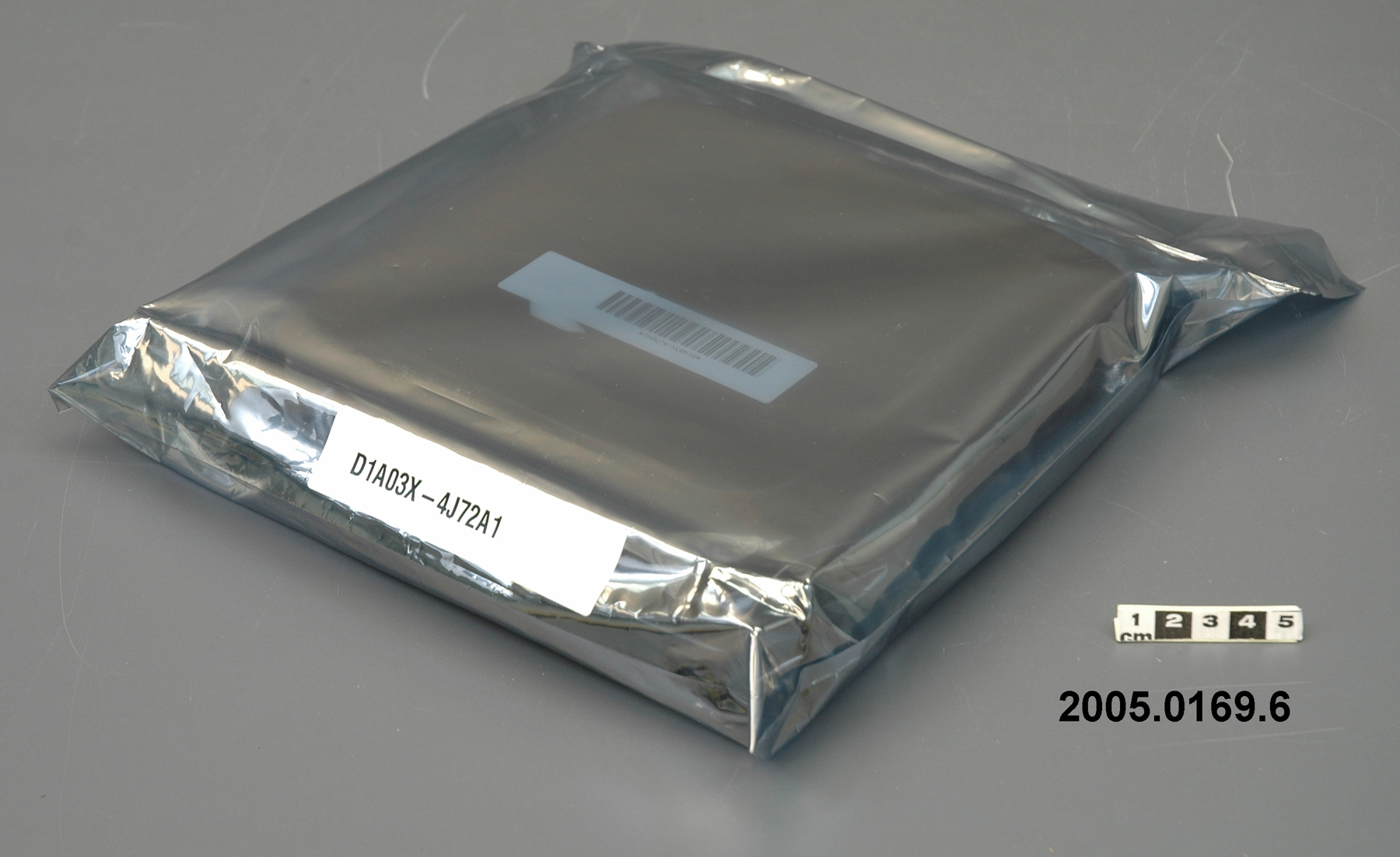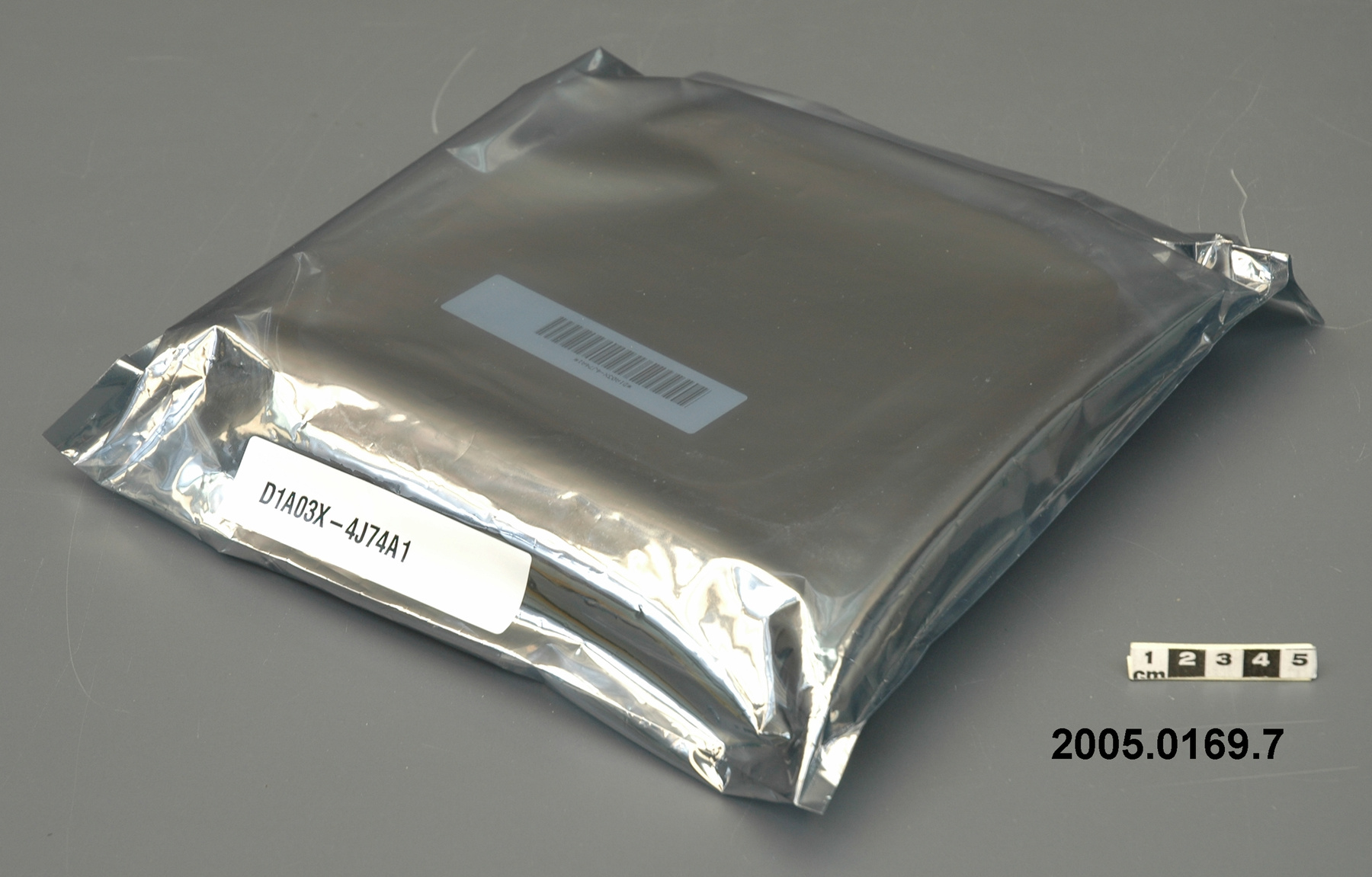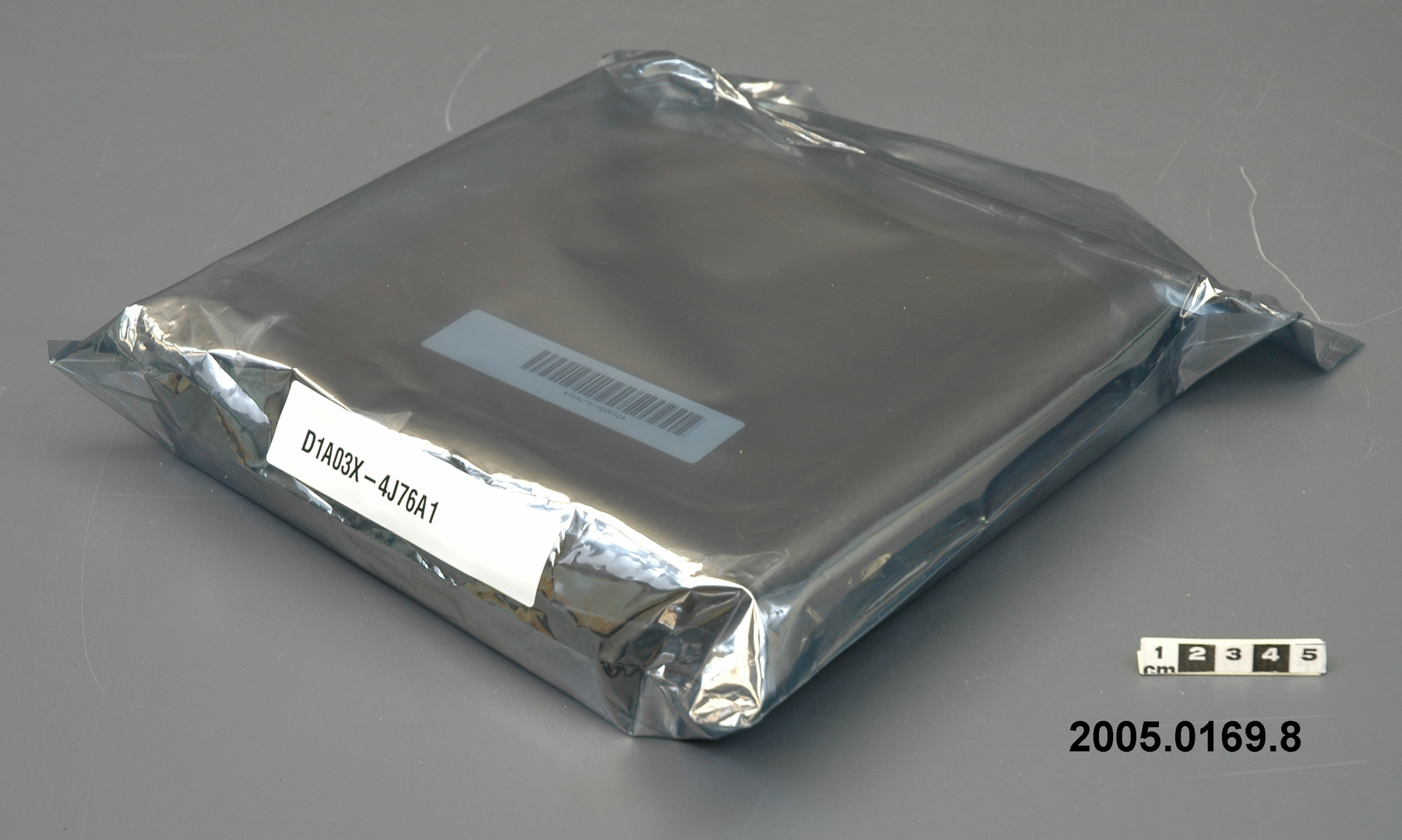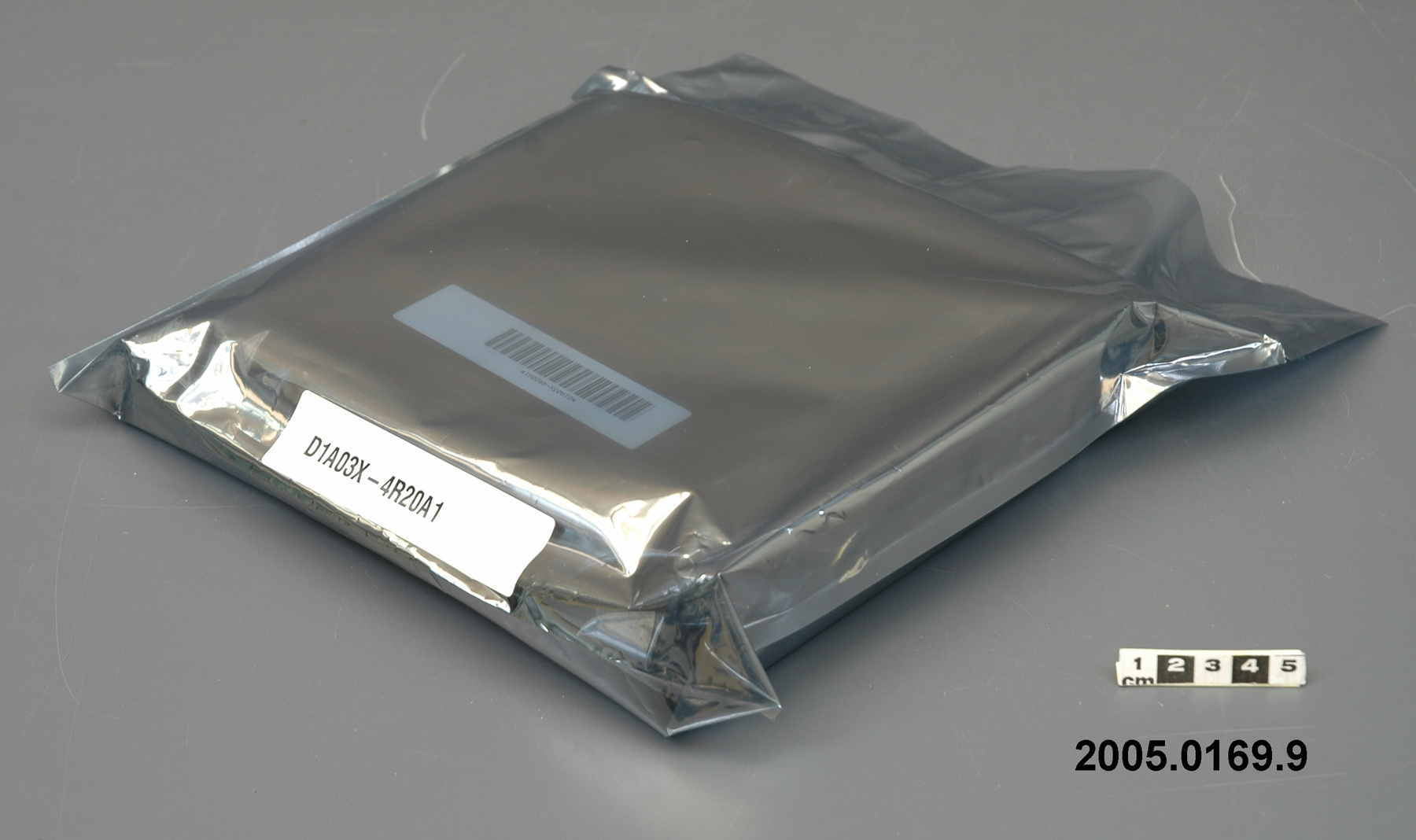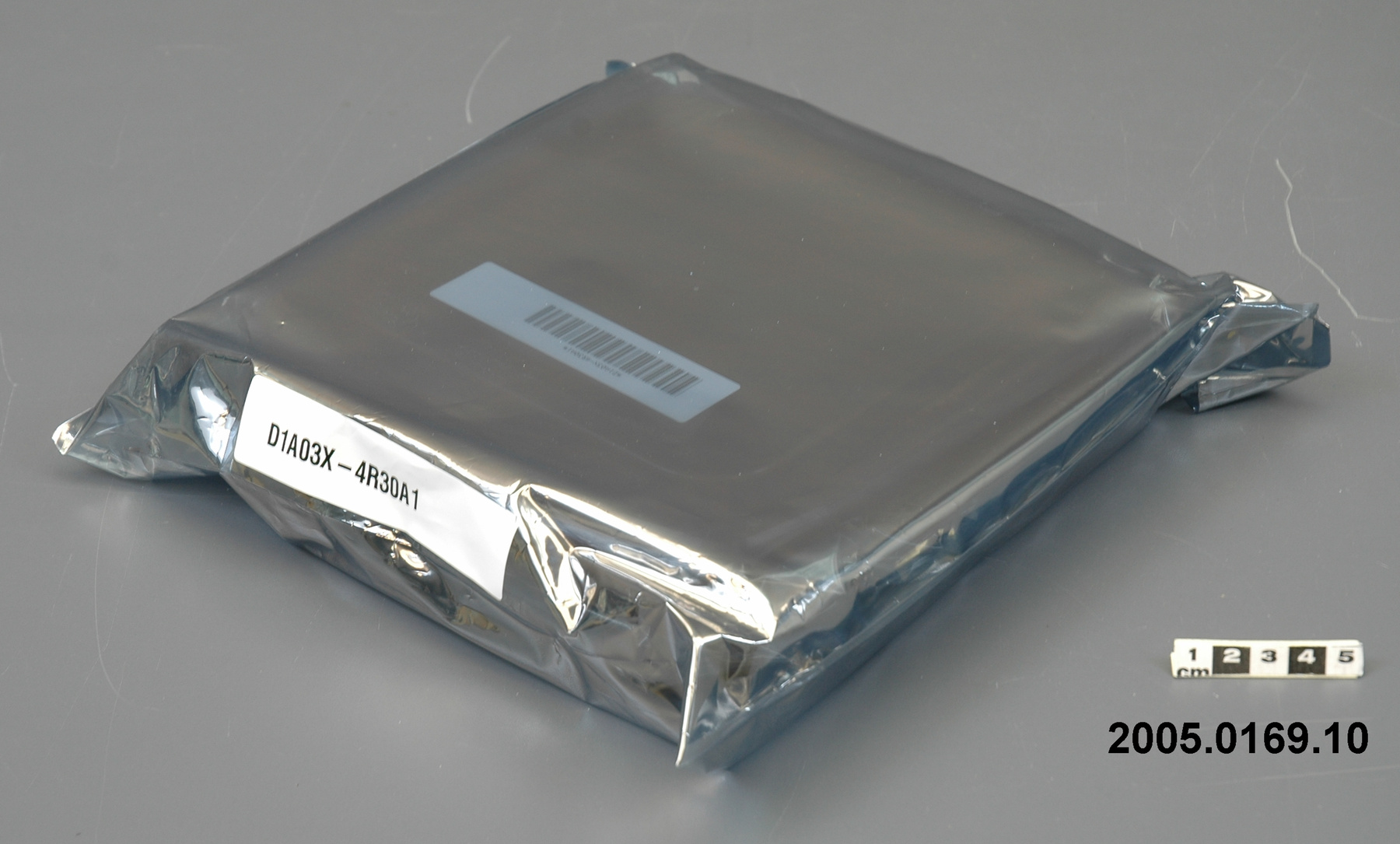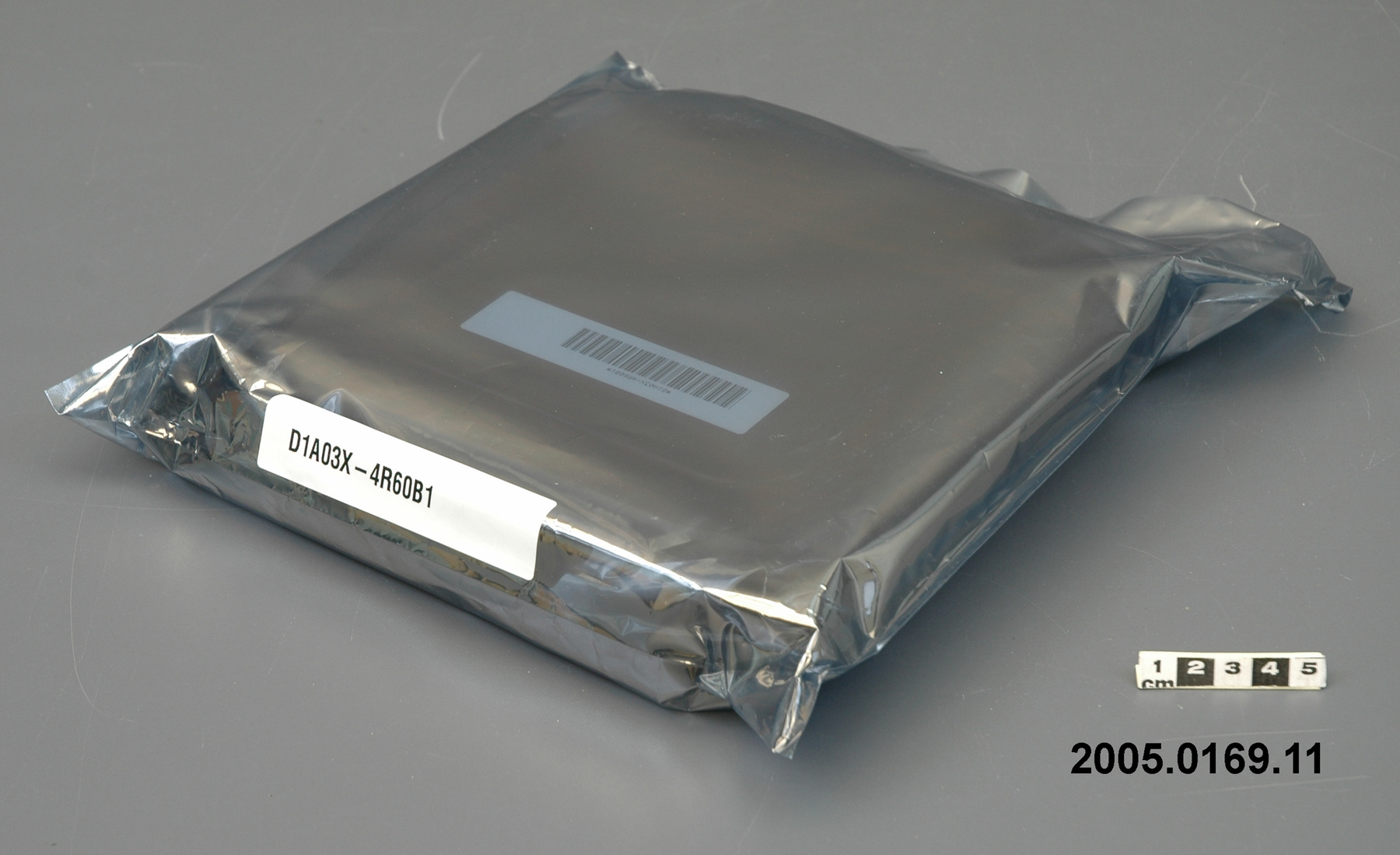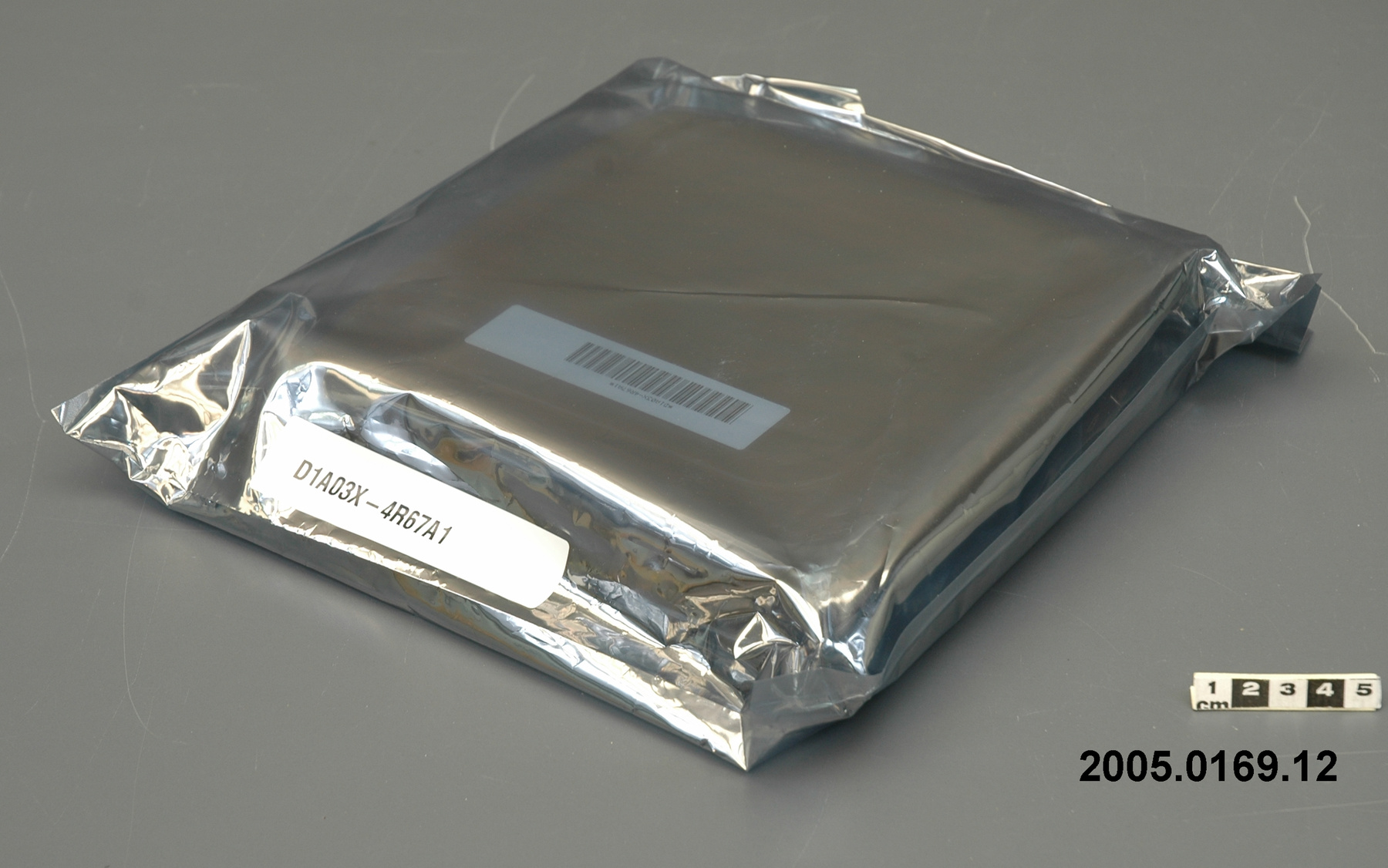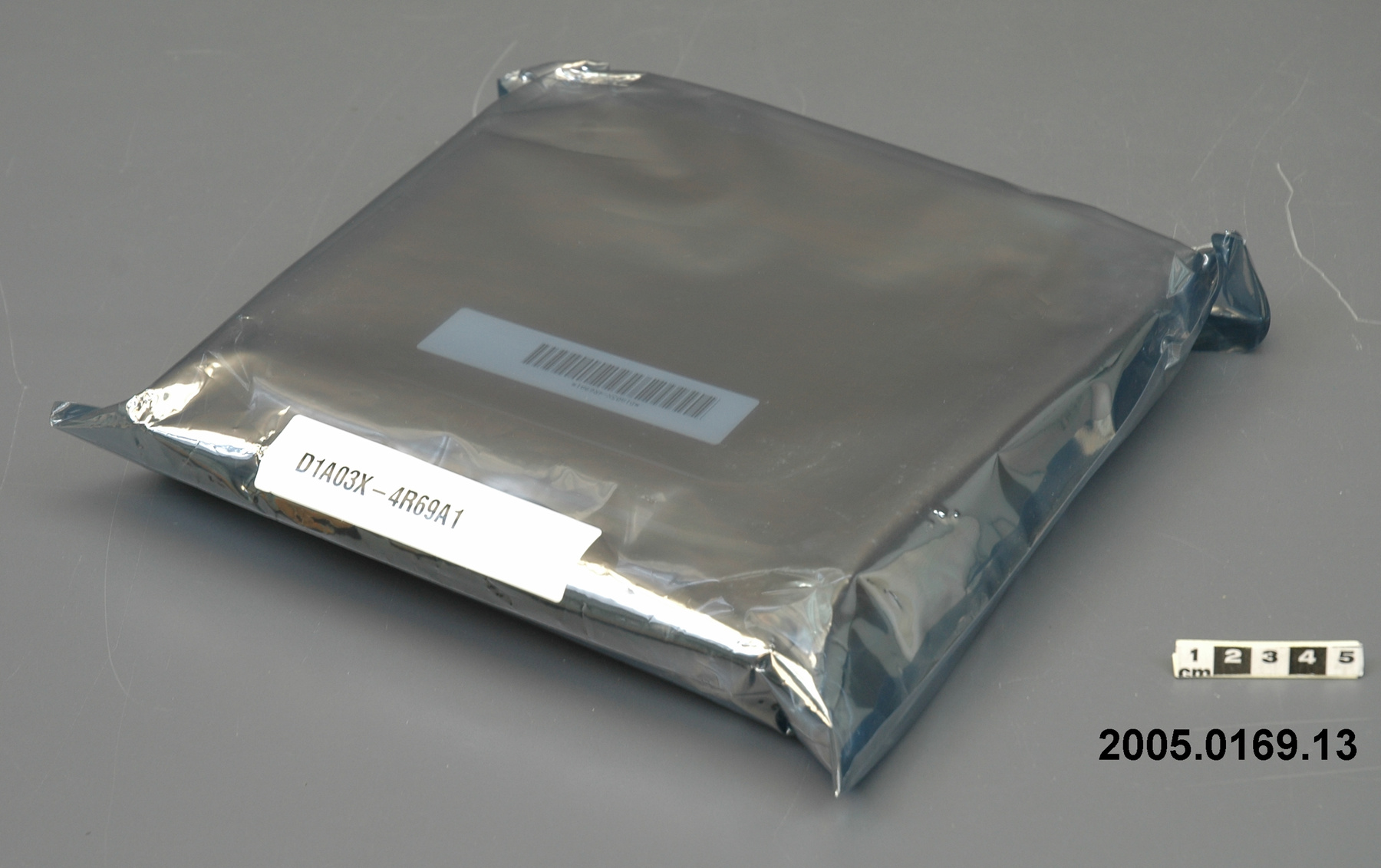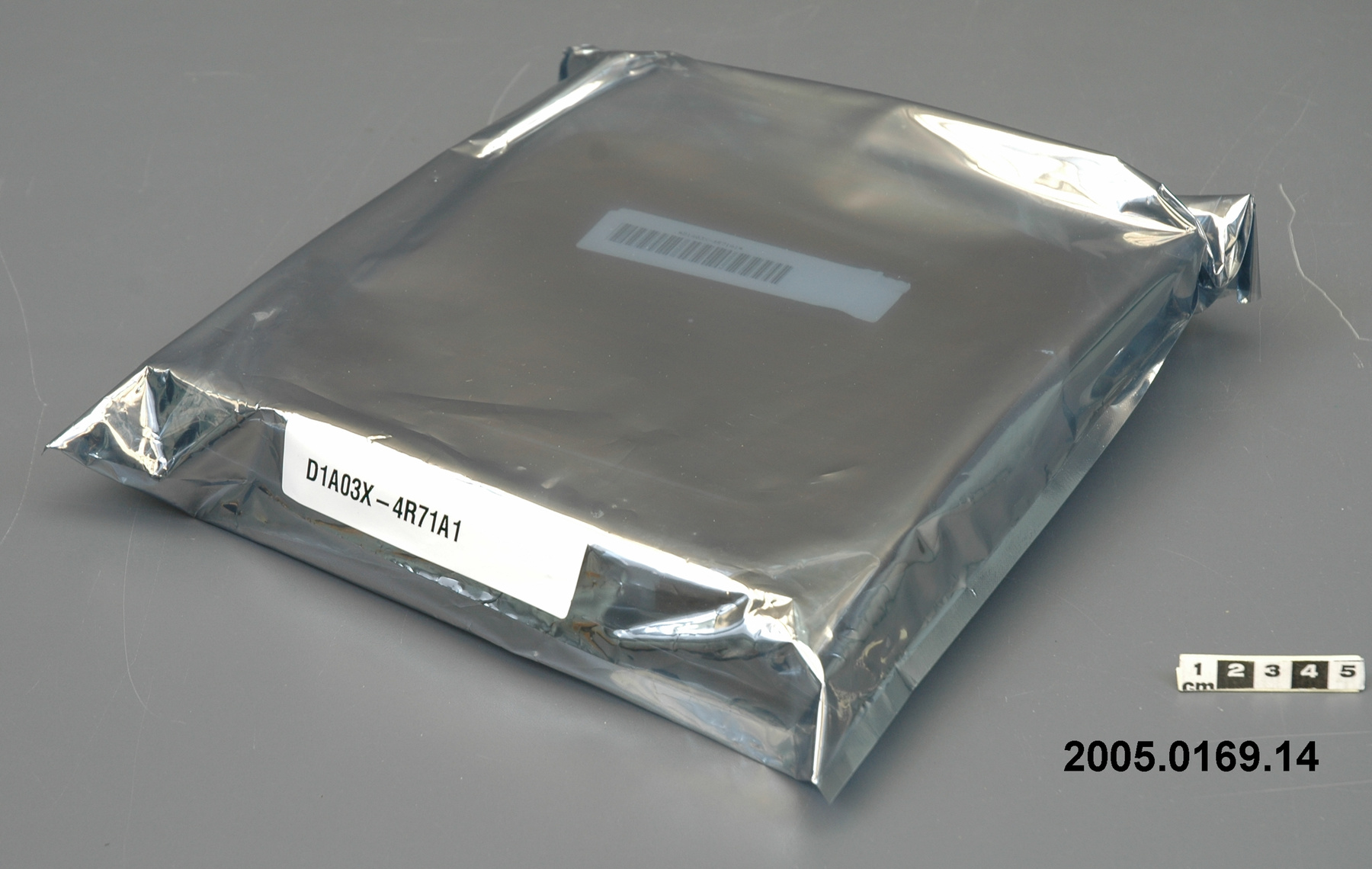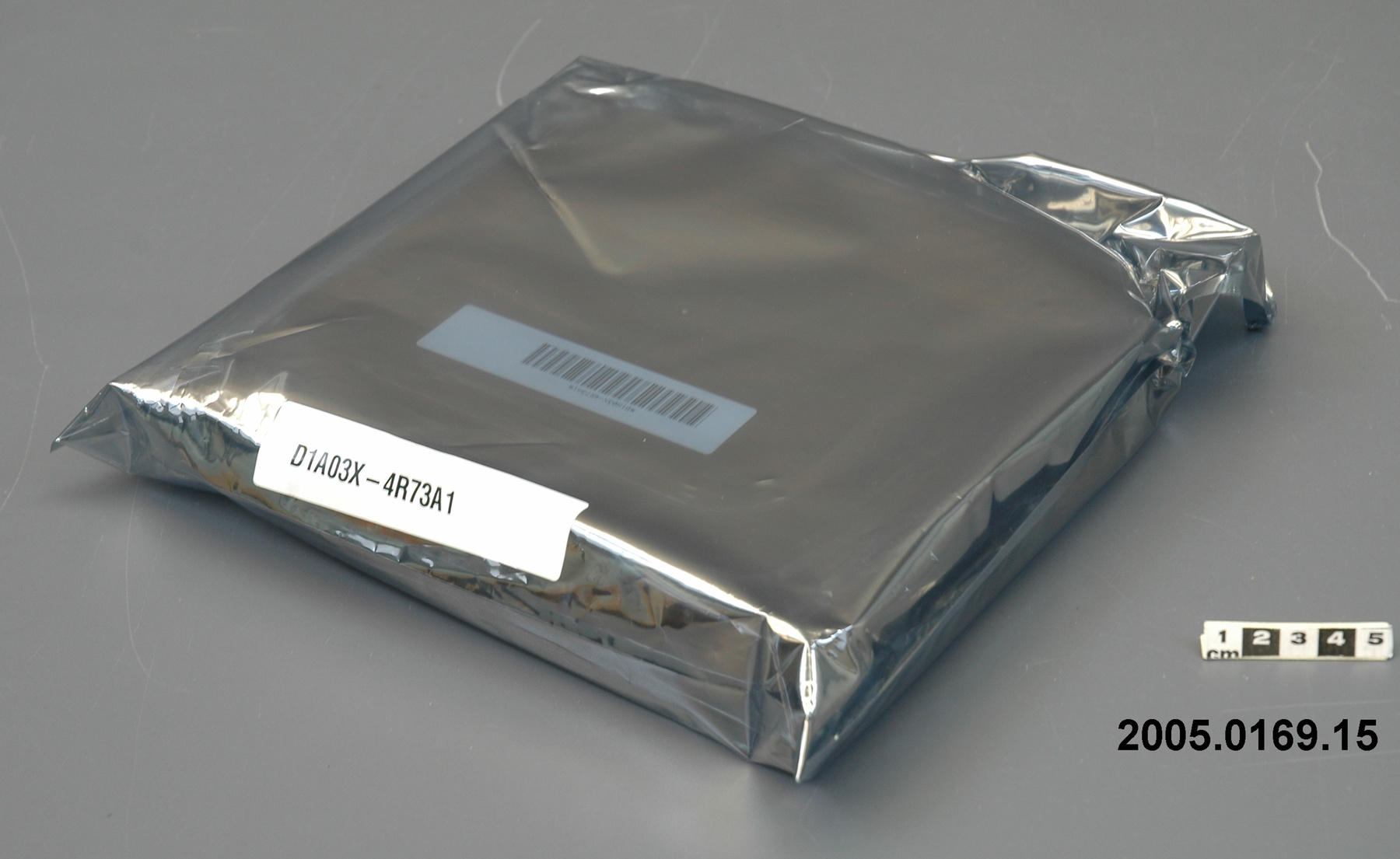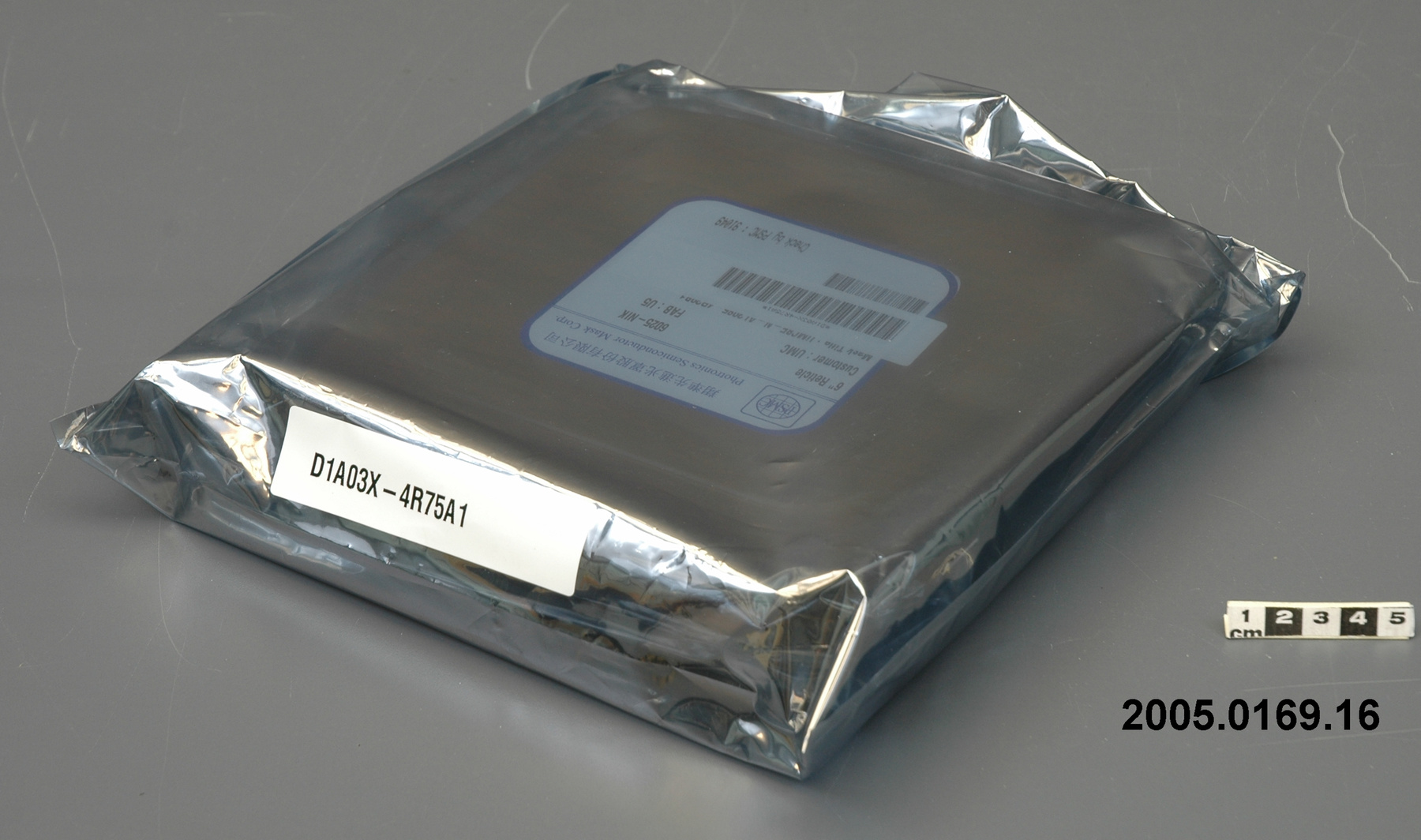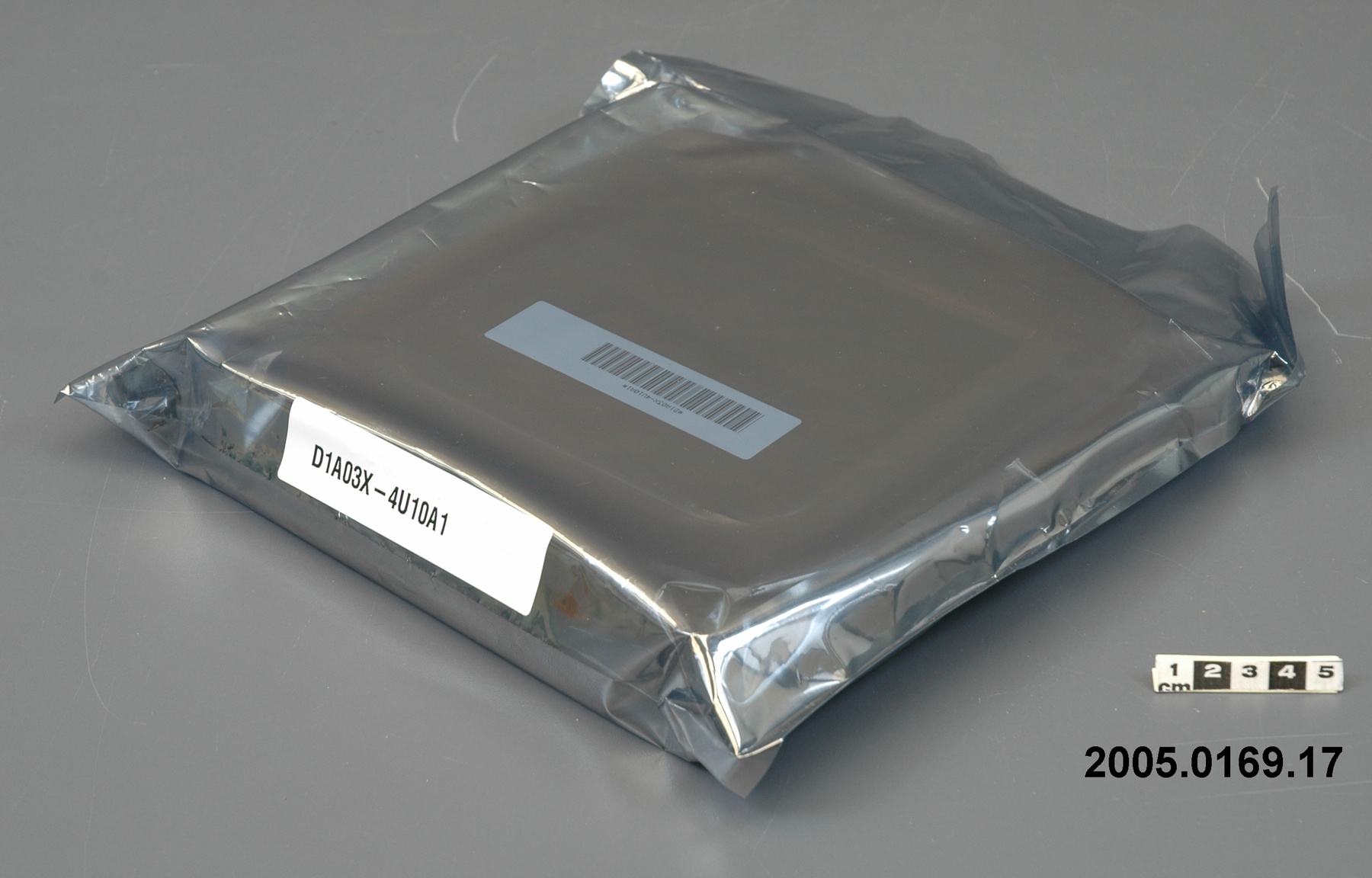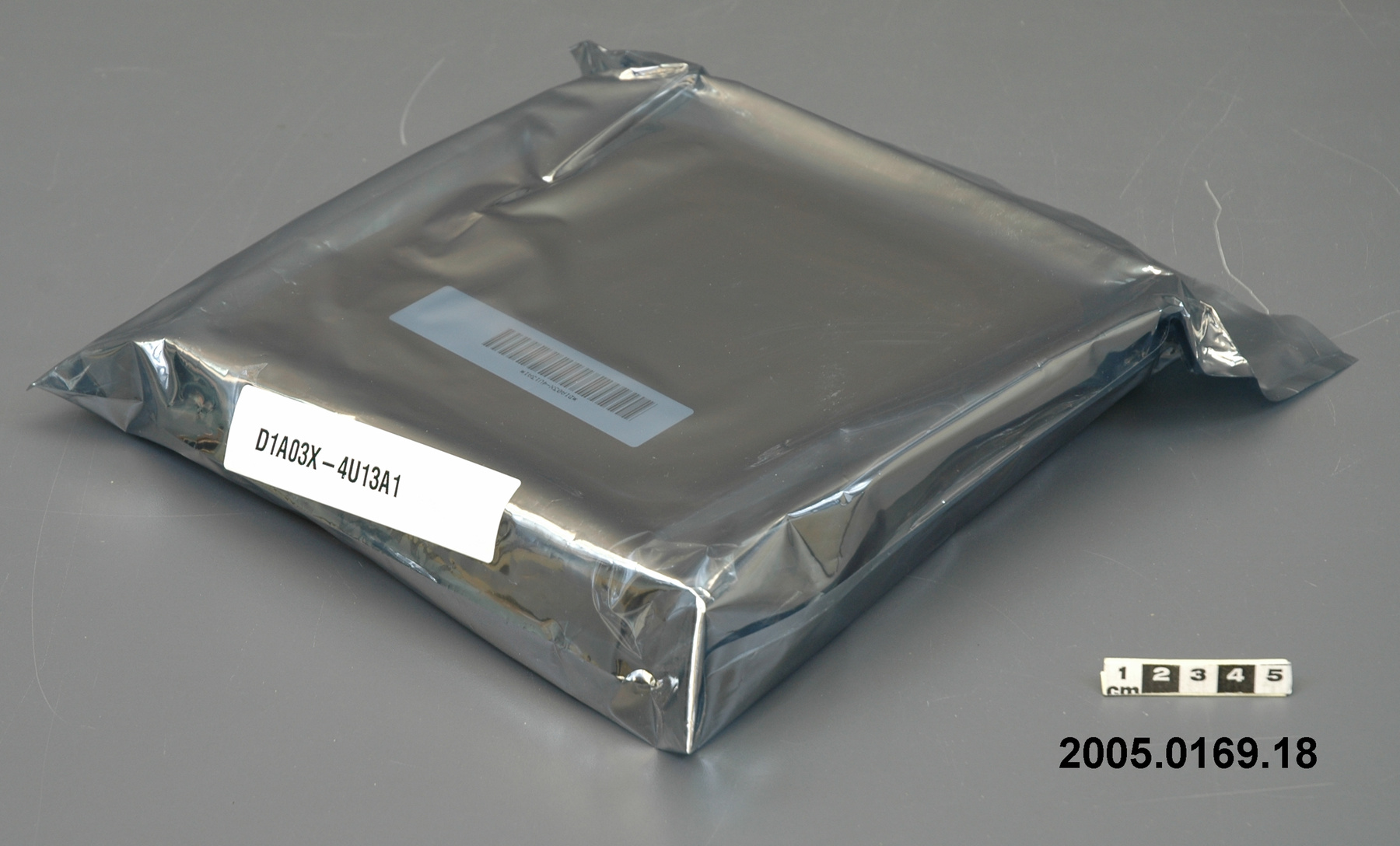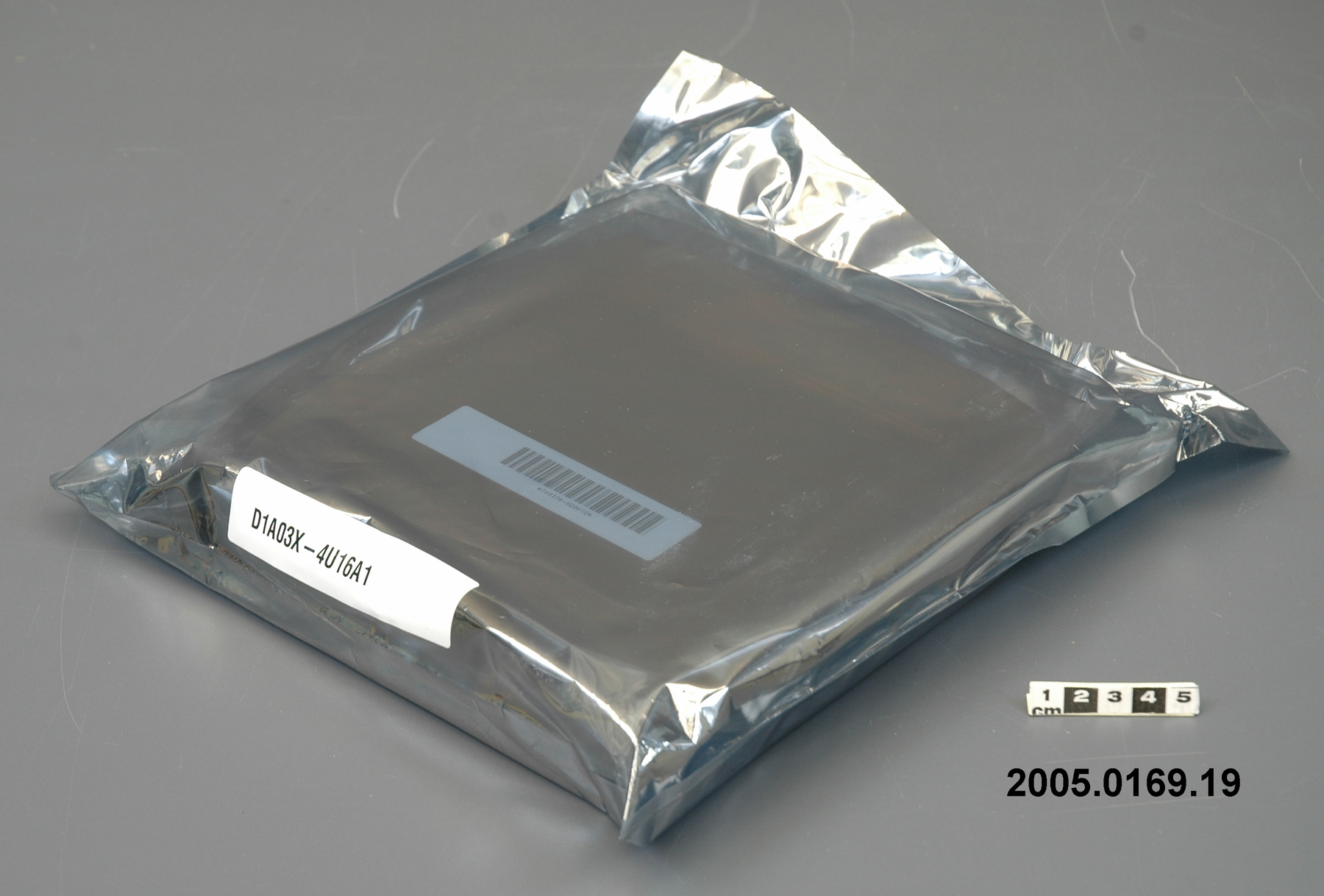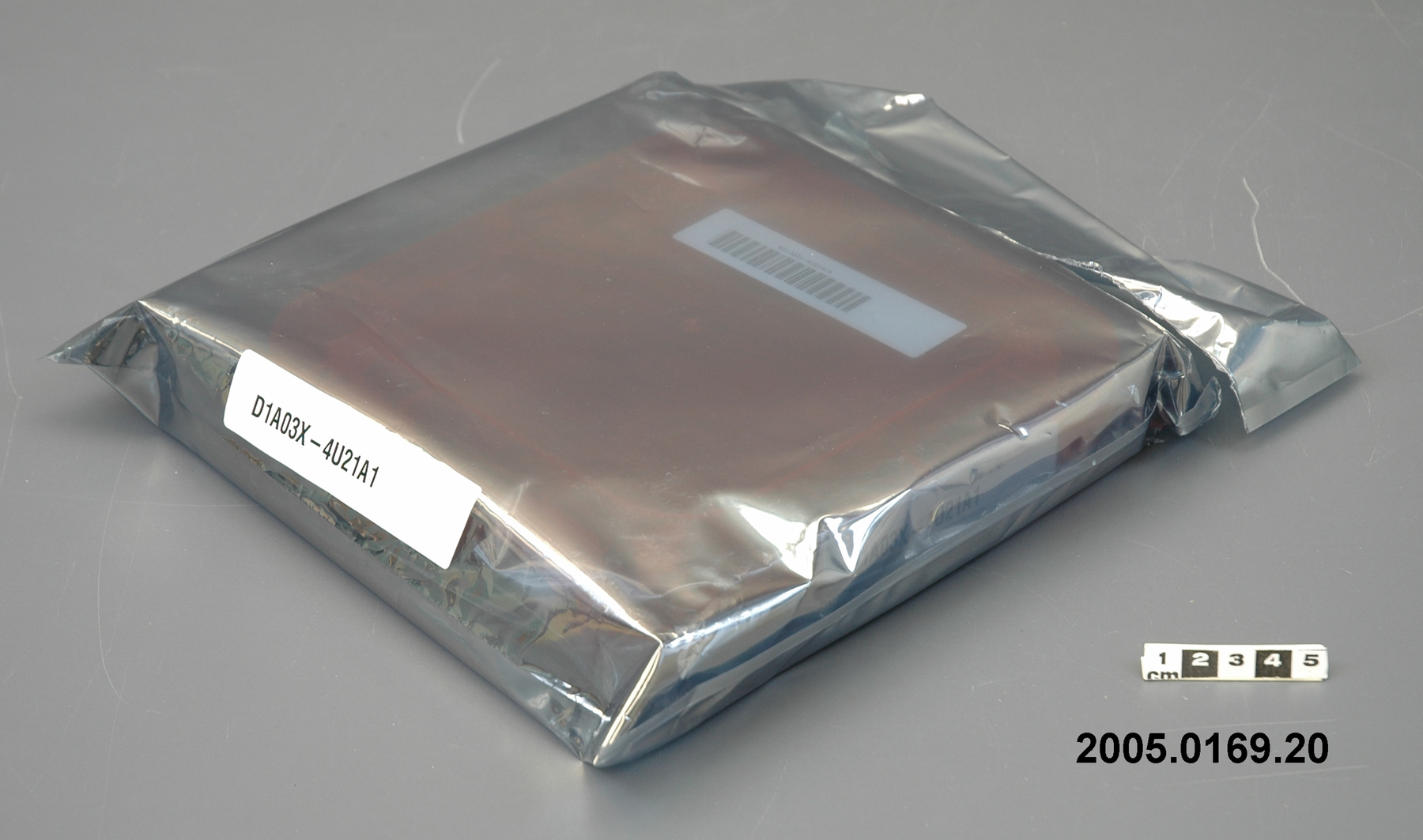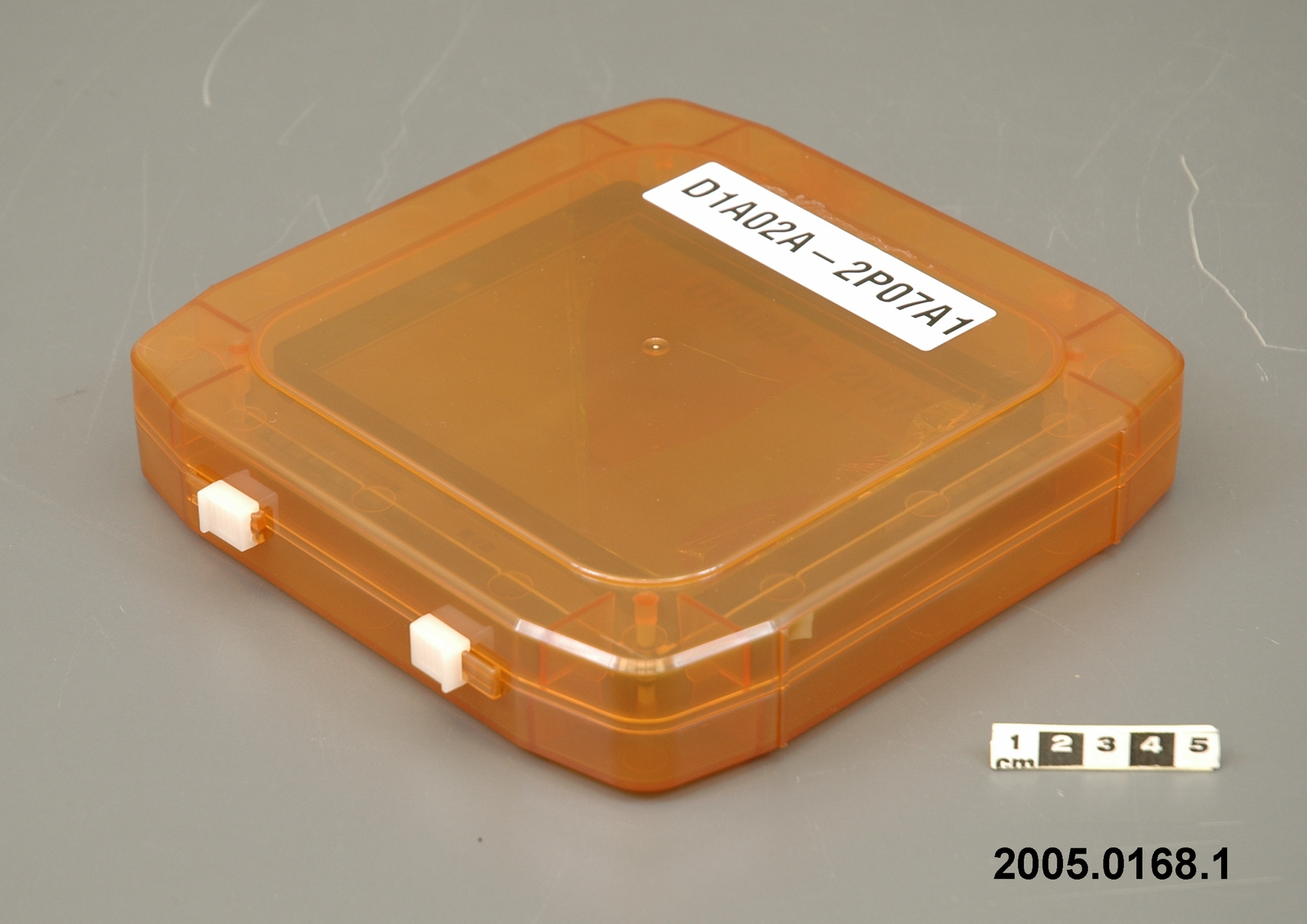Mask set, integrated circuit
Use this image
Can I reuse this image without permission? Yes
Object images on the Ingenium Collection’s portal have the following Creative Commons license:
Copyright Ingenium / CC BY-NC-ND (Attribution-NonCommercial 4.0 International (CC BY-NC 4.0)
ATTRIBUTE THIS IMAGE
Ingenium,
2005.0168.001
Permalink:
Ingenium is releasing this image under the Creative Commons licensing framework, and encourages downloading and reuse for non-commercial purposes. Please acknowledge Ingenium and cite the artifact number.
DOWNLOAD IMAGEPURCHASE THIS IMAGE
This image is free for non-commercial use.
For commercial use, please consult our Reproduction Fees and contact us to purchase the image.
- OBJECT TYPE
- TCAM
- DATE
- 2000–2005
- ARTIFACT NUMBER
- 2005.0168.001
- MANUFACTURER
- United Microelectronics Corp.
- MODEL
- SCT9000A/ULTRA8MR00
- LOCATION
- Taiwan
More Information
General Information
- Serial #
- D1A02A-2P07A1
- Part Number
- 1
- Total Parts
- 32
- AKA
- N/A
- Patents
- N/A
- General Description
- Synthetic casing/ Synthetic board with metallic? finish/ Paper labels
Dimensions
Note: These reflect the general size for storage and are not necessarily representative of the object's true dimensions.
- Length
- 22.0 cm
- Width
- 20.0 cm
- Height
- N/A
- Thickness
- 3.7 cm
- Weight
- N/A
- Diameter
- N/A
- Volume
- N/A
Lexicon
- Group
- Computing Technology
- Category
- Development & maintenance equipment
- Sub-Category
- N/A
Manufacturer
- AKA
- United Microelectronics
- Country
- Taiwan
- State/Province
- Unknown
- City
- Unknown
Context
- Country
- Canada
- State/Province
- Ontario
- Period
- circa 2000-2005
- Canada
-
Part of a collection of equipment and samples from Canadian company Sibercore Technologies, which made integrated circuits for use by the backbone providers of the internet (e.g. Cisco, Fijitsu etc.), specifically TCAMS (The lot contains sets of masks (32 and 30 per set) for their 40 mm and 27 mm products as well as test equipment and samples from the chip manufacturers in original packaging (one set unopened - and should not be). There is a complete set of CADD circuit drawings for the 27 mm chips as well as equipment used in the testing and burn-in of chips. A variety of promotional material has also been provided including a CD with a Power Point presentation used by the Marketing Group. Founded in 1998, SiberCore Technologies was a fabless semiconductor company based in Kanata, Ontario (with sales offices in Boston and Sacramento). The company developed a leading edge networking semiconductor memory based upon numerous Ternary Content Addressable Memory (TCAM) patents. It made ICs for use by the backbone providers of the Internet, e.g. Cisco, Fijitsu, etc. The company raised over $75 million of venture capital in four separate funding rounds between 1998 and 2002. The company secured designs at several top tier companies including Cisco, Lucent, Fujitsu, Tellabs, Hitachi, Marconi, Riverstone, Laurel Networks, and L-3. However, sales never reached above $10M per year as the post-bubble market for high end networking equipment failed to reach its forecasted potential. At its peak, the company employed 85 personnel, the bulk of them semiconductor design engineers at the company headquarters in Kanata, Ontario. The company began scaling back operations in 2003, and in 2004 announced that it would gradually wind-down operations. This wind down was completed in October 2005. As a "fabless" semiconductor company, SiberCore designed and sold its products, but manufacturing and test was performed by companies that specialize in those fields. The company's first prototype wafers were manufactured by Taiwan Semiconductor Manufacturing Company (TSMC) and the wafers for all other designs were produced by United Microelectronics Corporation (UMC). Final assembly and test of the semiconductors was performed by Advanced Semiconductor Engineering (ASE). All three of these companies are based in Taiwan. - Function
-
A mask is a representation of the layout of a layer of an integrated circuit and is made from the constructions plans for that circuit. A high energy UV-light is shone through the mask onto a silicon wafer which is a coated with photosensitive film, thus imprinting the areas of the wafer not covered by the mask. Additional layers of photosensitive material and different masks are used to build the circuit layer by layer, and metal coating is used to form the wires of the integrated circuit. - Technical
-
An example of a mask used in the manufacture of TCAMS (Ternary Content Addressable Memories (TCAMs) which are high speed specialized memory devices). The provided chips show the evolution from 0.25 micron to 0.18 and 0.15 micron based masks for production of ICs from 2000 to 2005. With 2, 4.5, 9 and 18M memories, the SiberCore chips were key components driving the Internet hubs at Gigabit speeds at the level of hubs, large, and small business networks as well as access networks (Internet Service Providers or ISPs). SiberCore's chips employed Ternary Content Addressable Memory (TCAM) technology. The function of the TCAMs was to provide searches (up to 100 million / sec) for such things as search engines or look up tables for web site and e-mail DNS #s. Ternary Content Addressable Memories (TCAMs) are specialized devices where the contents can be searched at extremely high rates. A TCAM supports the traditional read and write operations as in typical memories, but also incorporates additional circuitry to search its entire contents in a single operation. SiberCore's TCAMs permitted searches at the rate of up to 100 million search operations per second. The search functionality of TCAMs is ideal for many different applications in networking equipment. For example, every connection point on the internet needs to know how to transmit data from all sources to all destinations (i.e. every connection point needs to know how to send data from Computer A to Computer B). This "routing" information is typically stored in TCAMs and when data from Computer A arrives at a node, a search of the TCAM is performed and information about how to send the data to Computer B is determined. - Area Notes
-
Unknown
Details
- Markings
- Black lettering on two paper labels reads 'D1A02A-2PP07A1'/ Lettering on board reads 'TCE-A1381', 'UMC8D-N-D1A02A-2PP07A1' and '23200.00 X 14970.00 UM'
- Missing
- Unknown - appears complete
- Finish
- Transparent yellow casing/ Metallic board/ White paper
- Decoration
- N/A
CITE THIS OBJECT
If you choose to share our information about this collection object, please cite:
United Microelectronics Corp., Mask set, integrated circuit, between 2000–2005, Artifact no. 2005.0168, Ingenium – Canada’s Museums of Science and Innovation, http://collection.ingeniumcanada.org/en/item/2005.0168.001/
FEEDBACK
Submit a question or comment about this artifact.
More Like This
